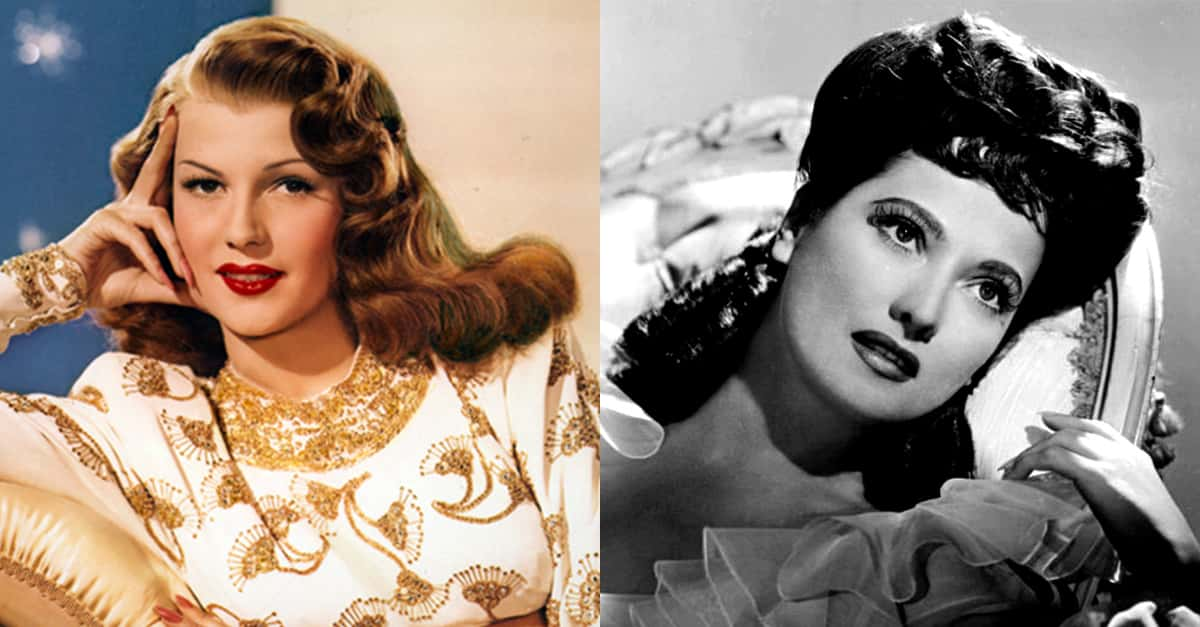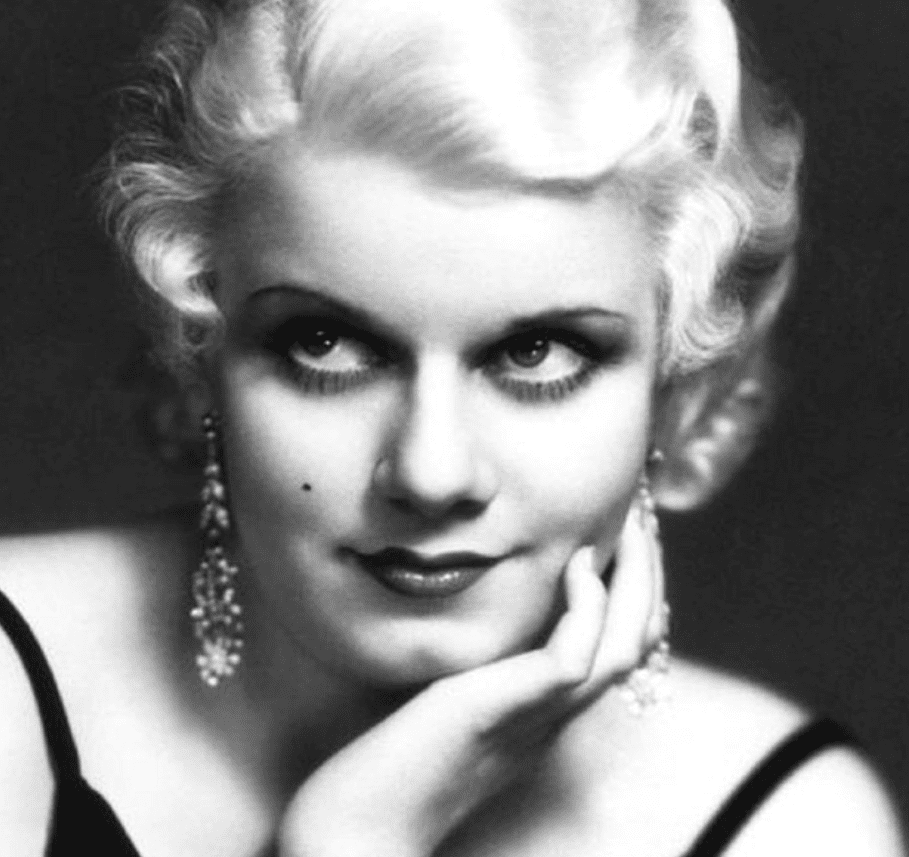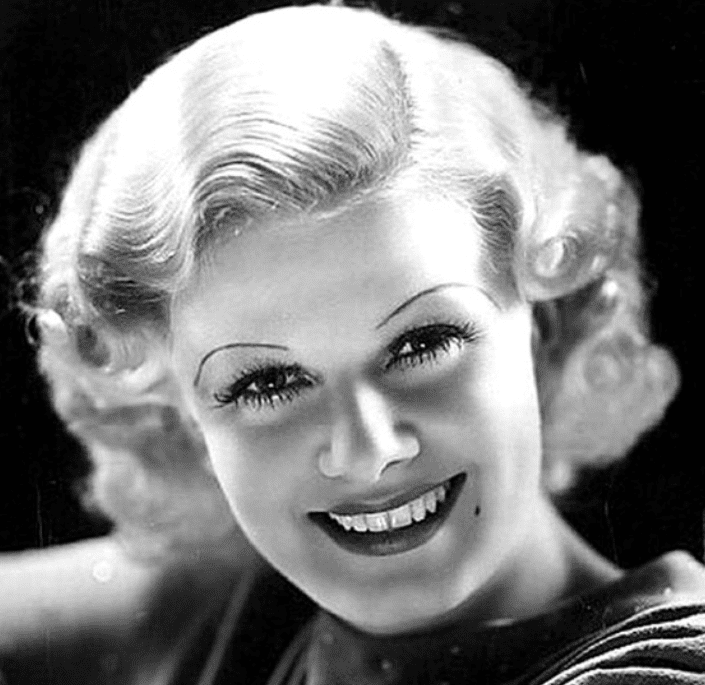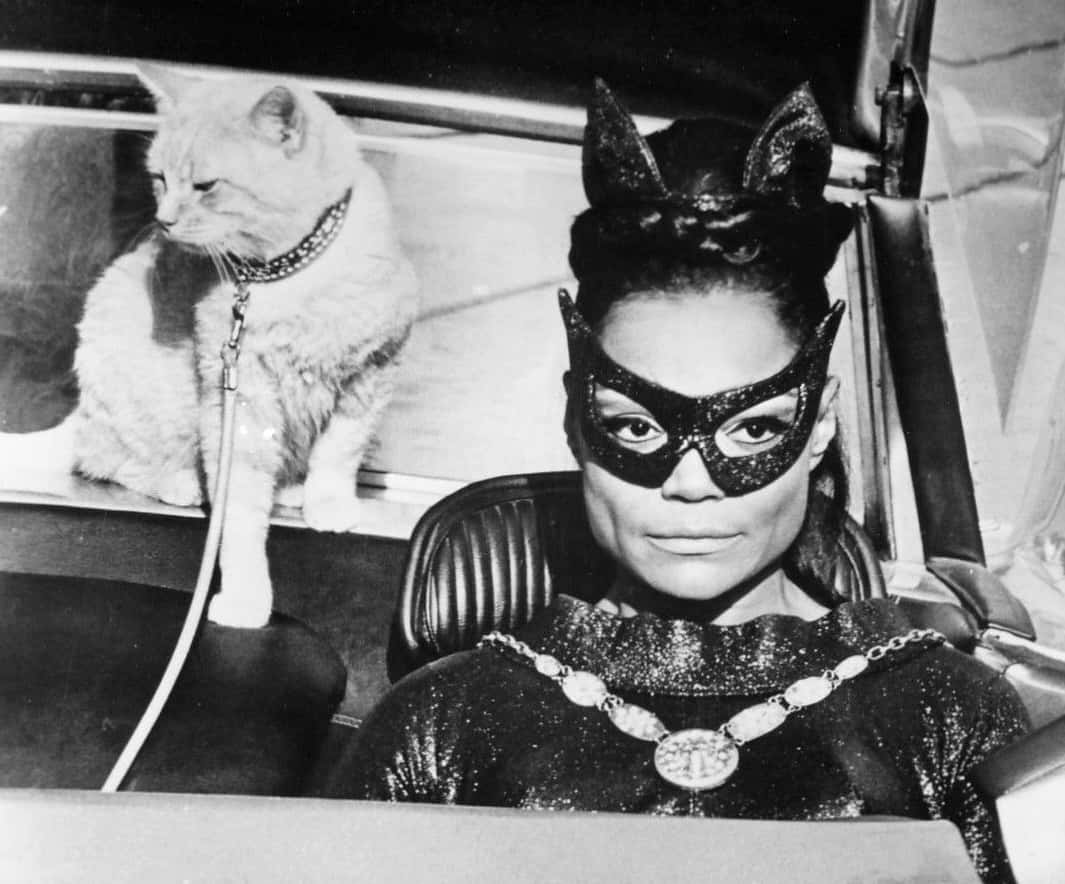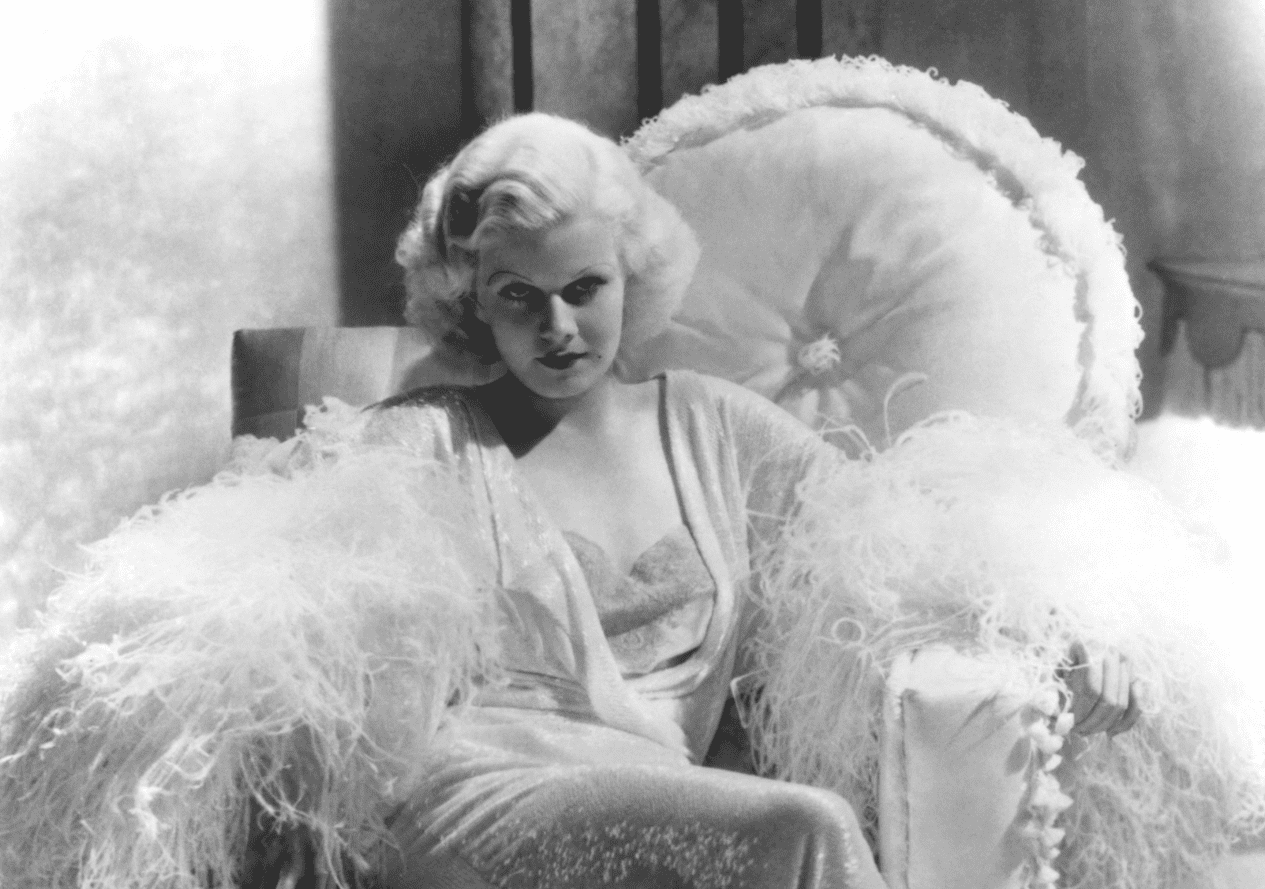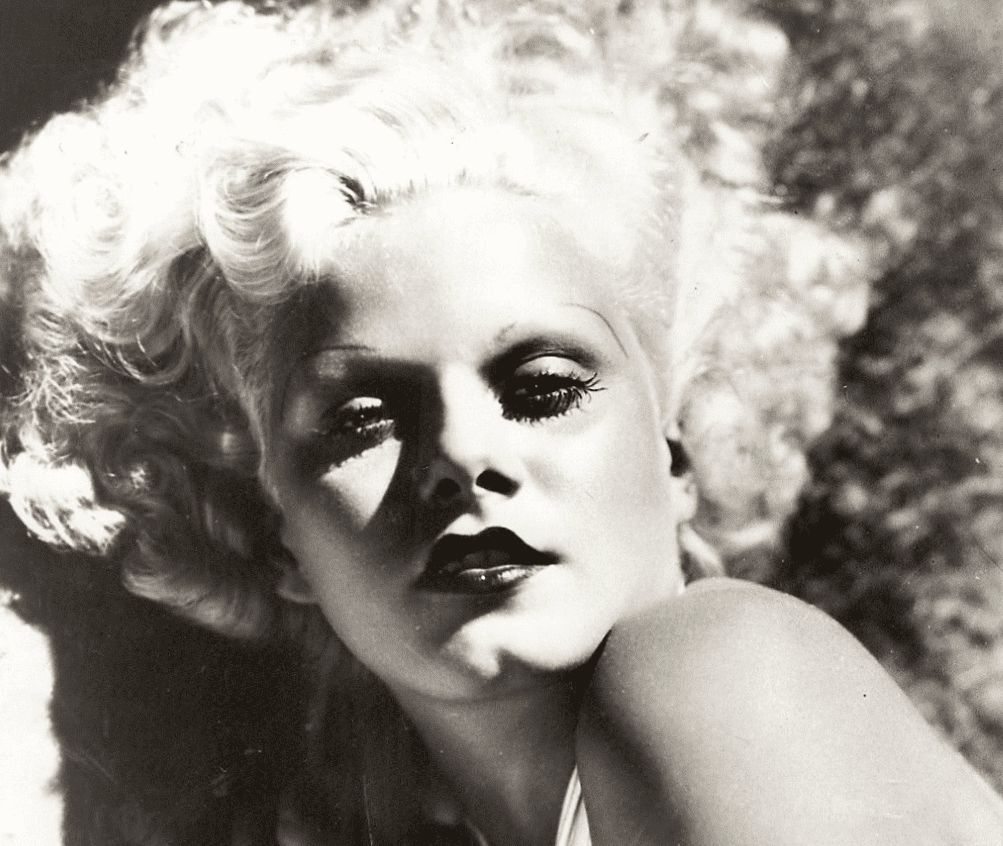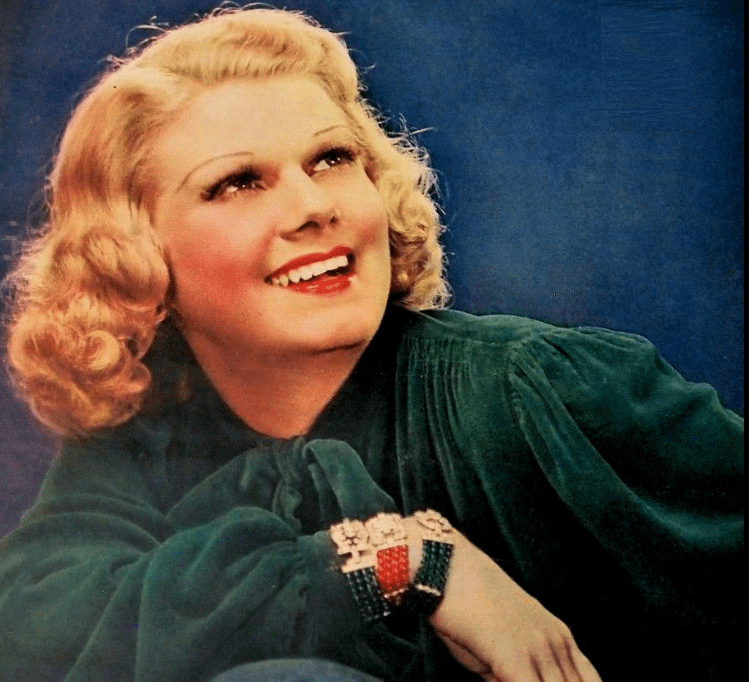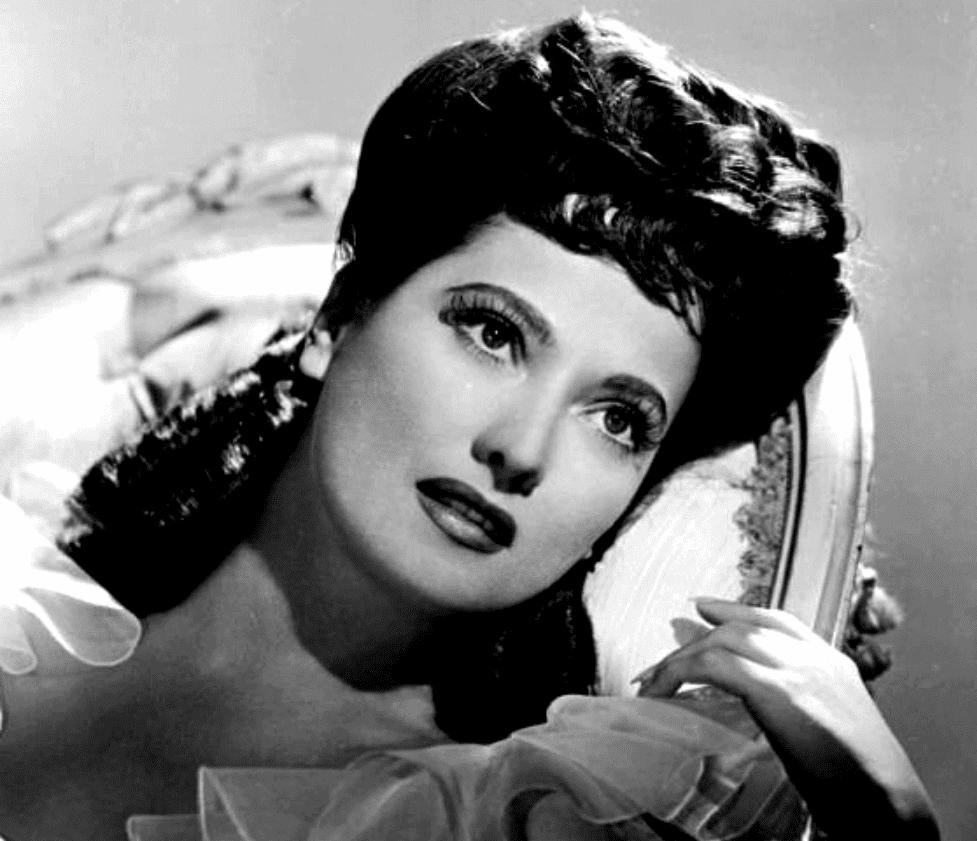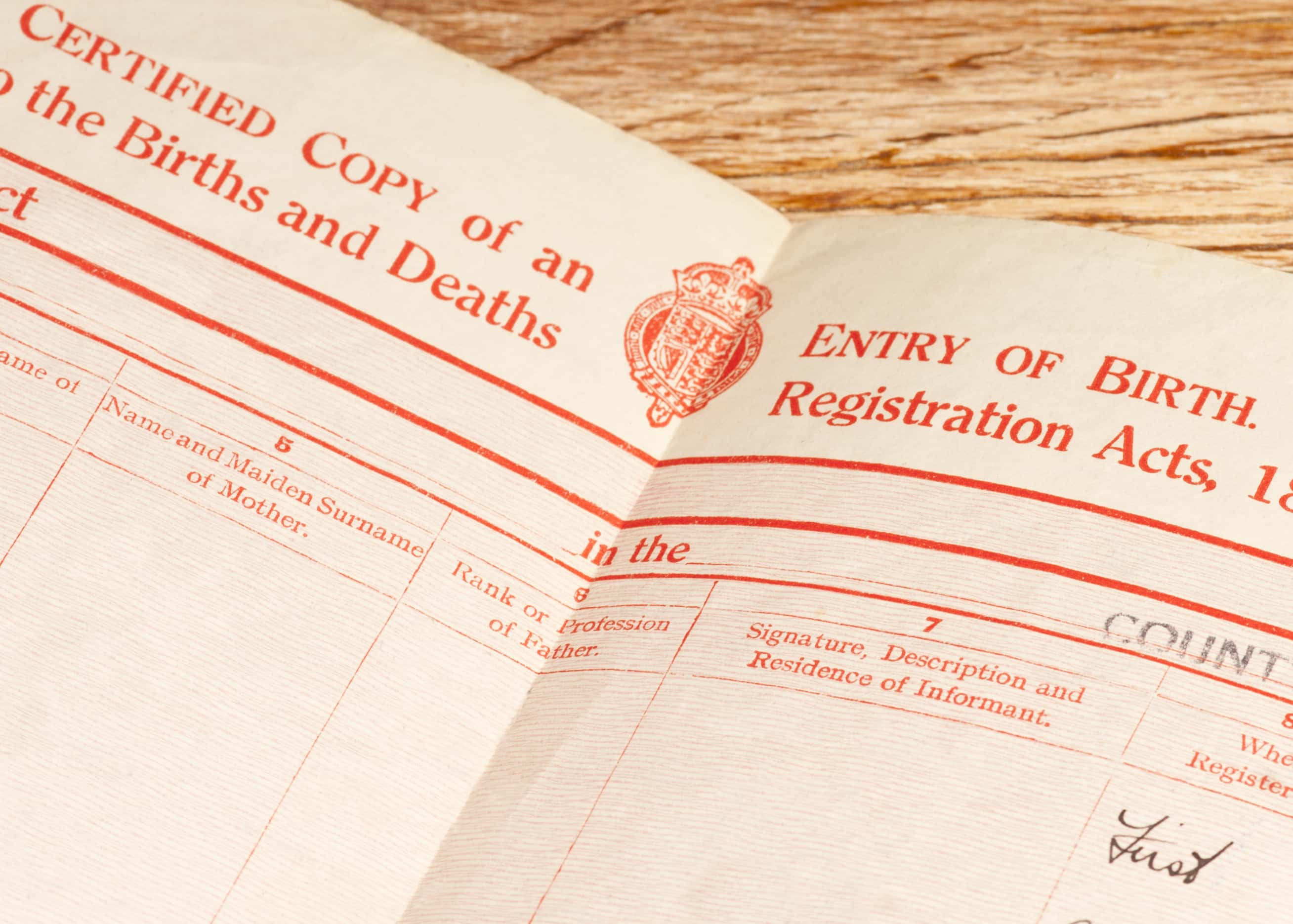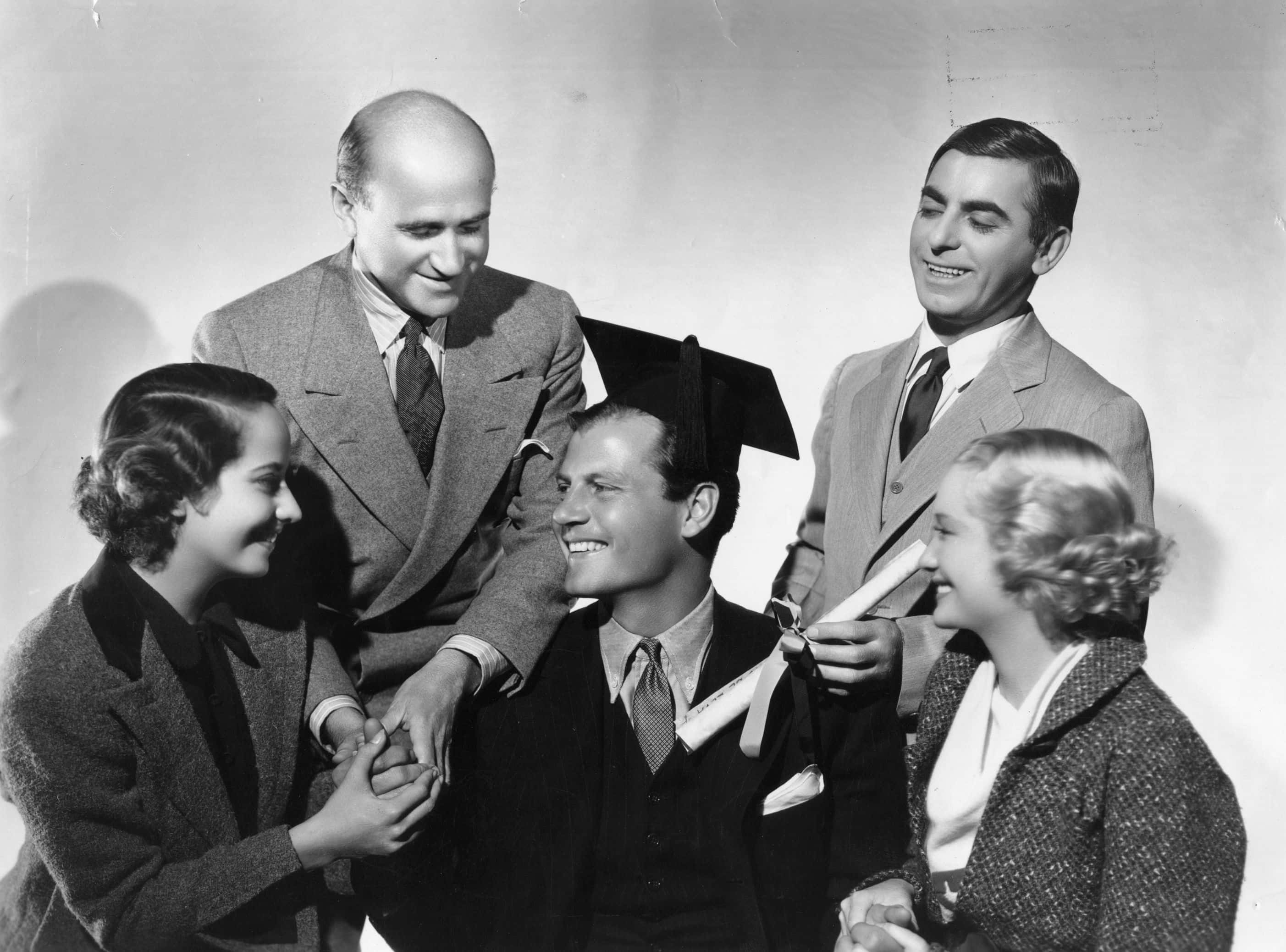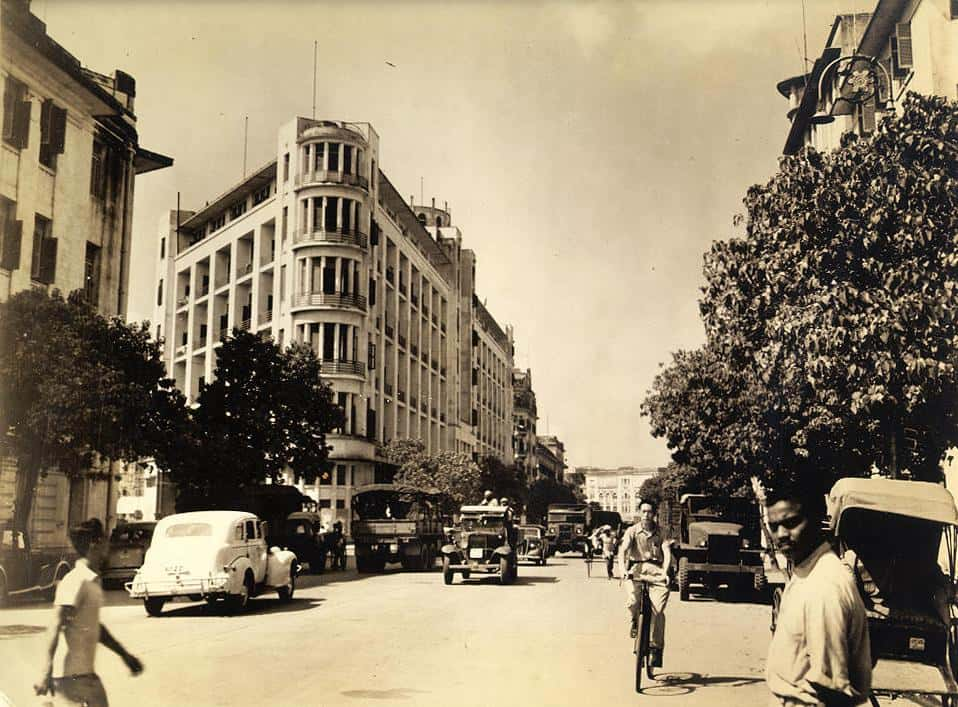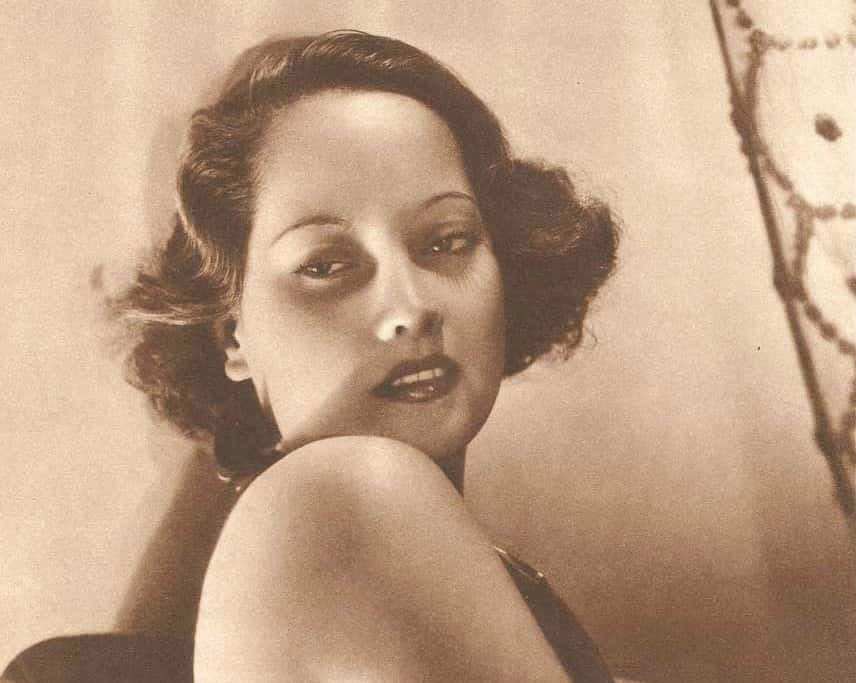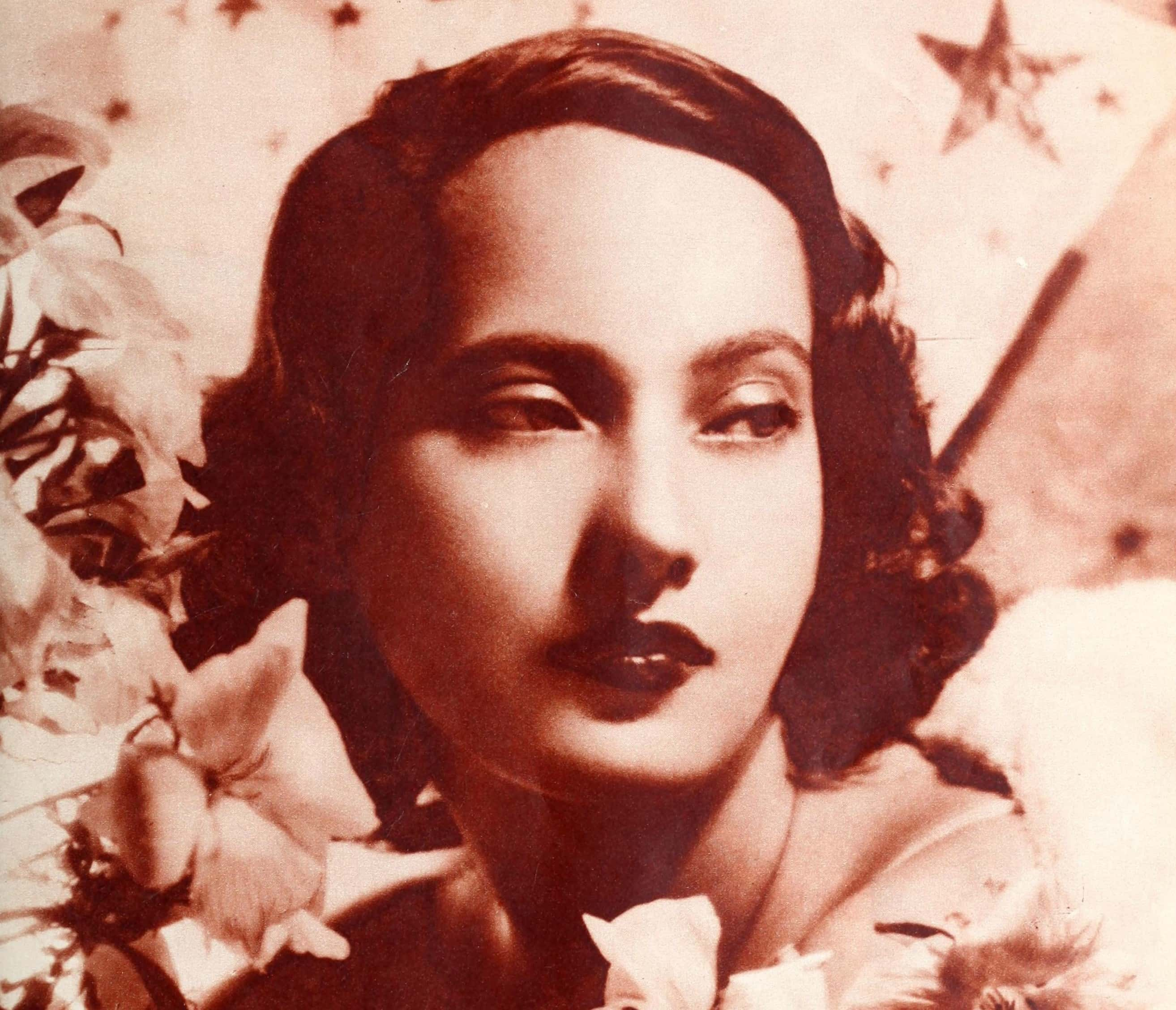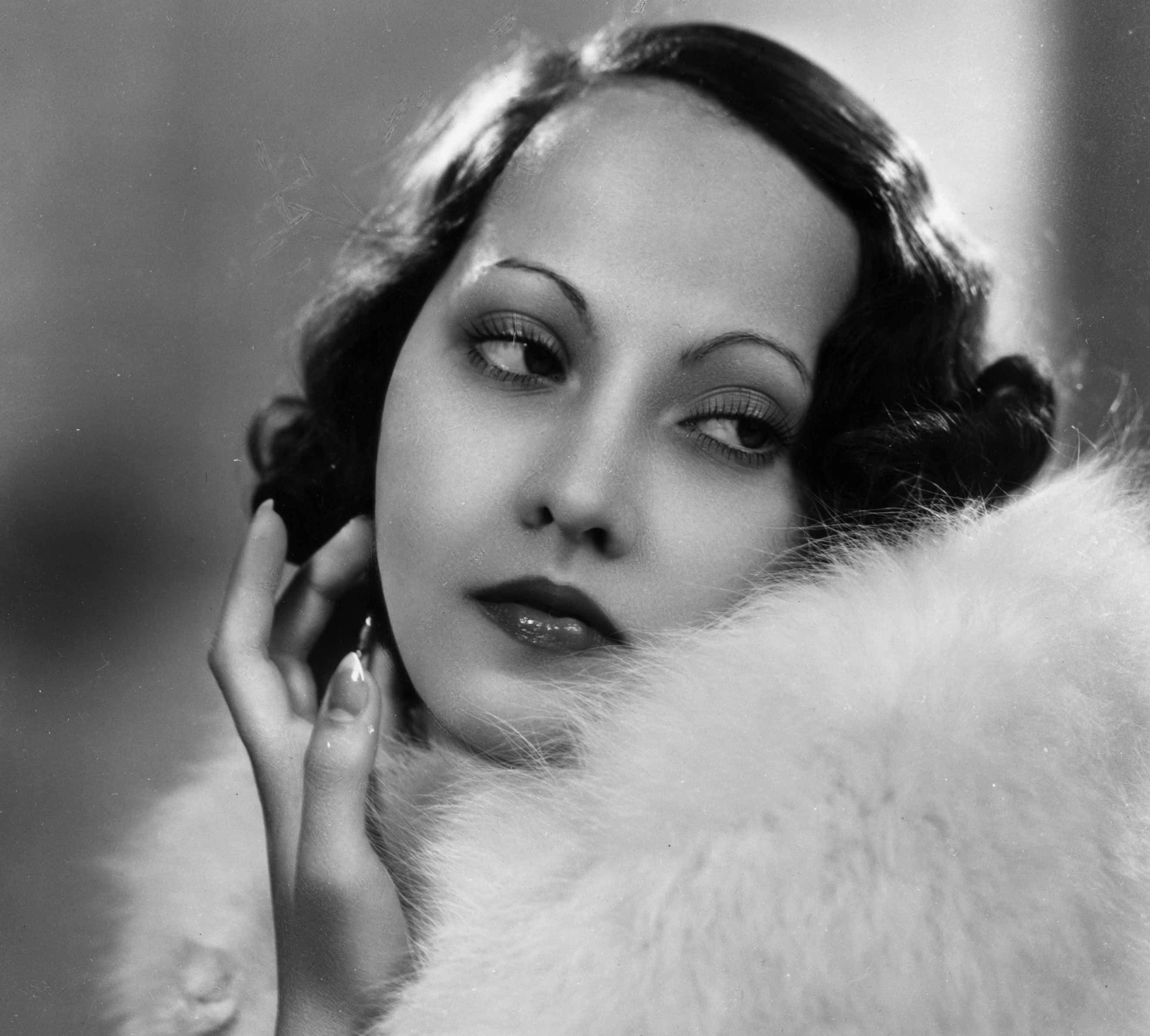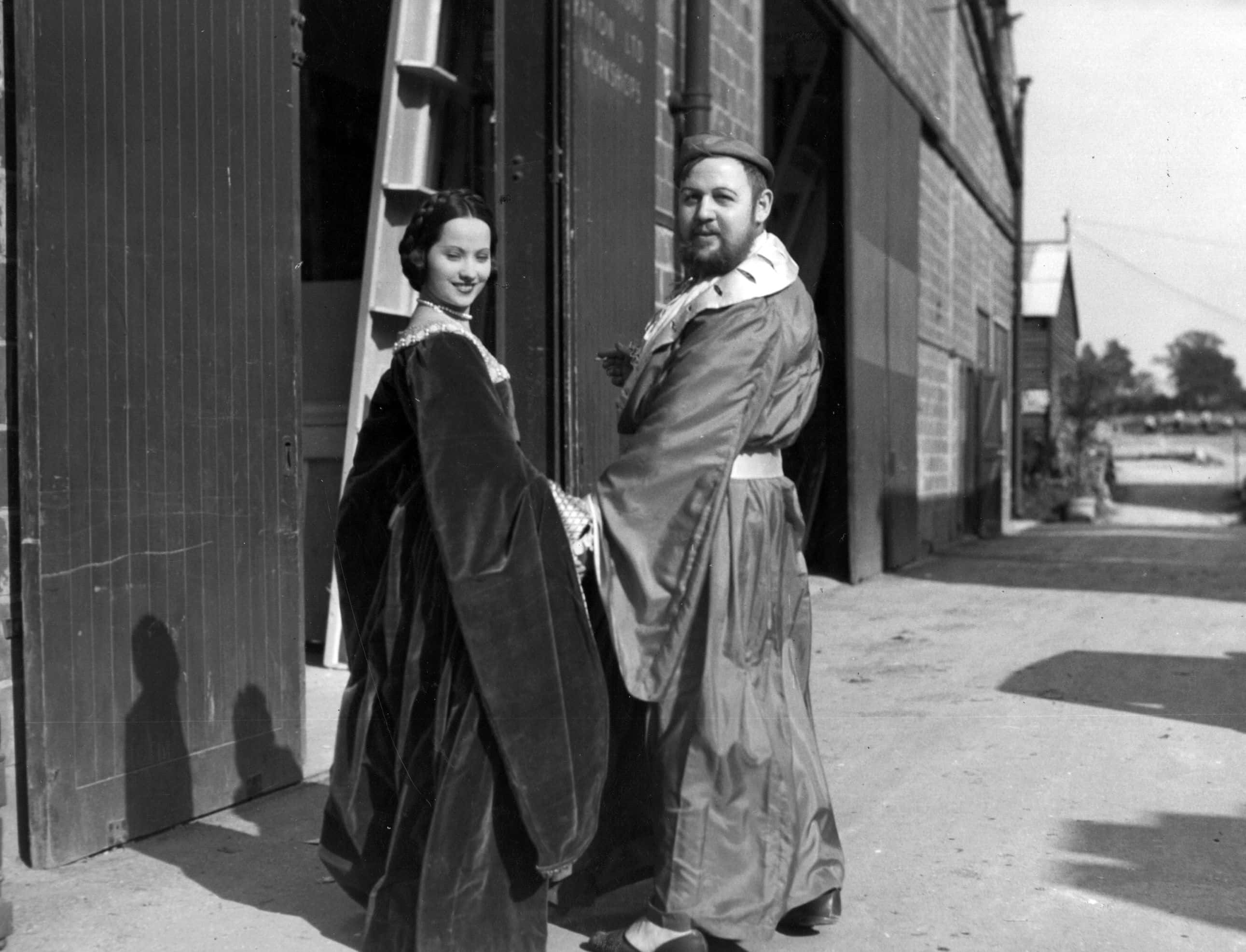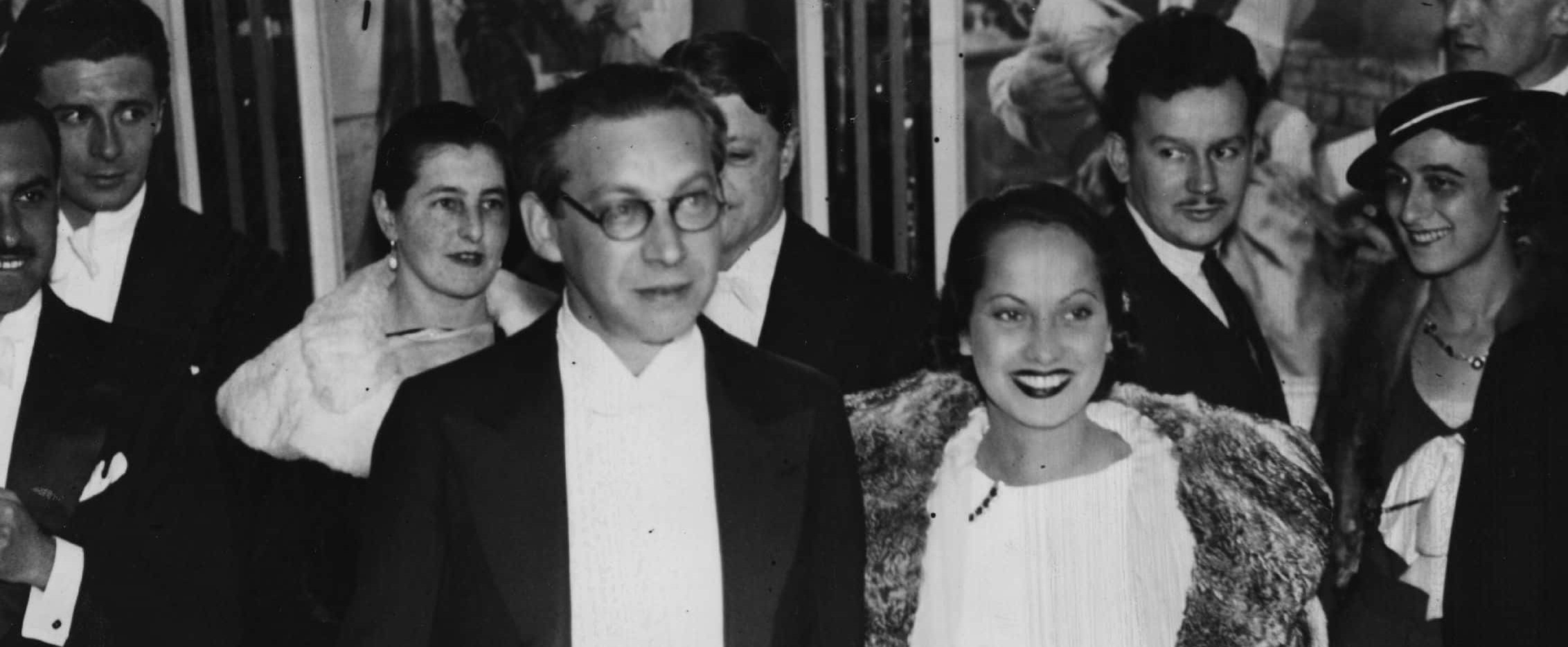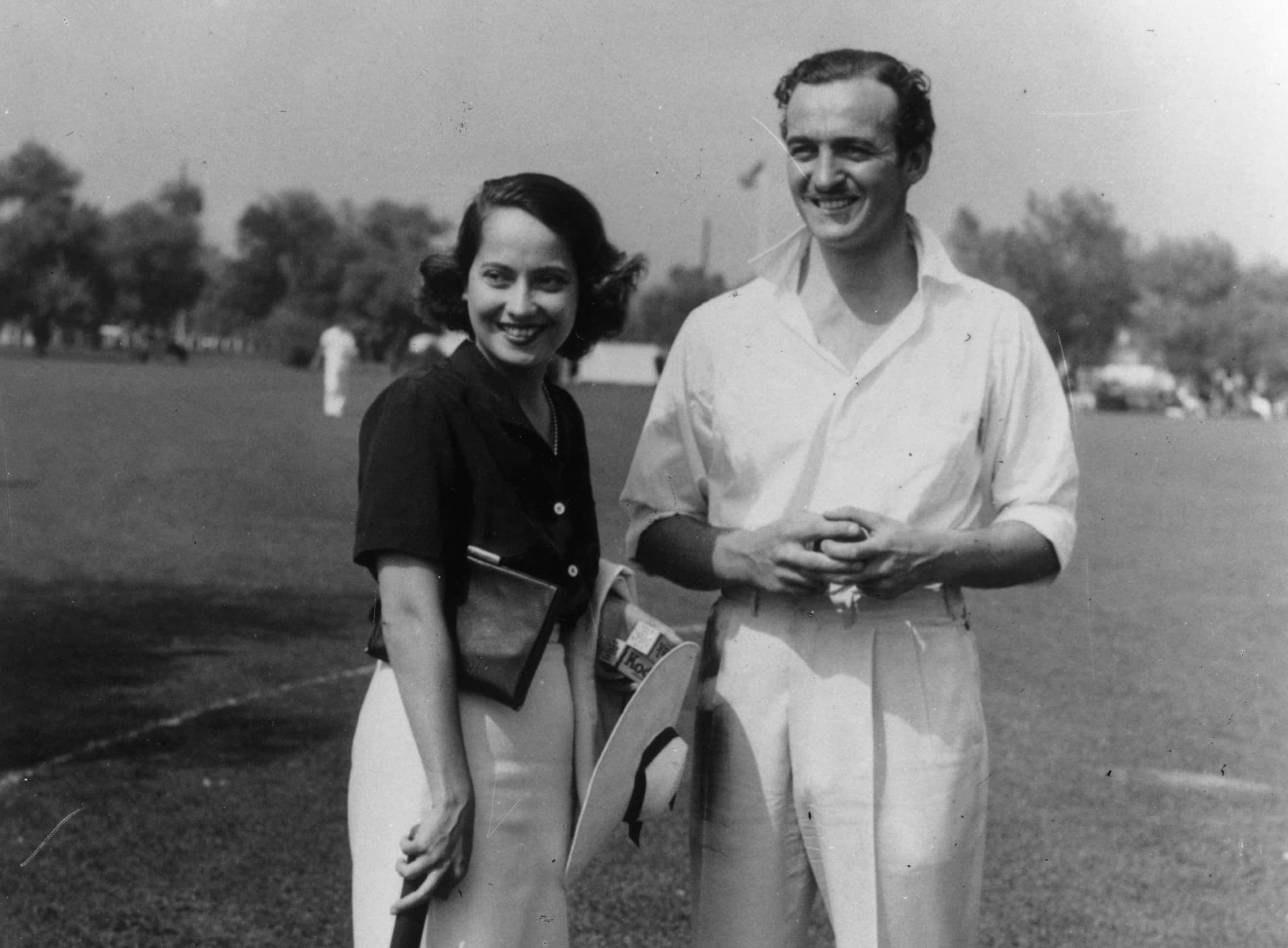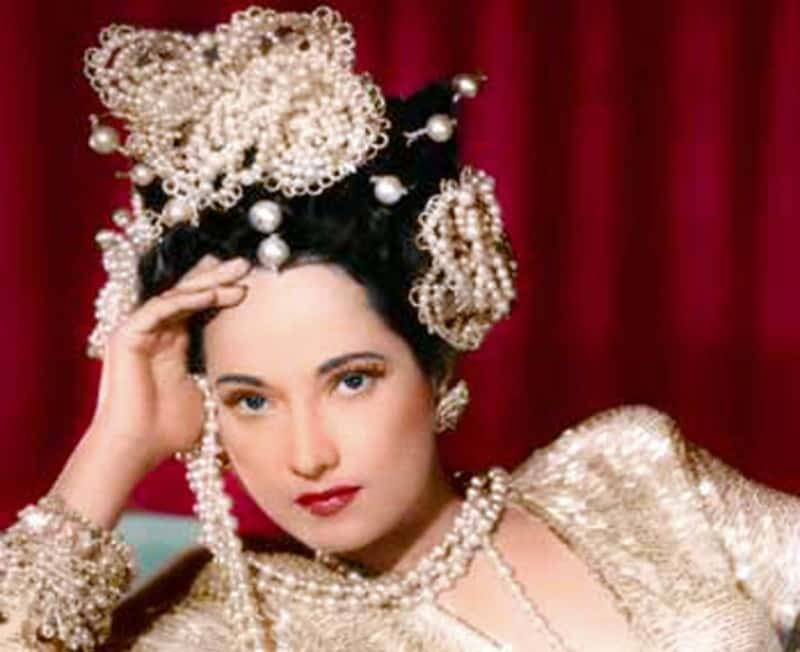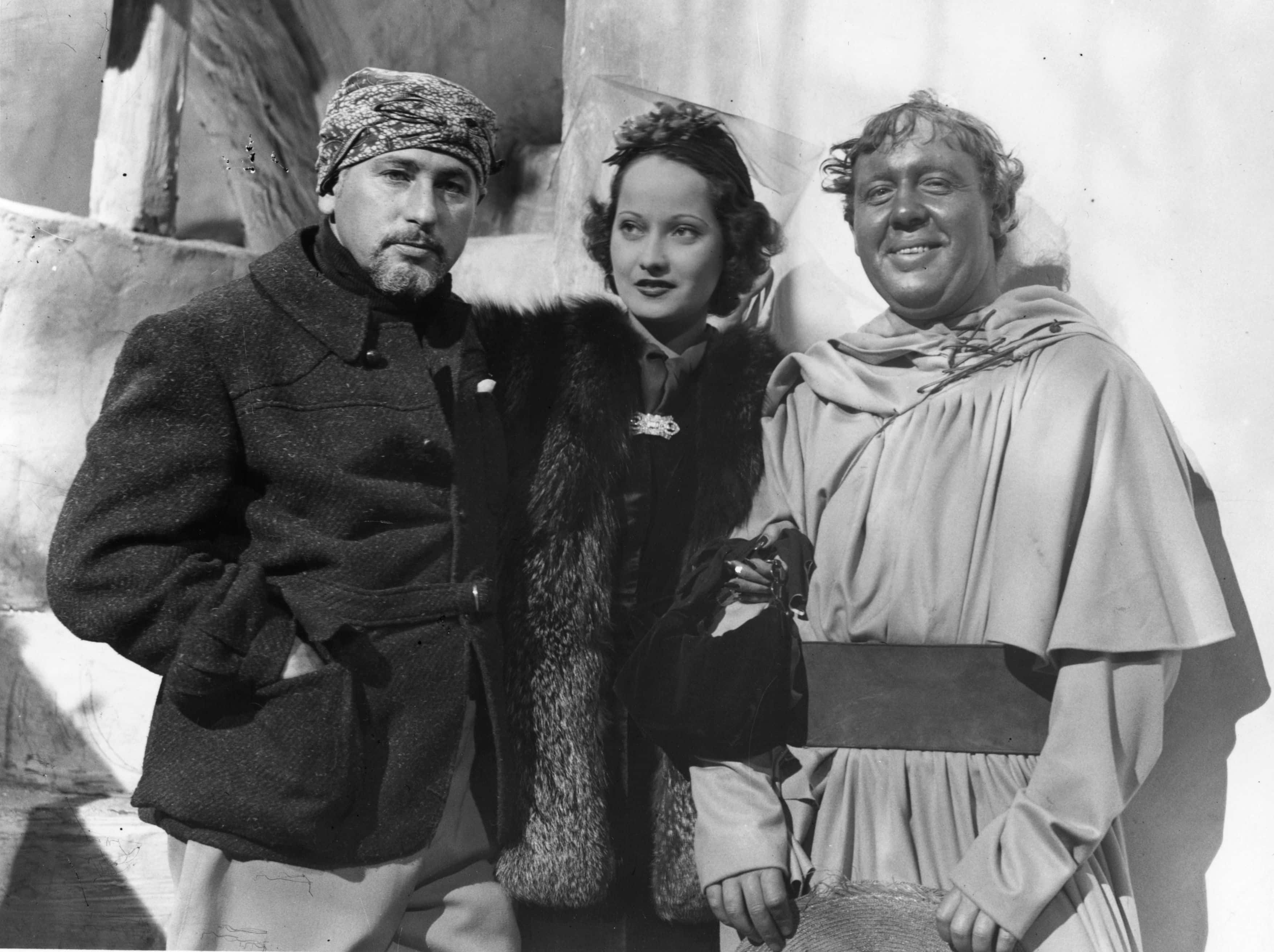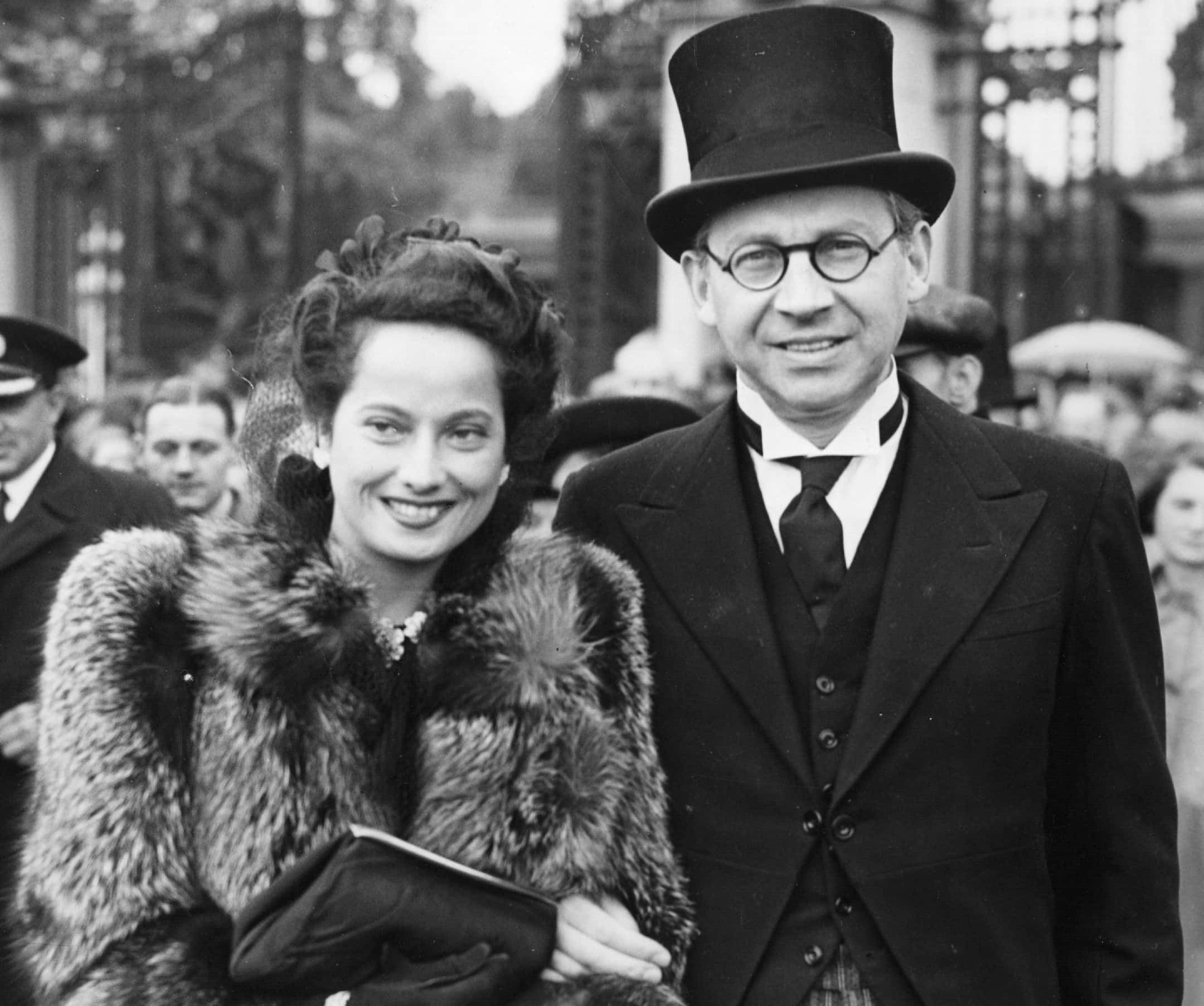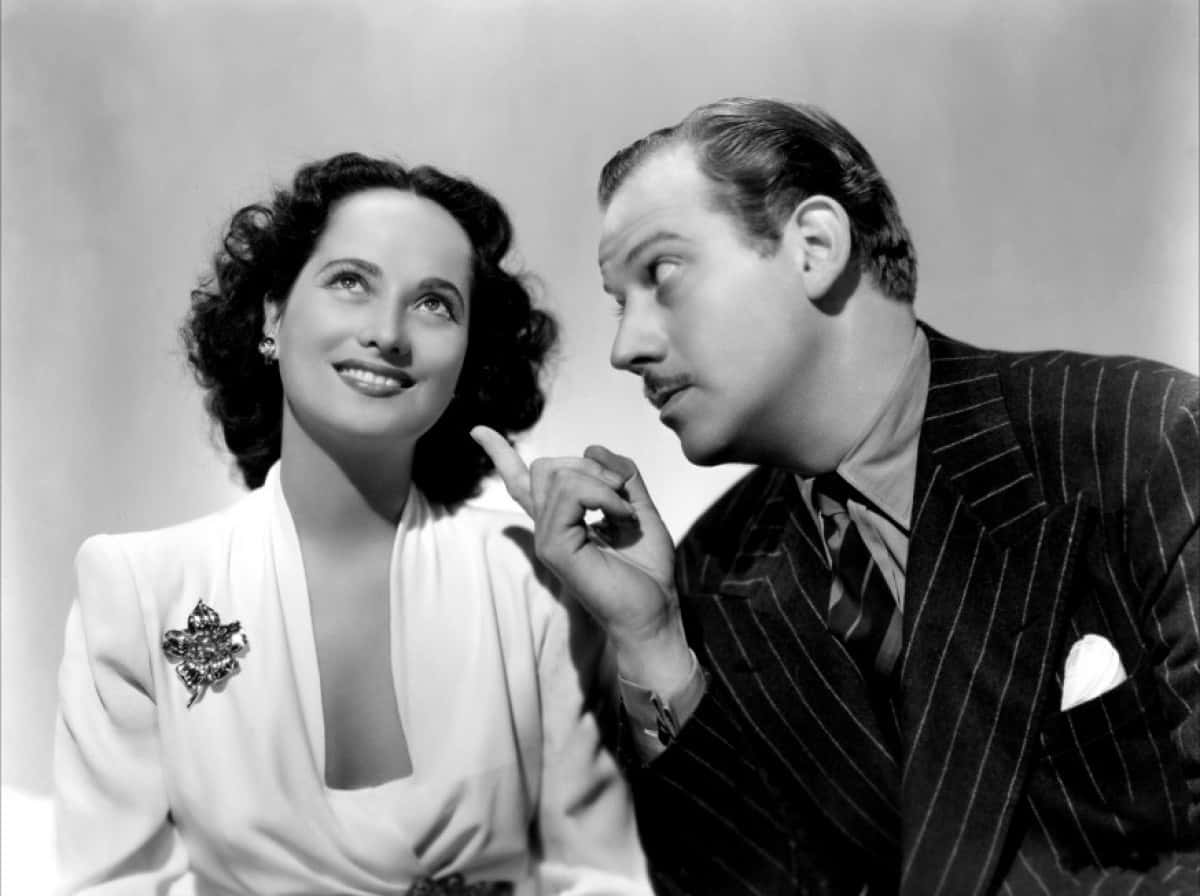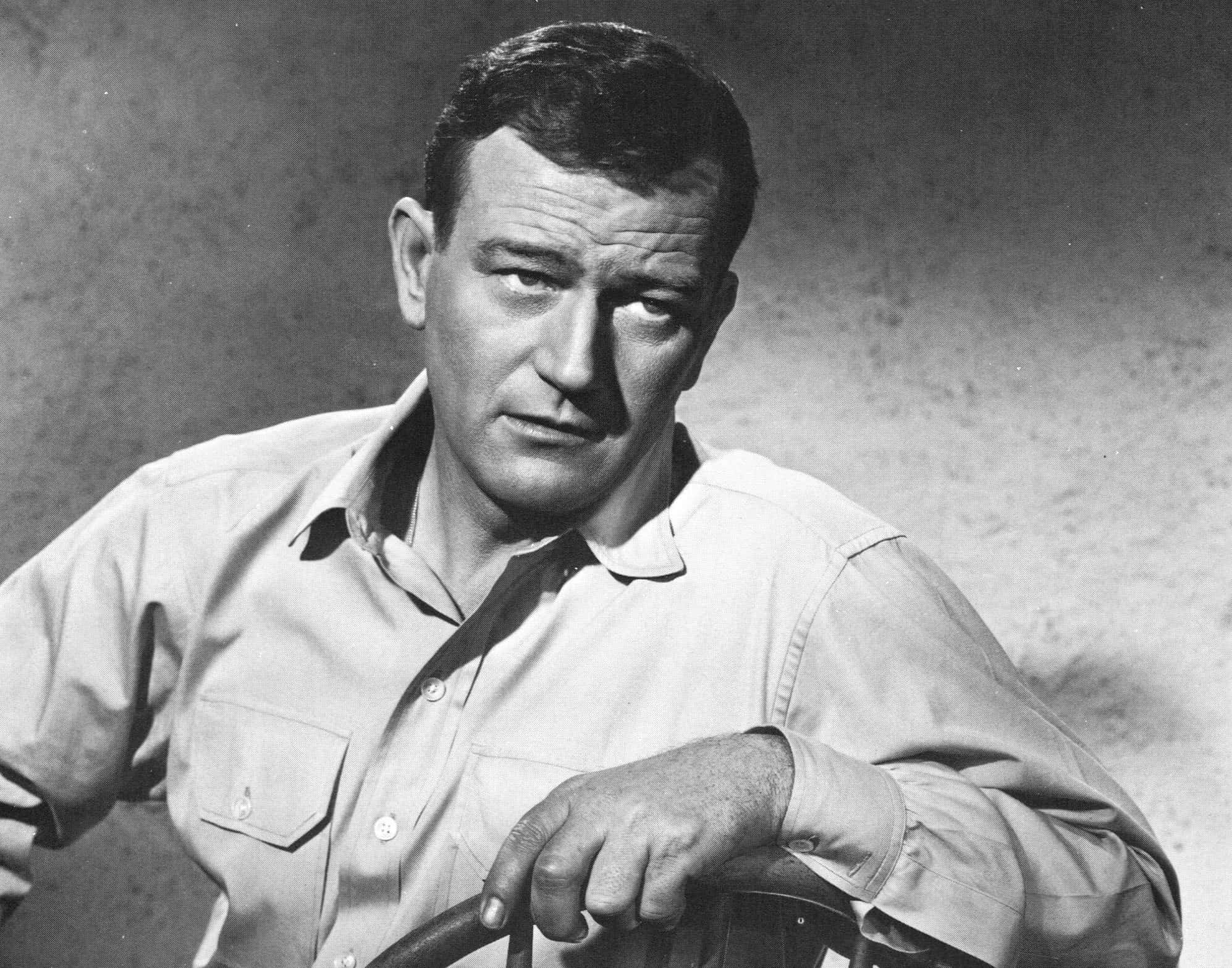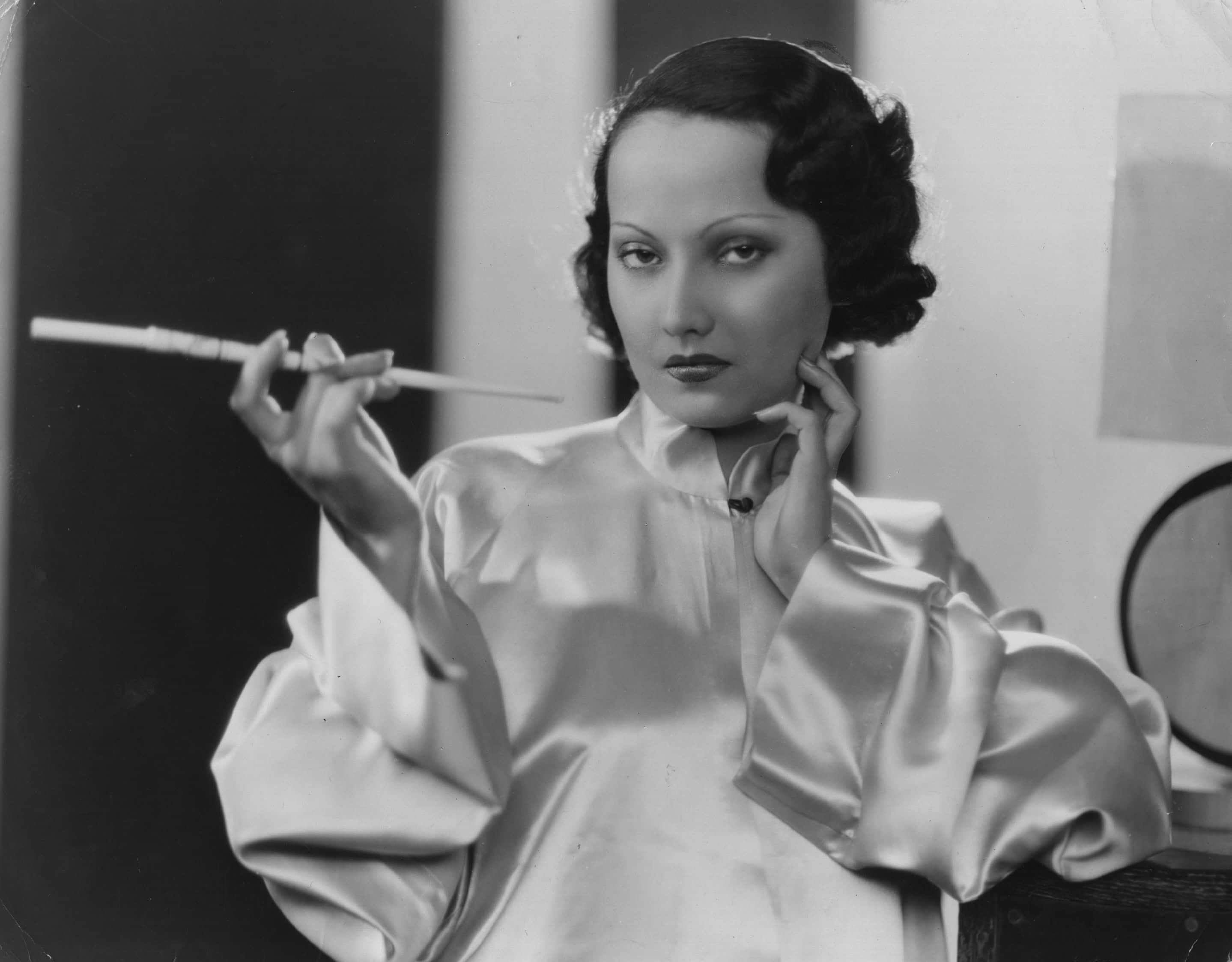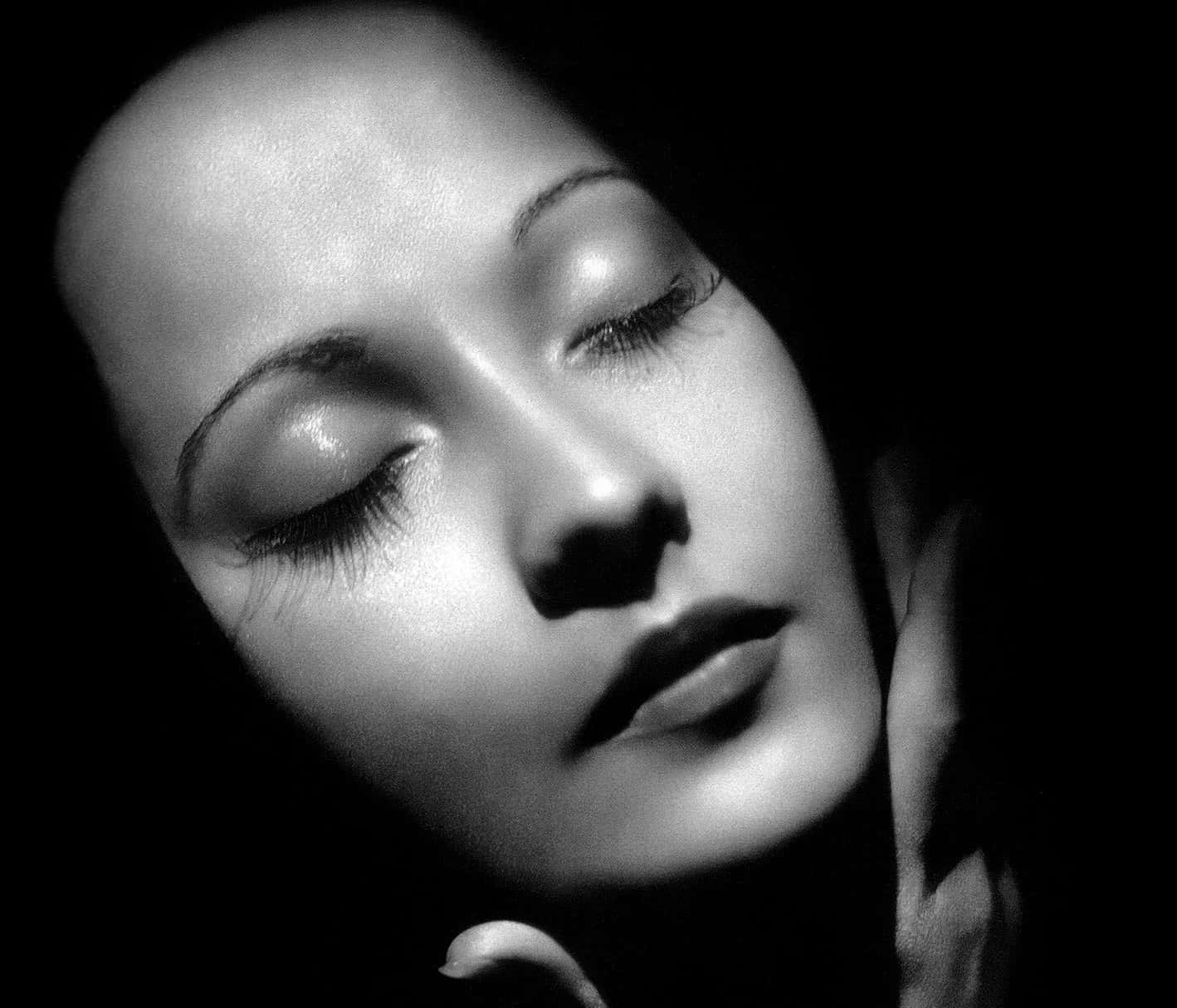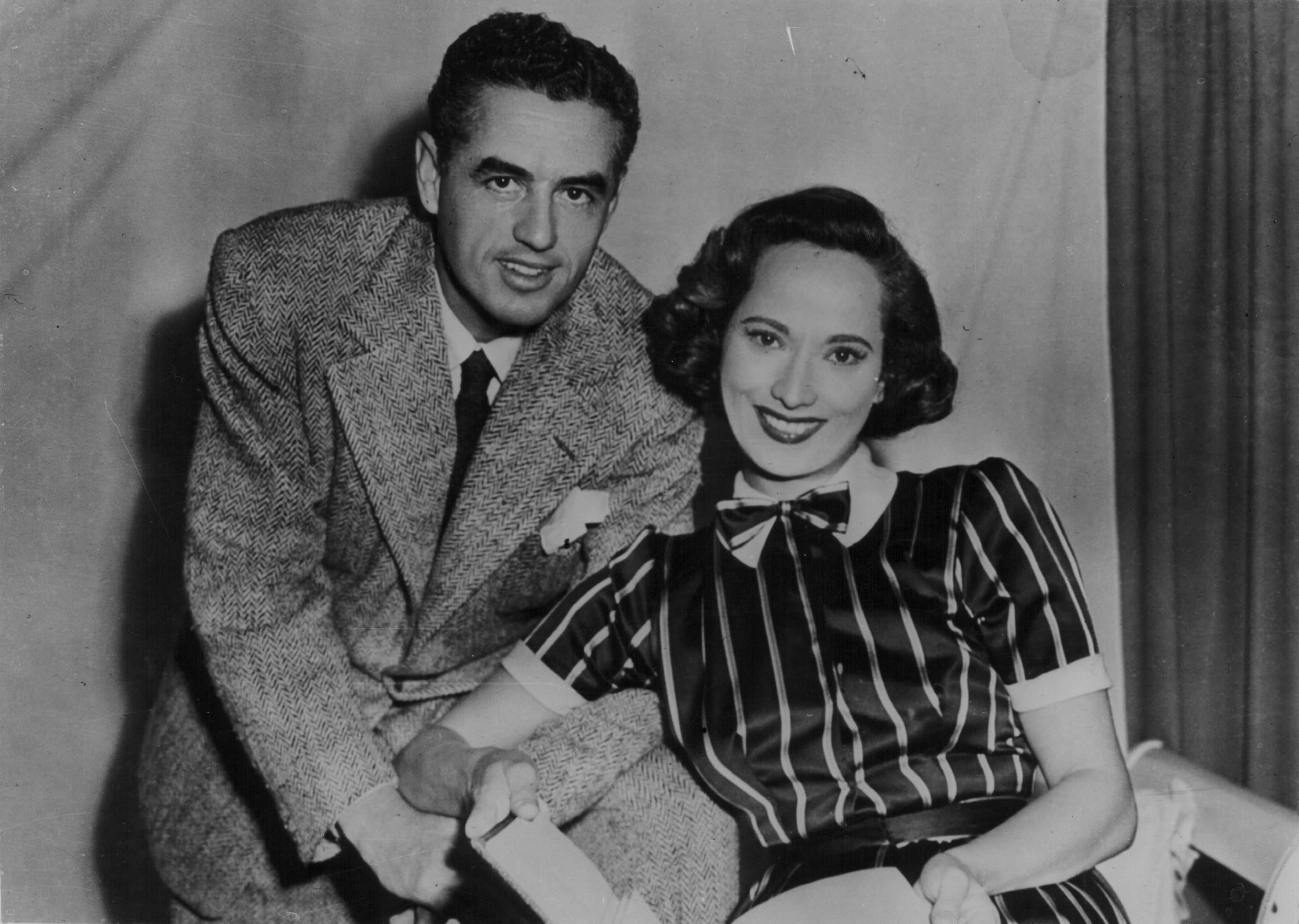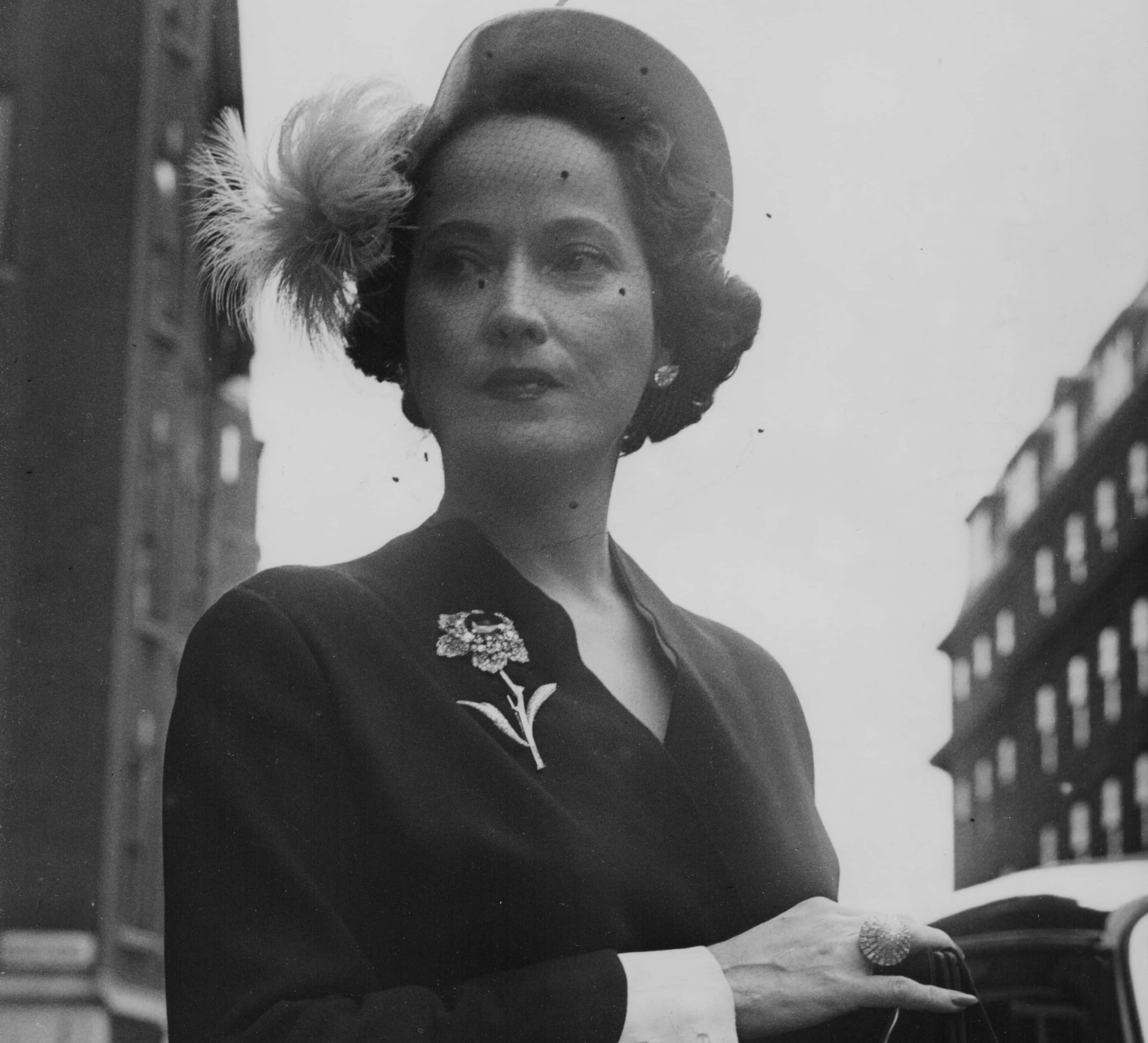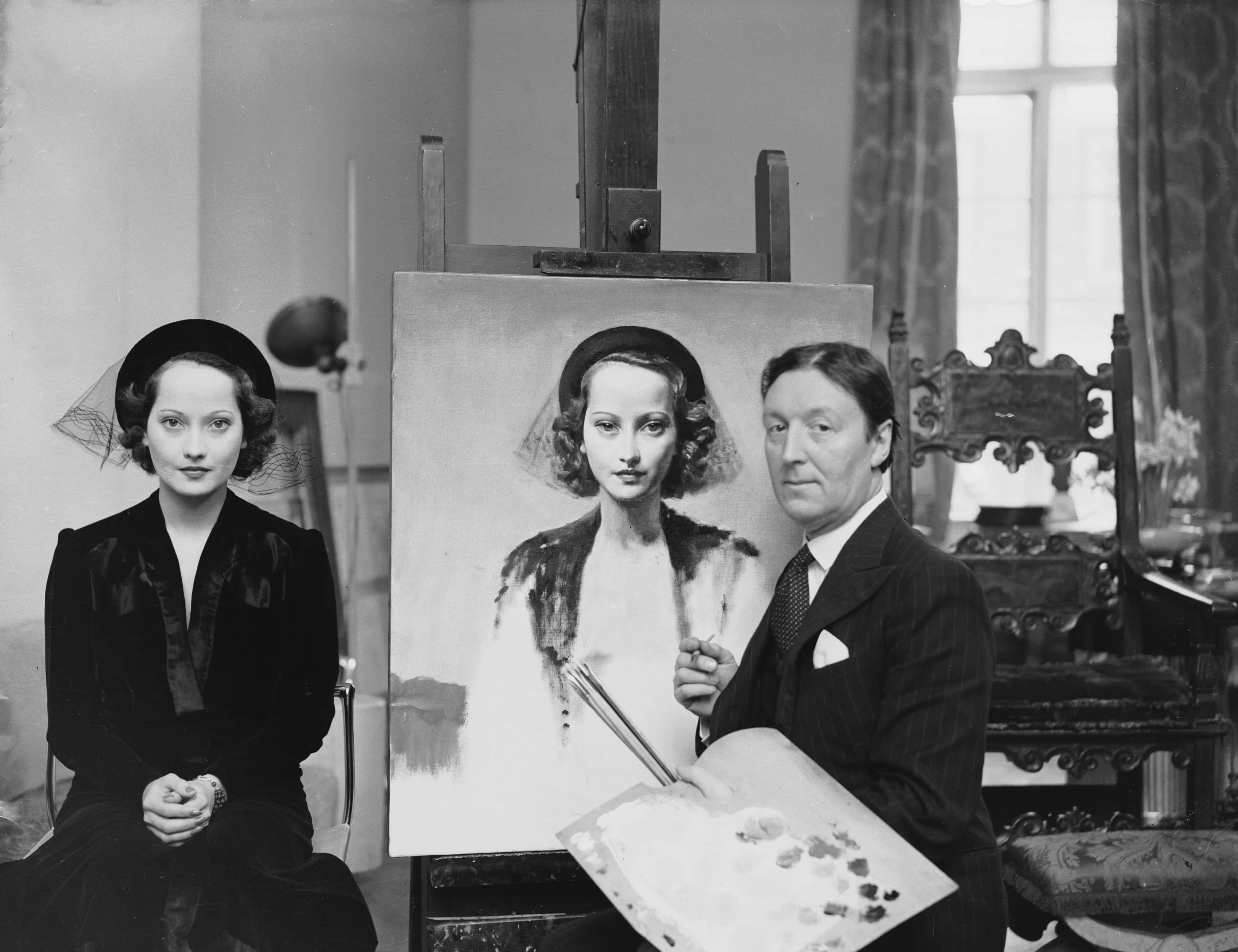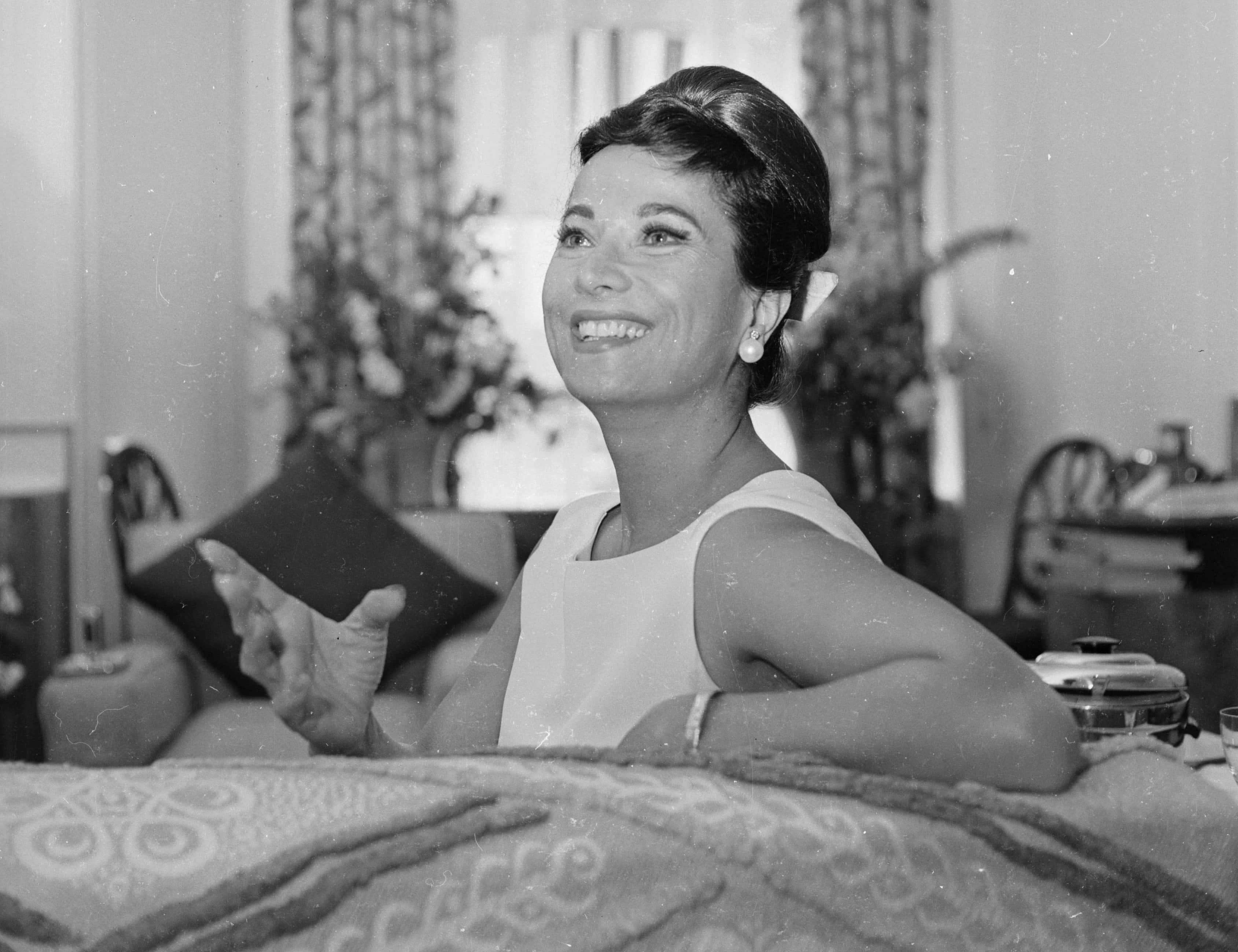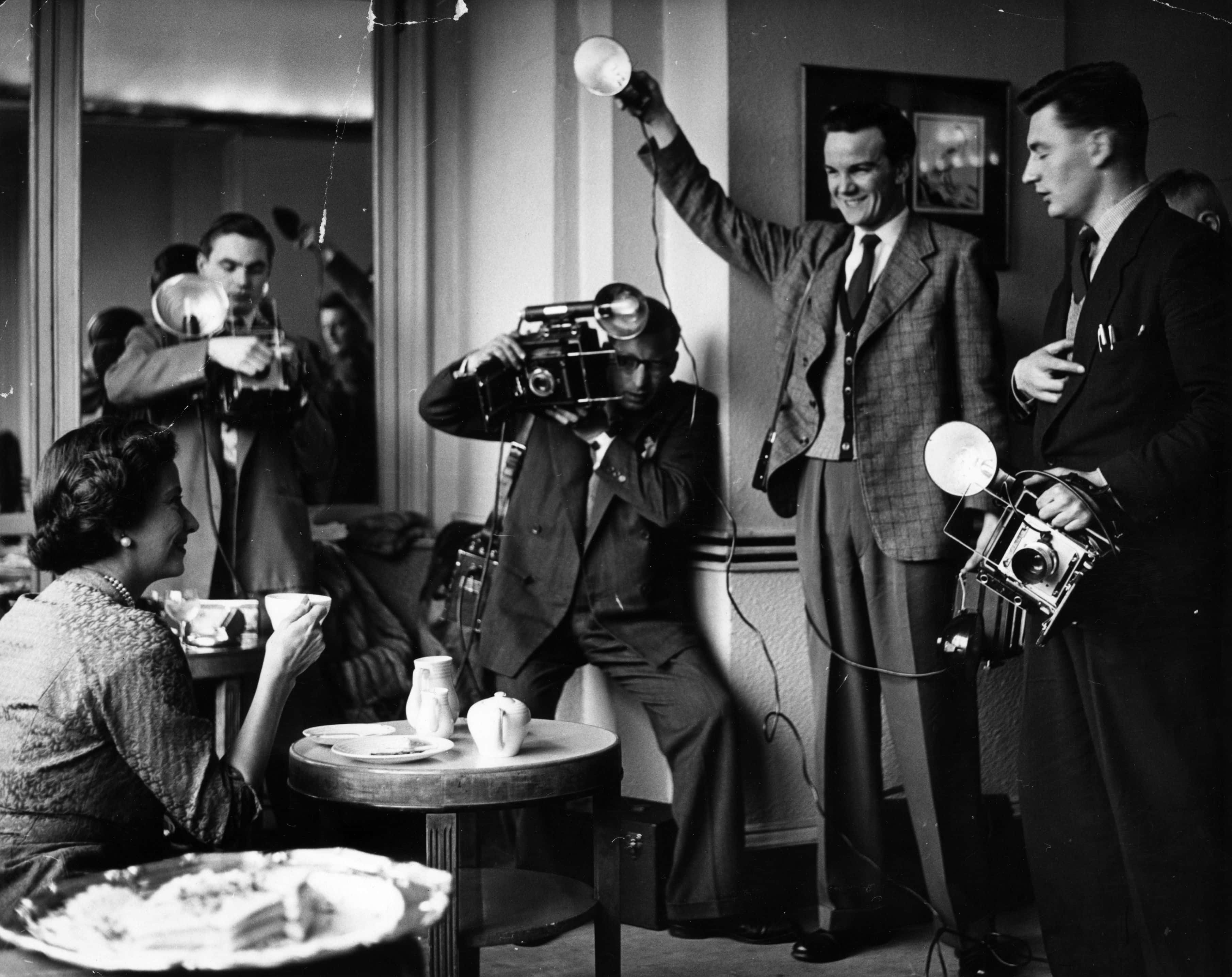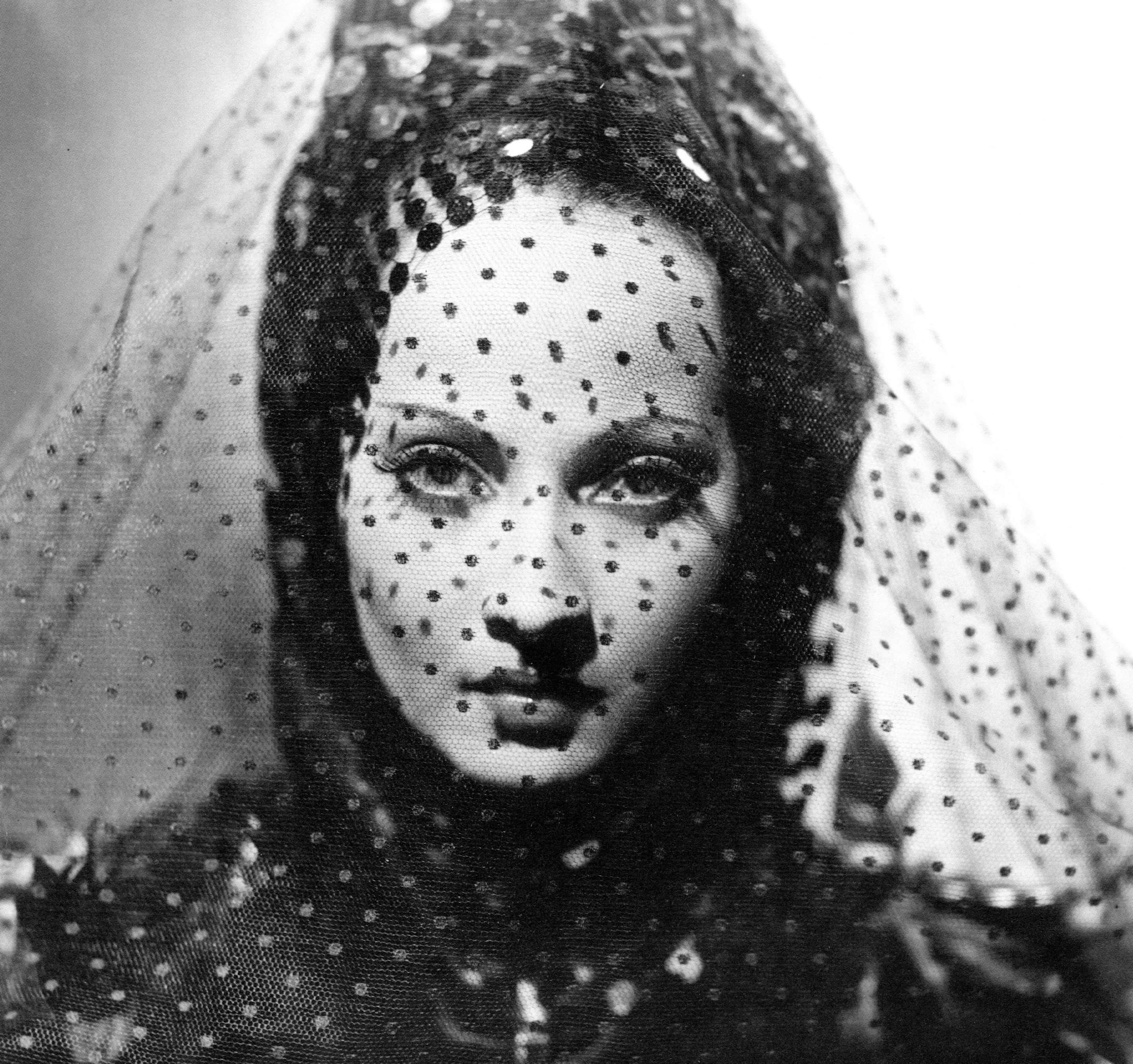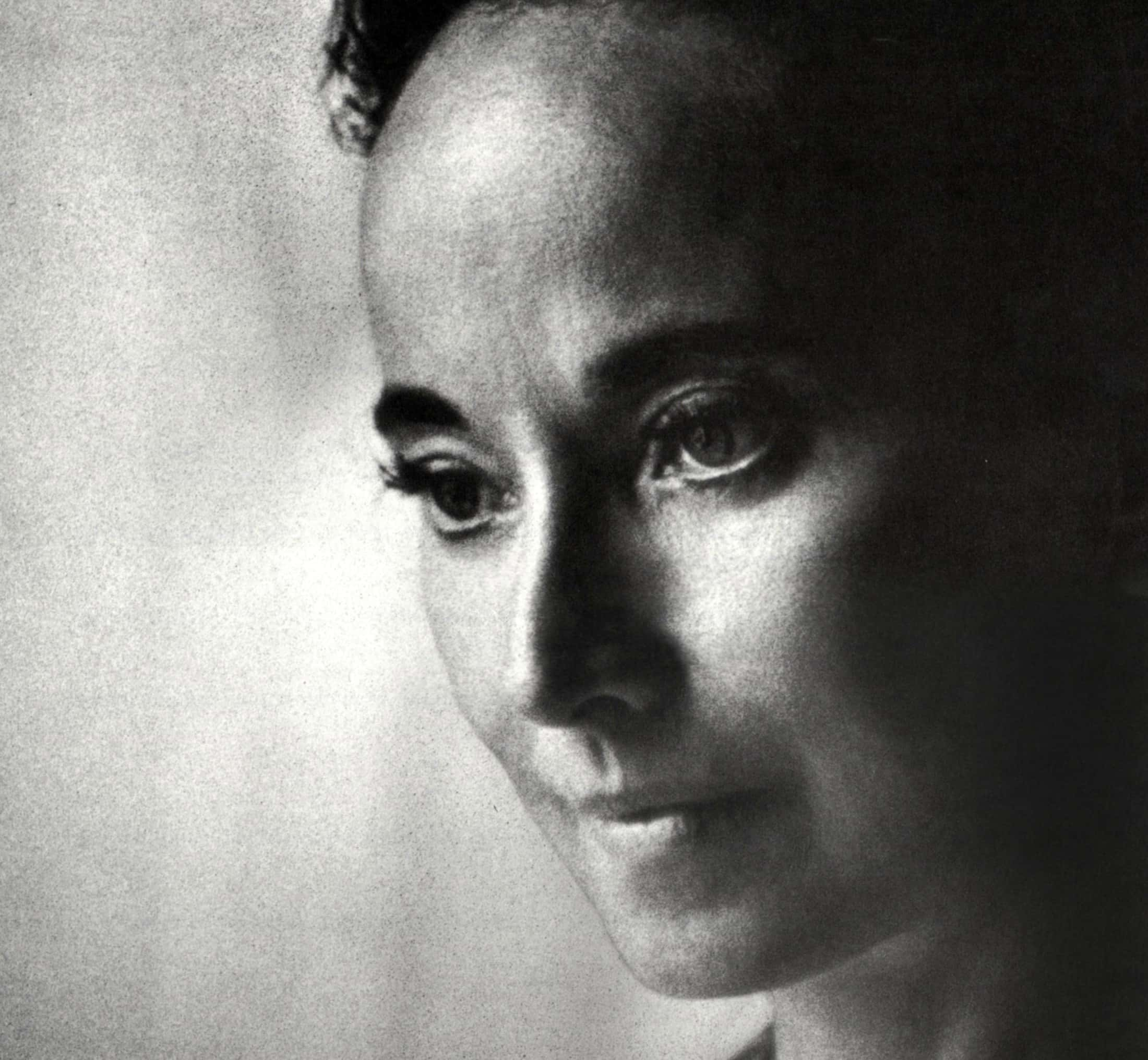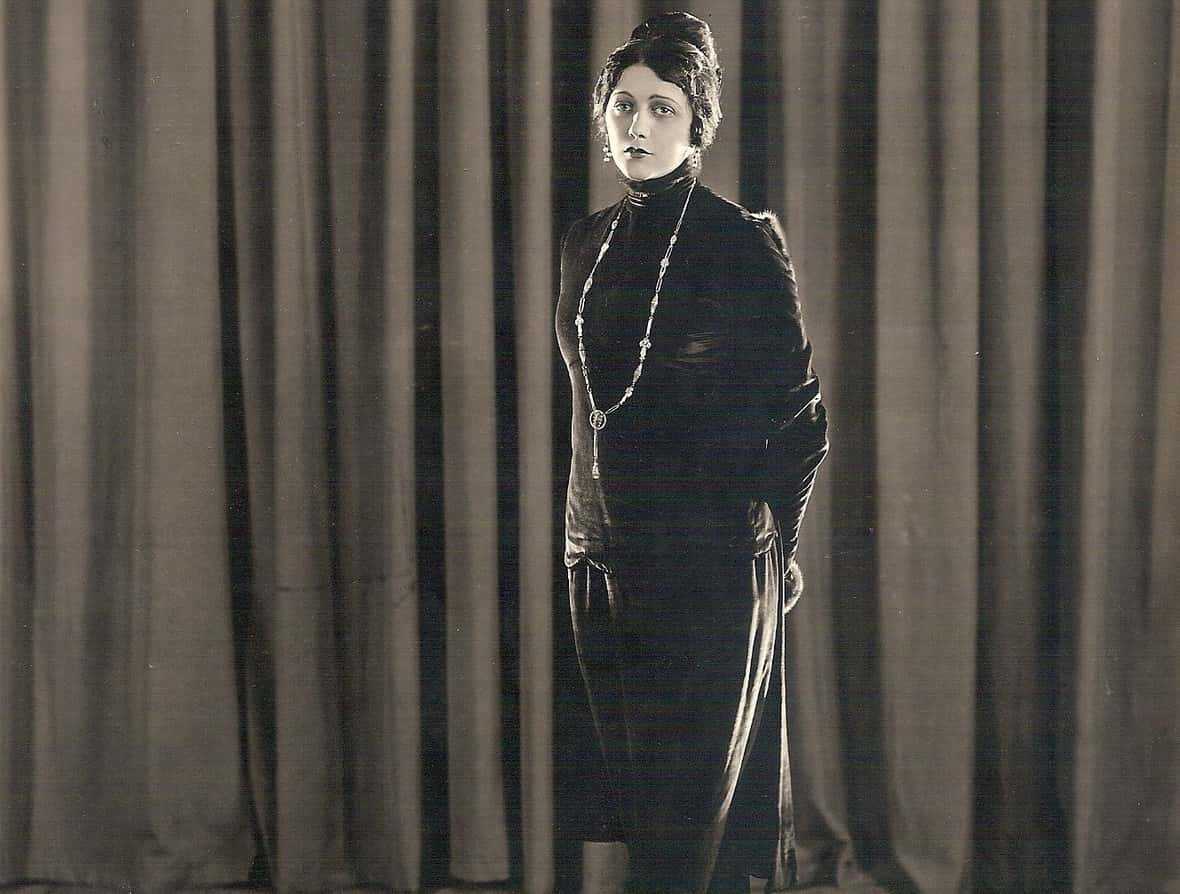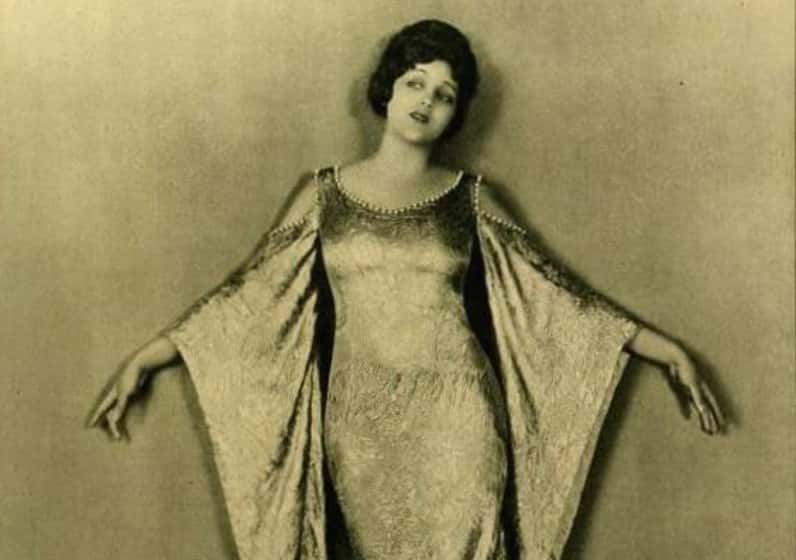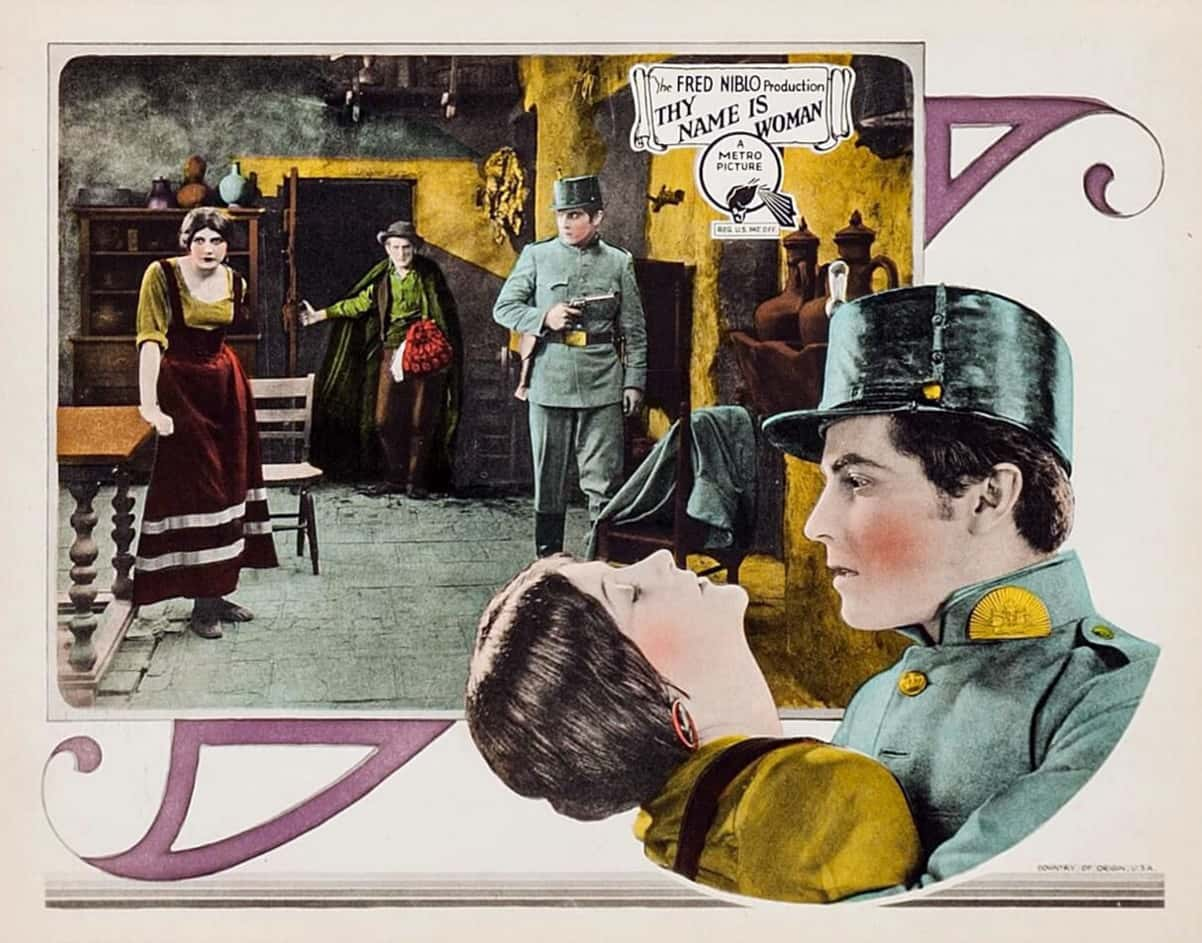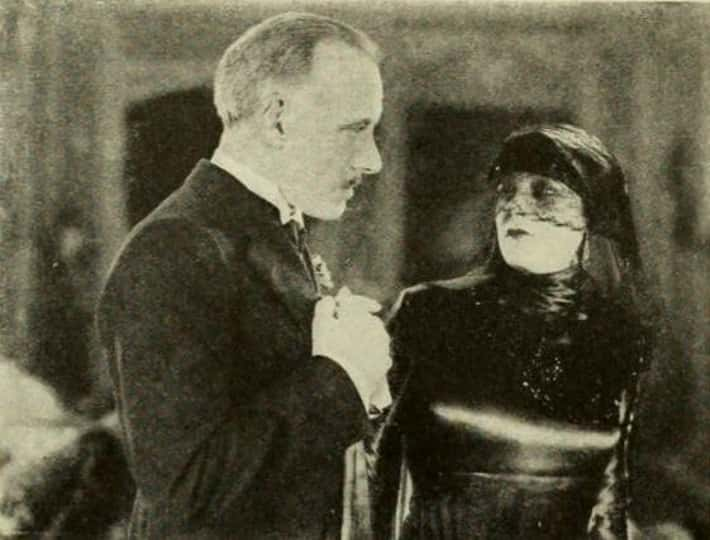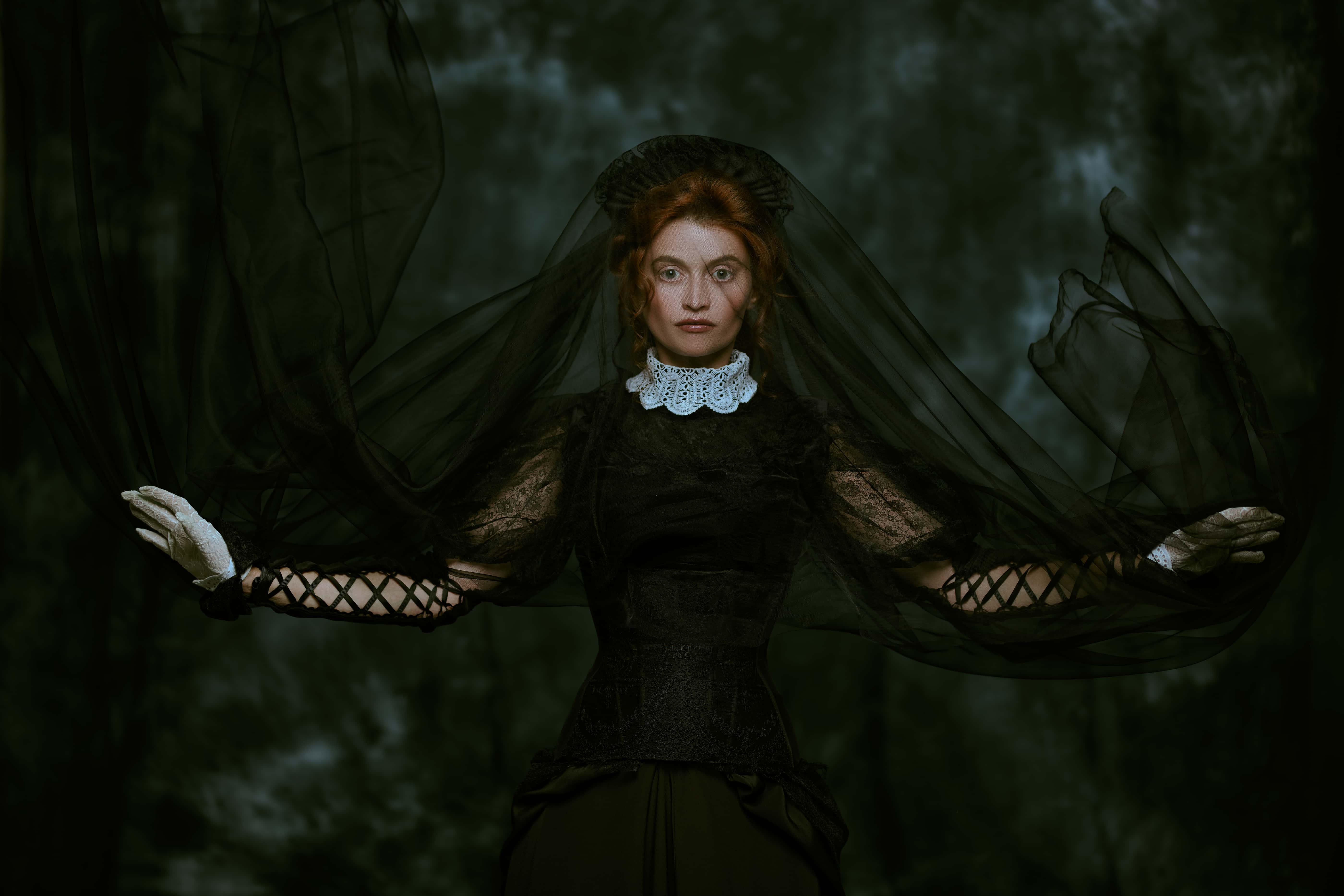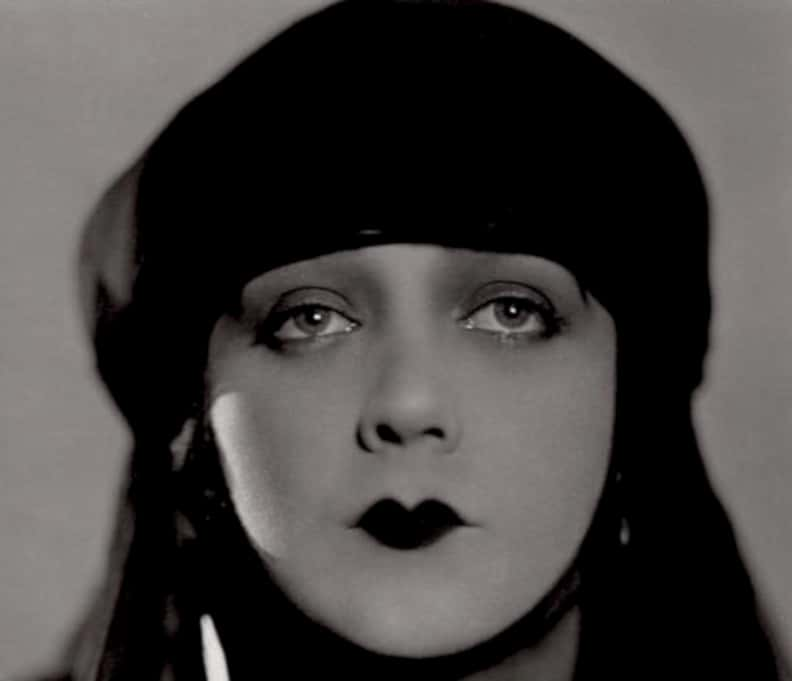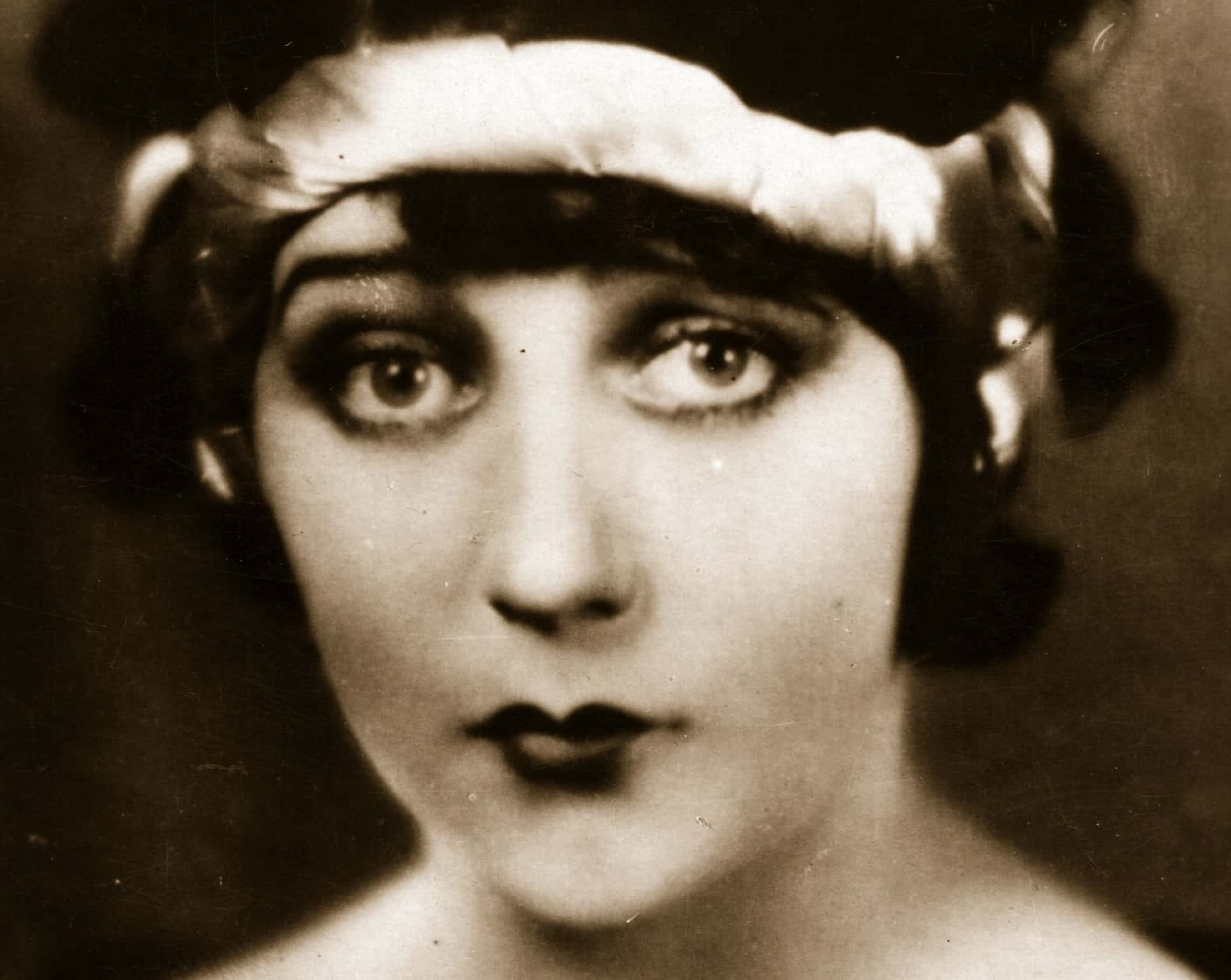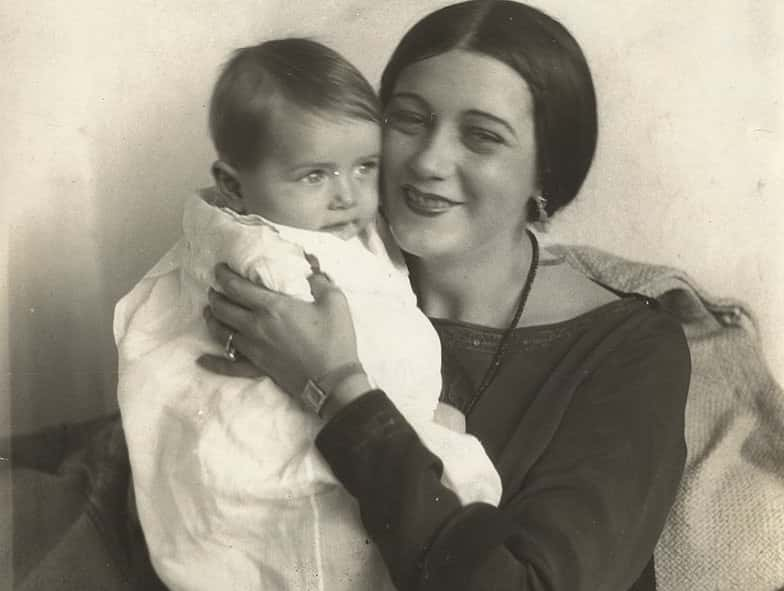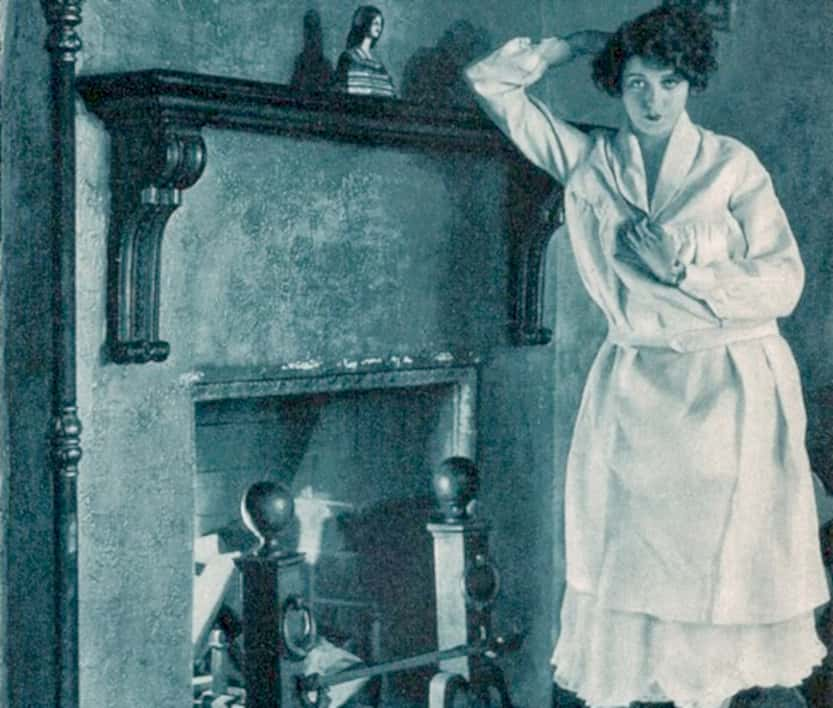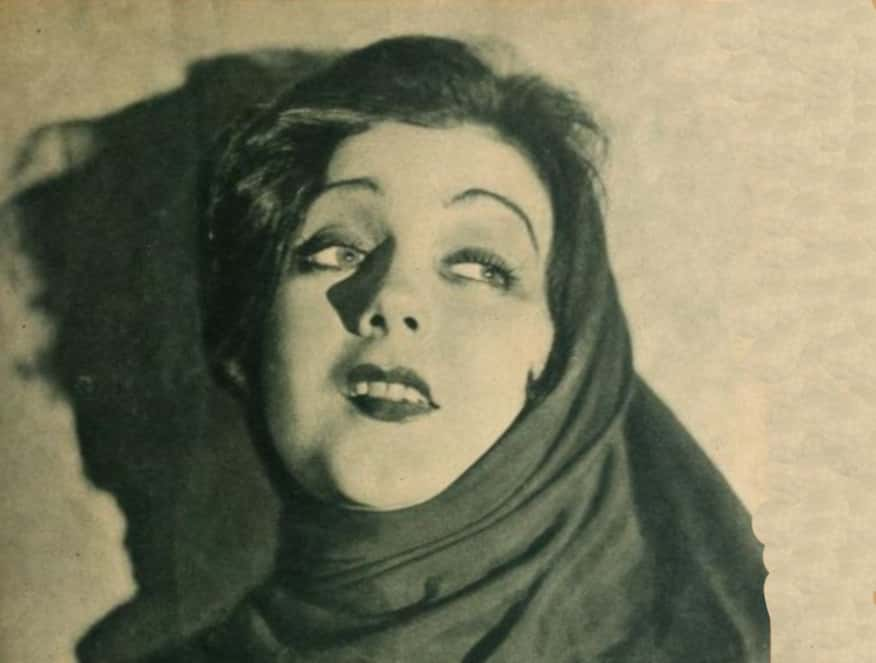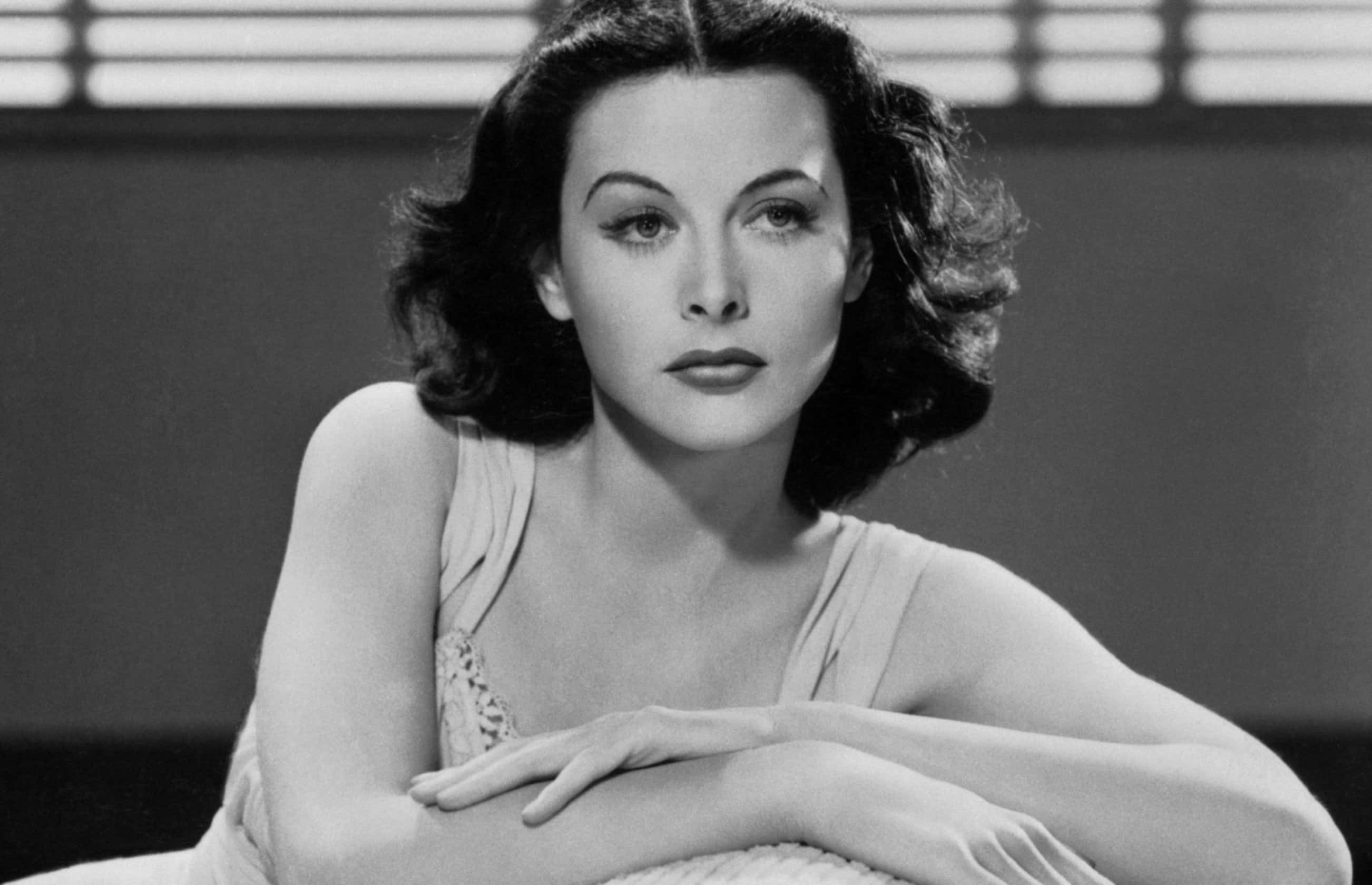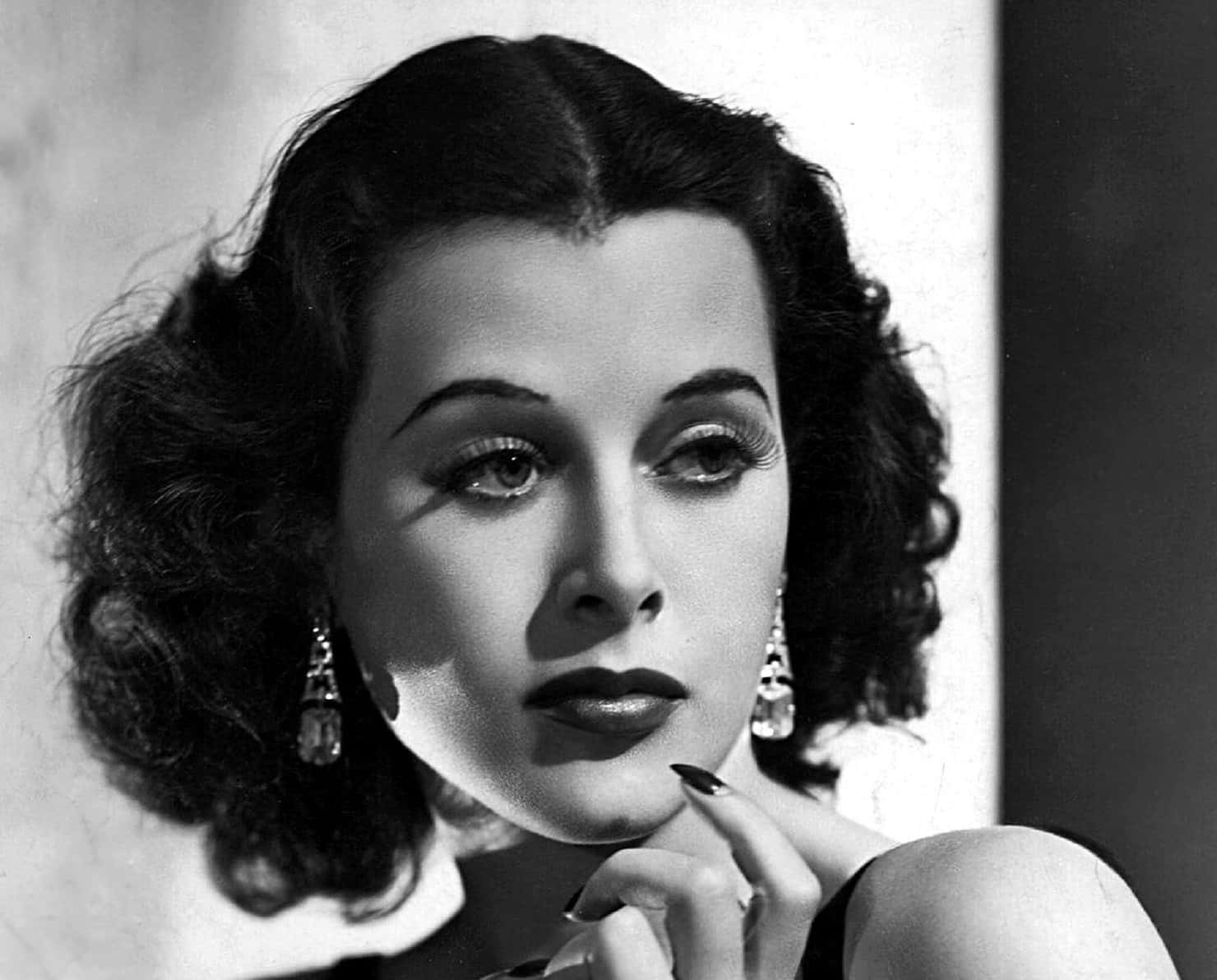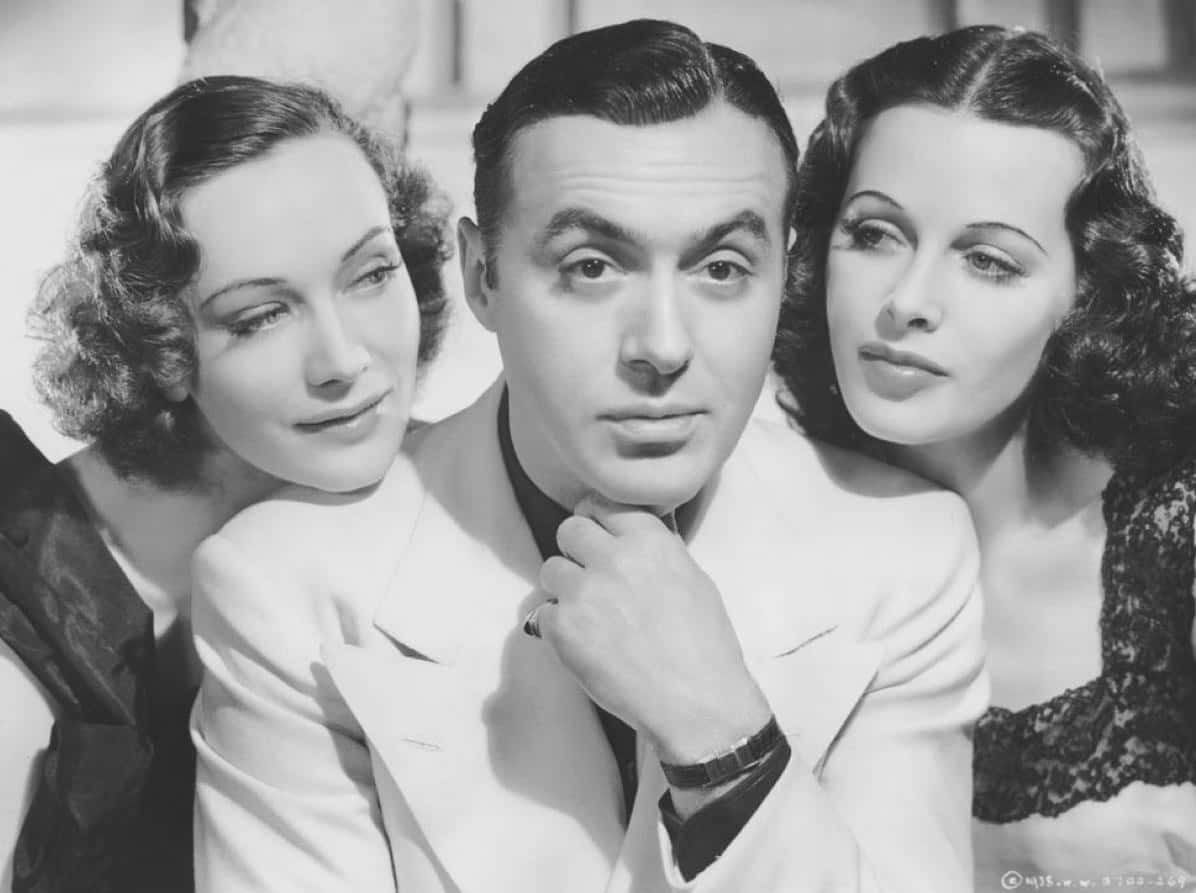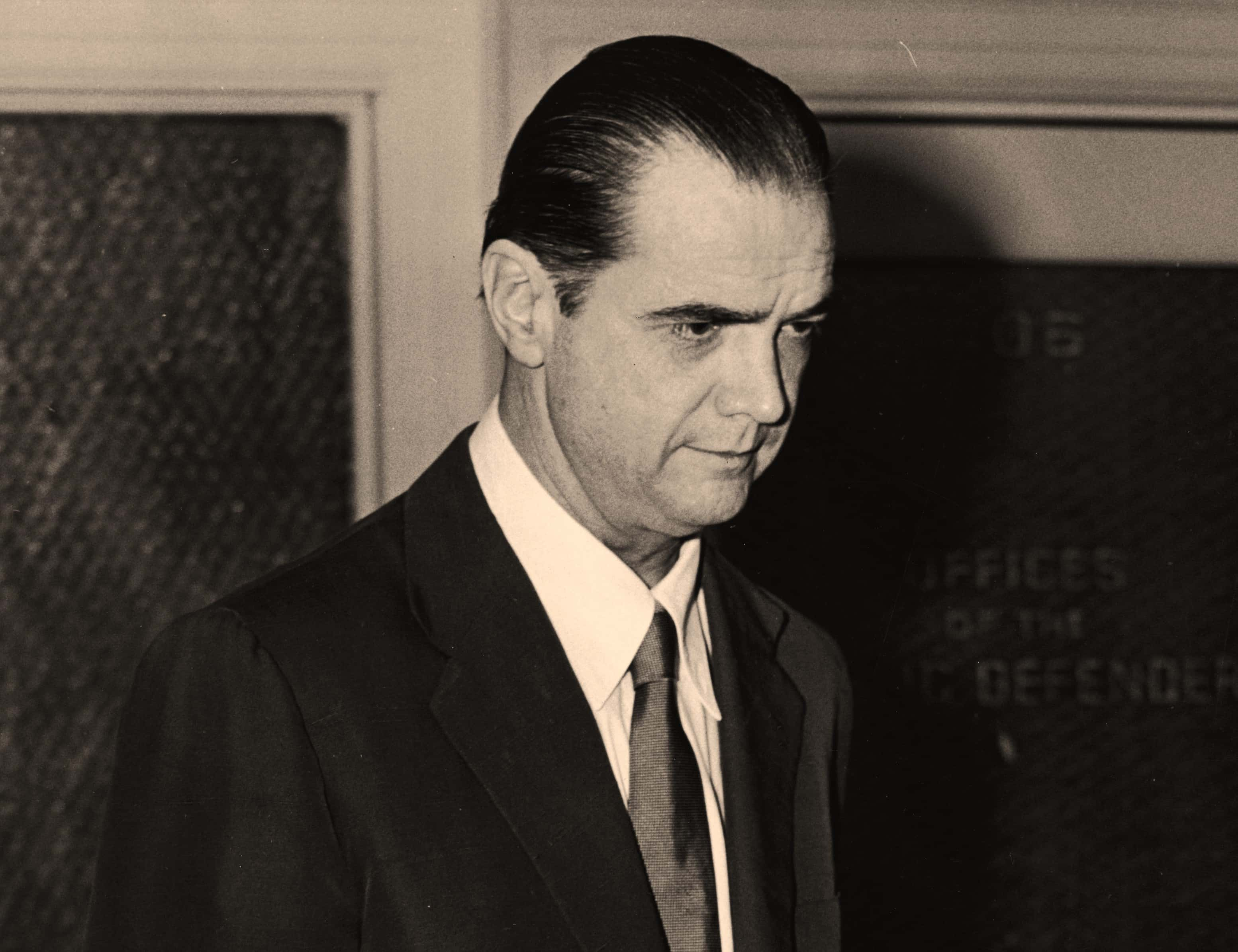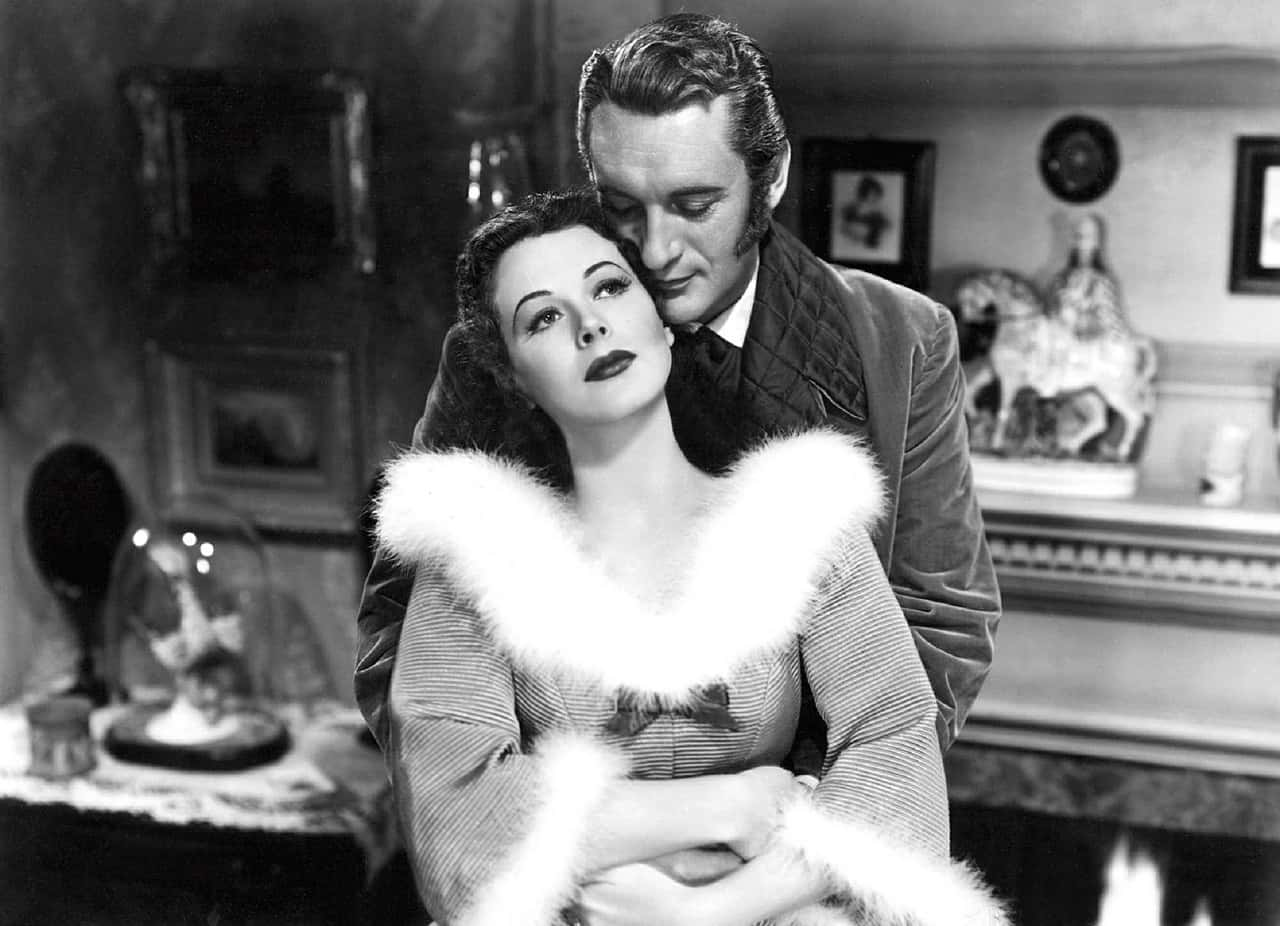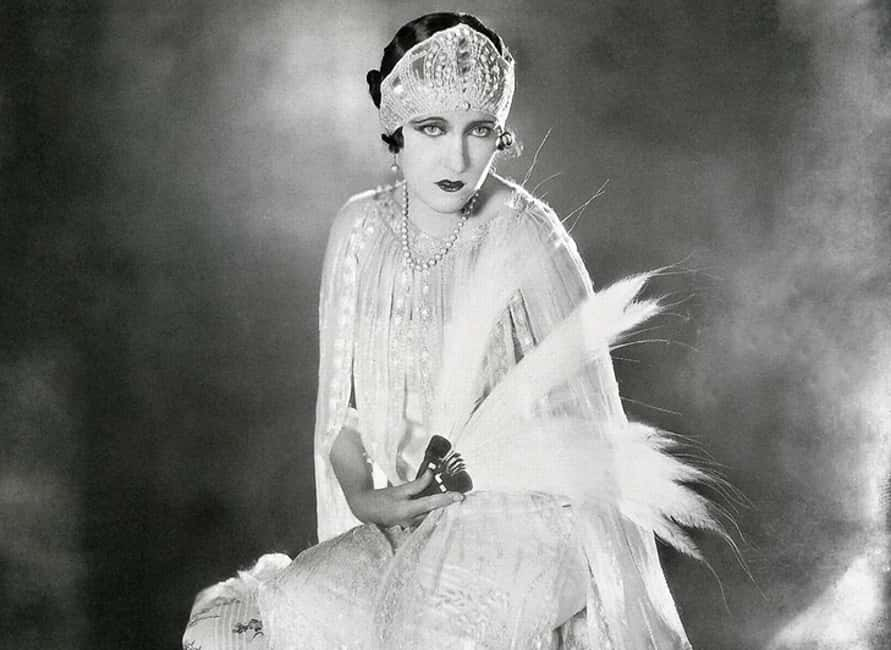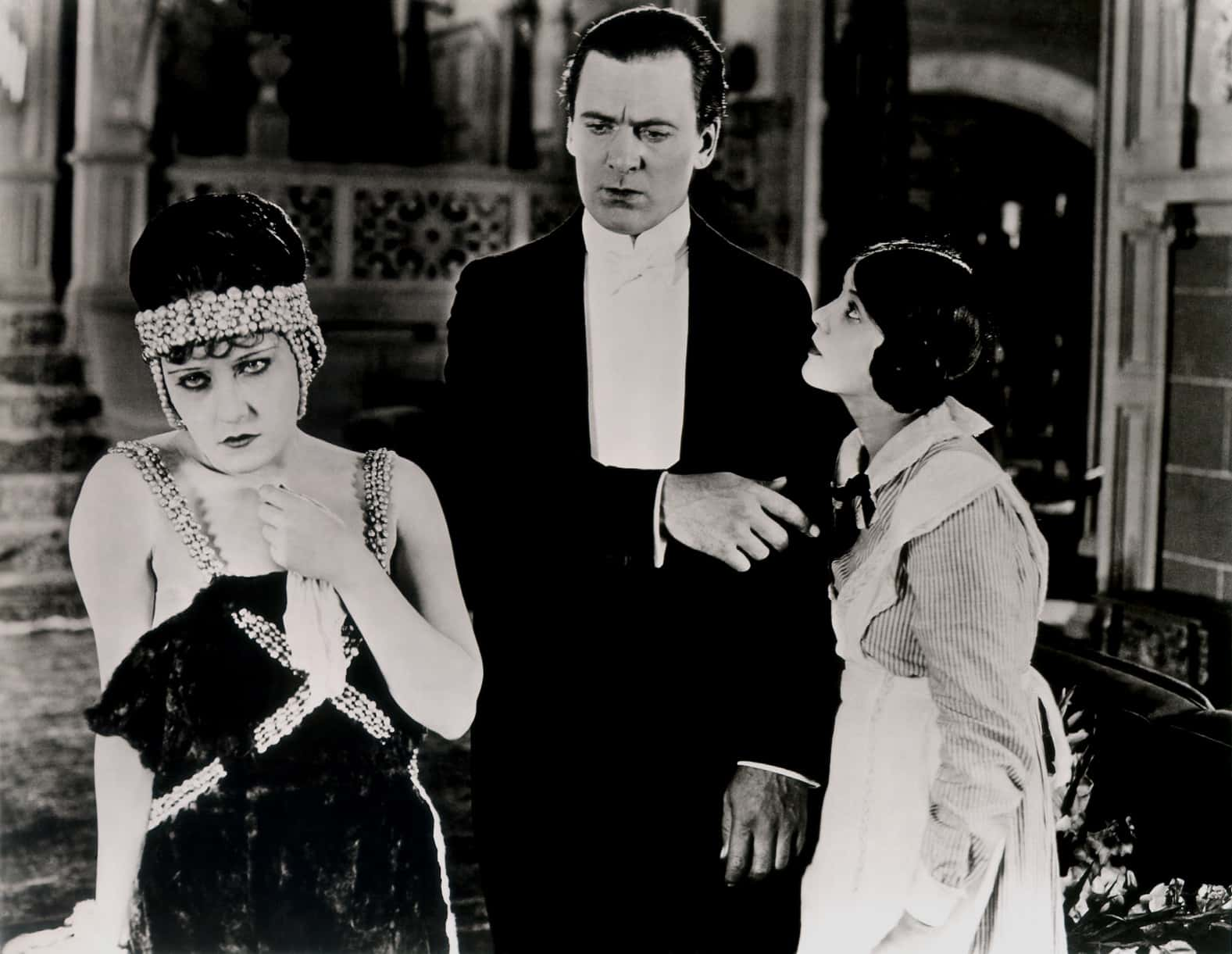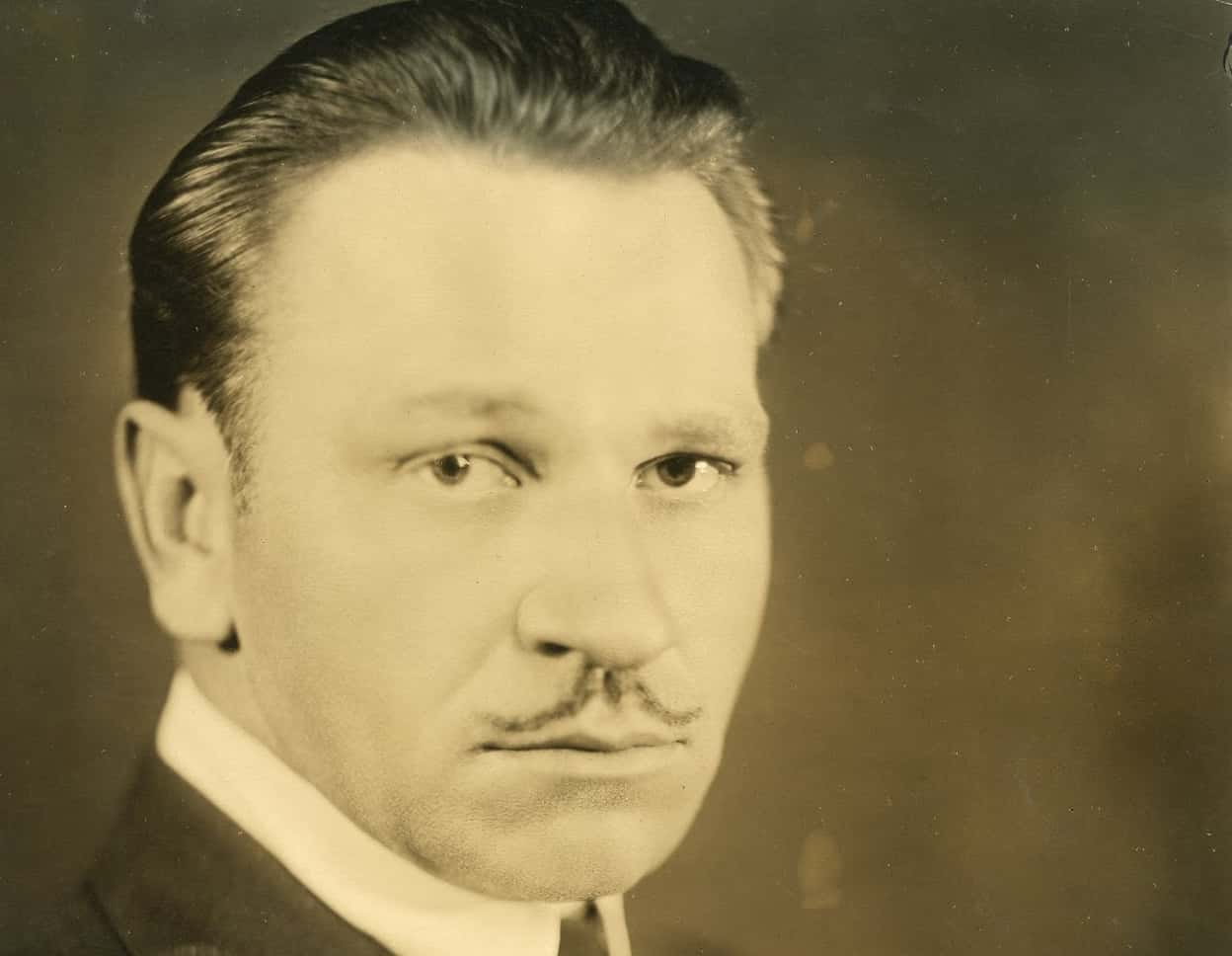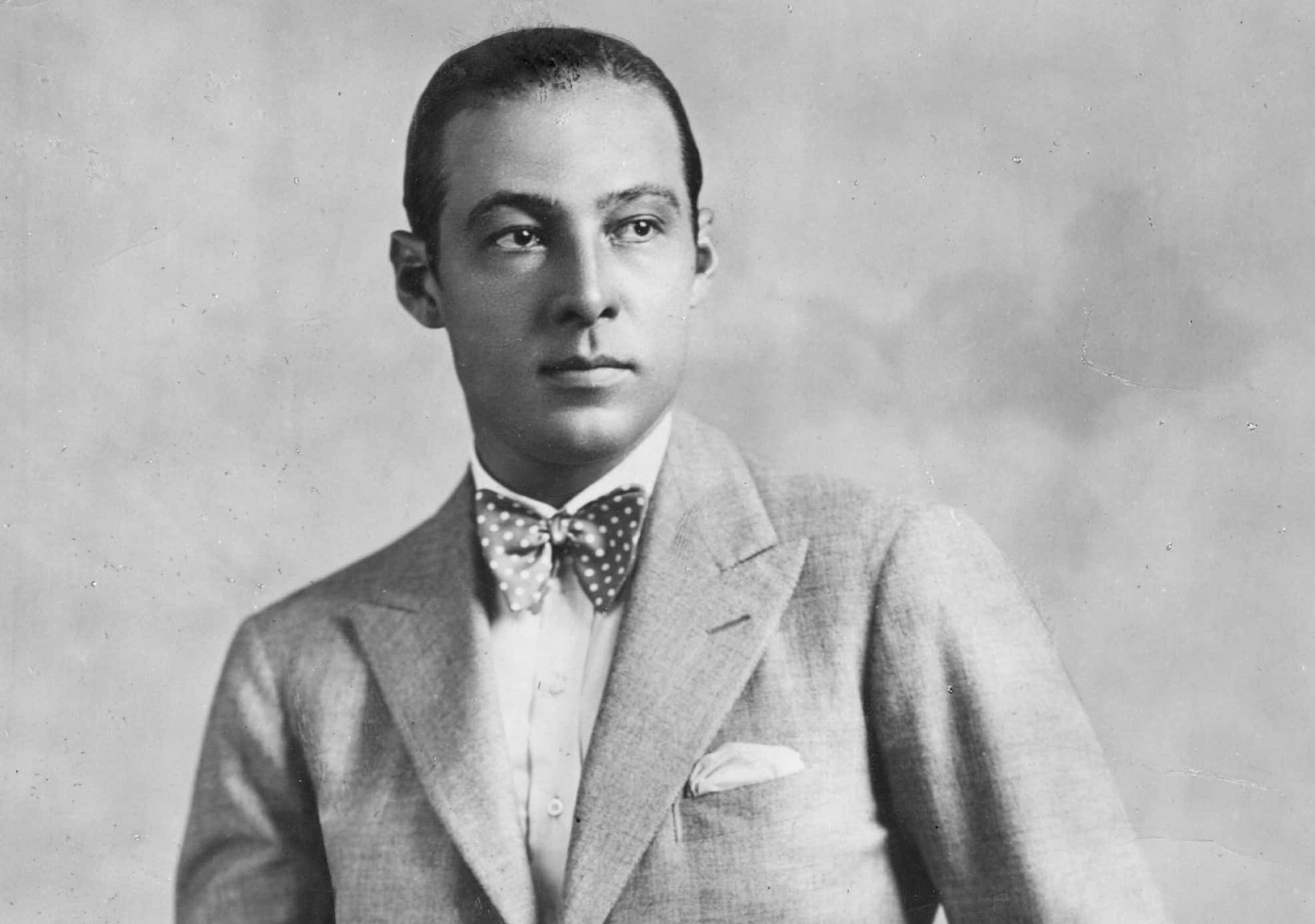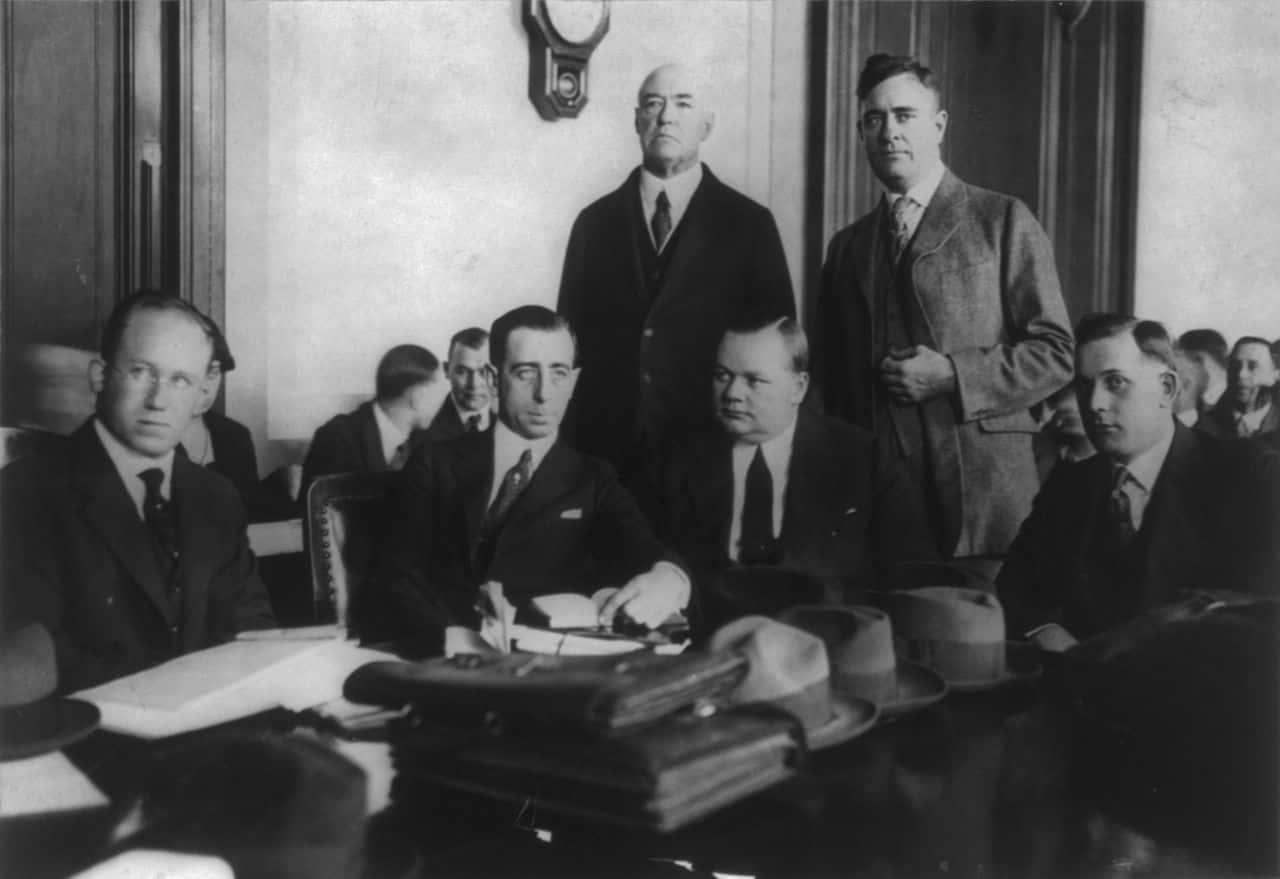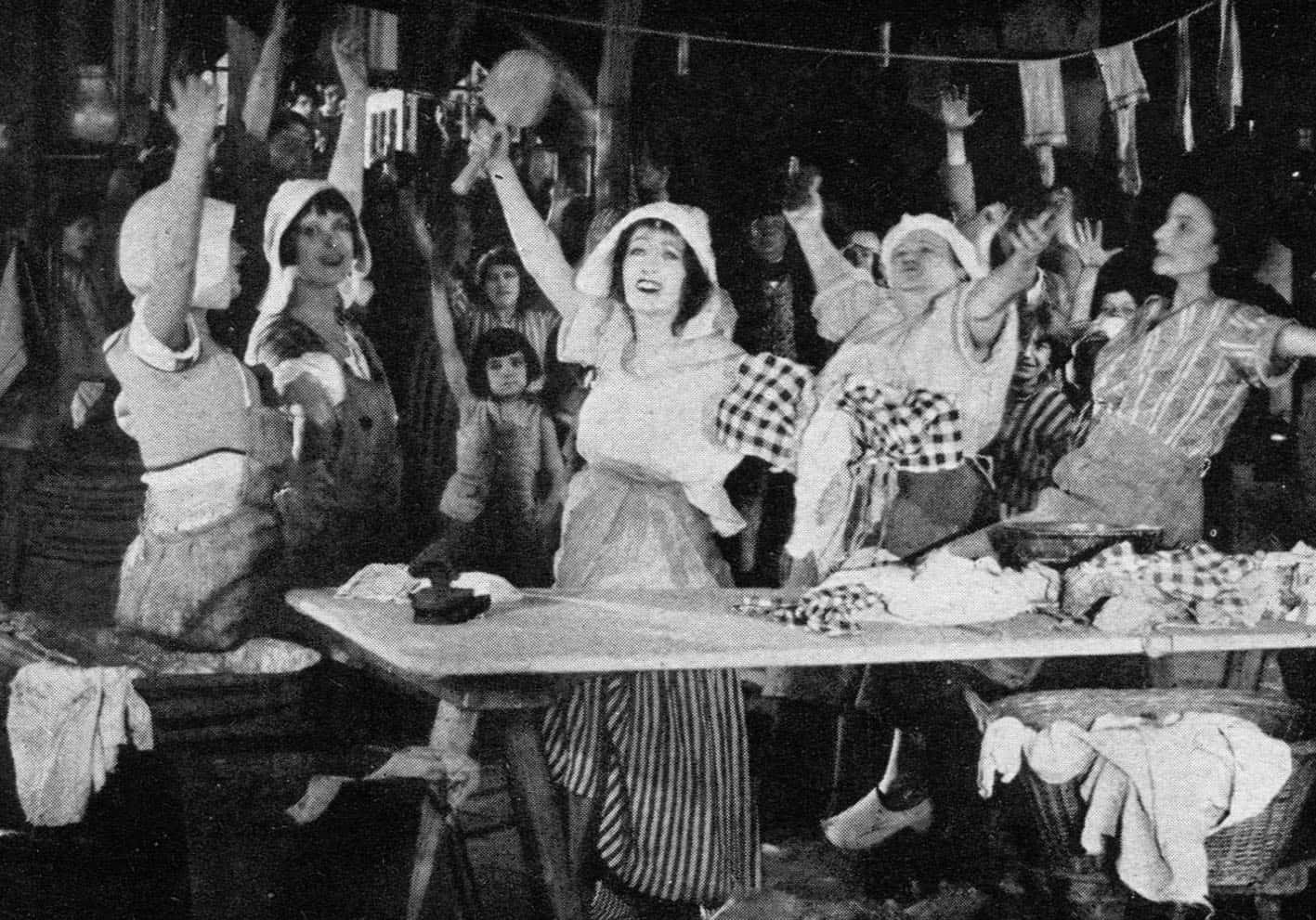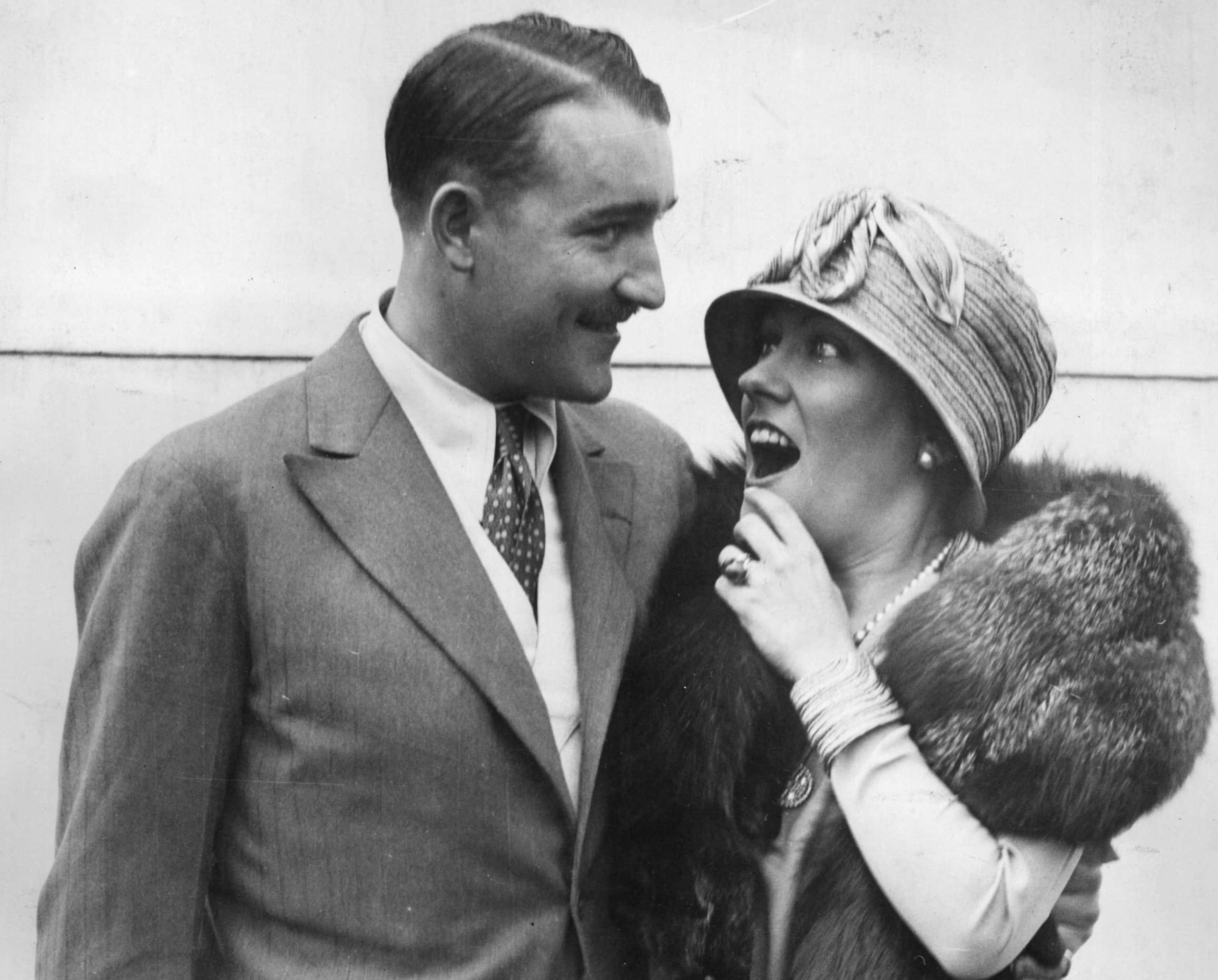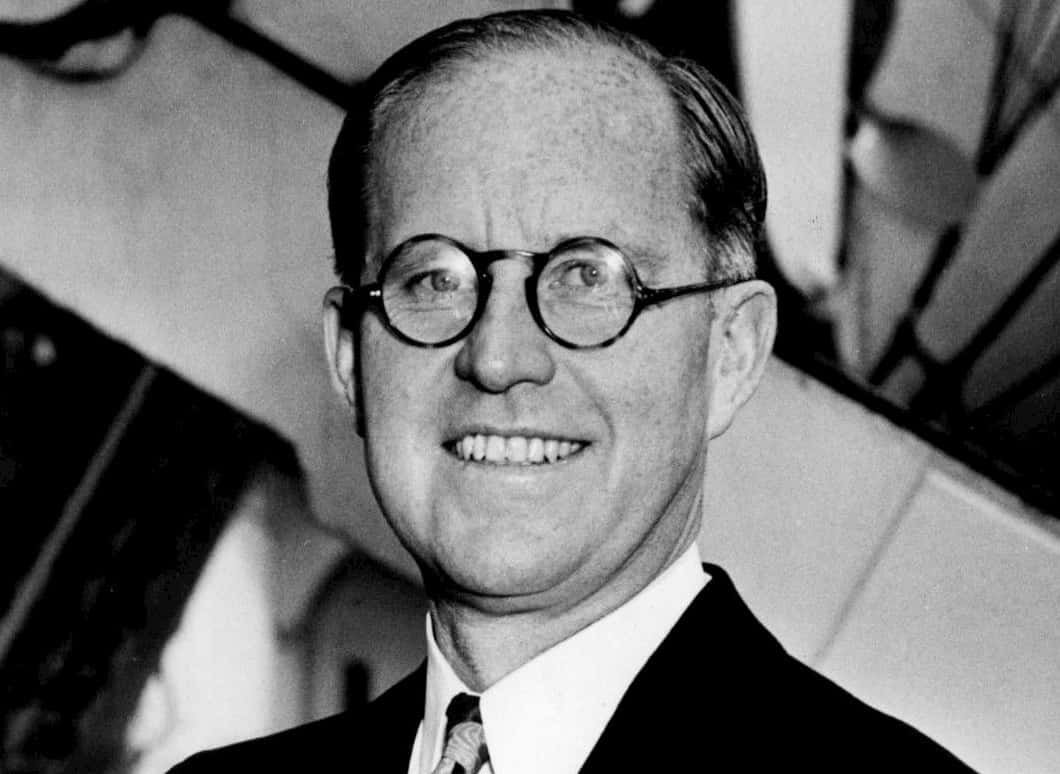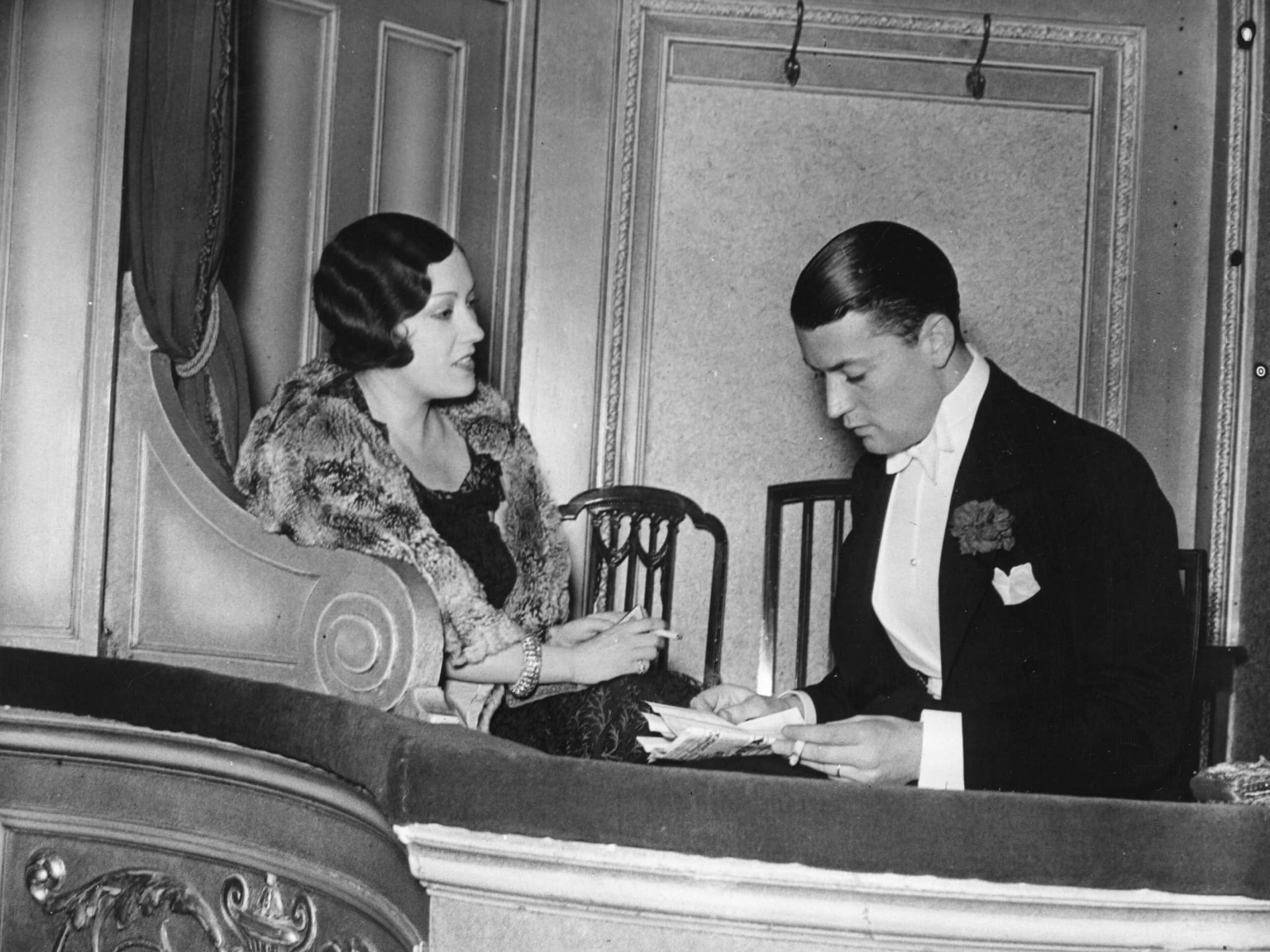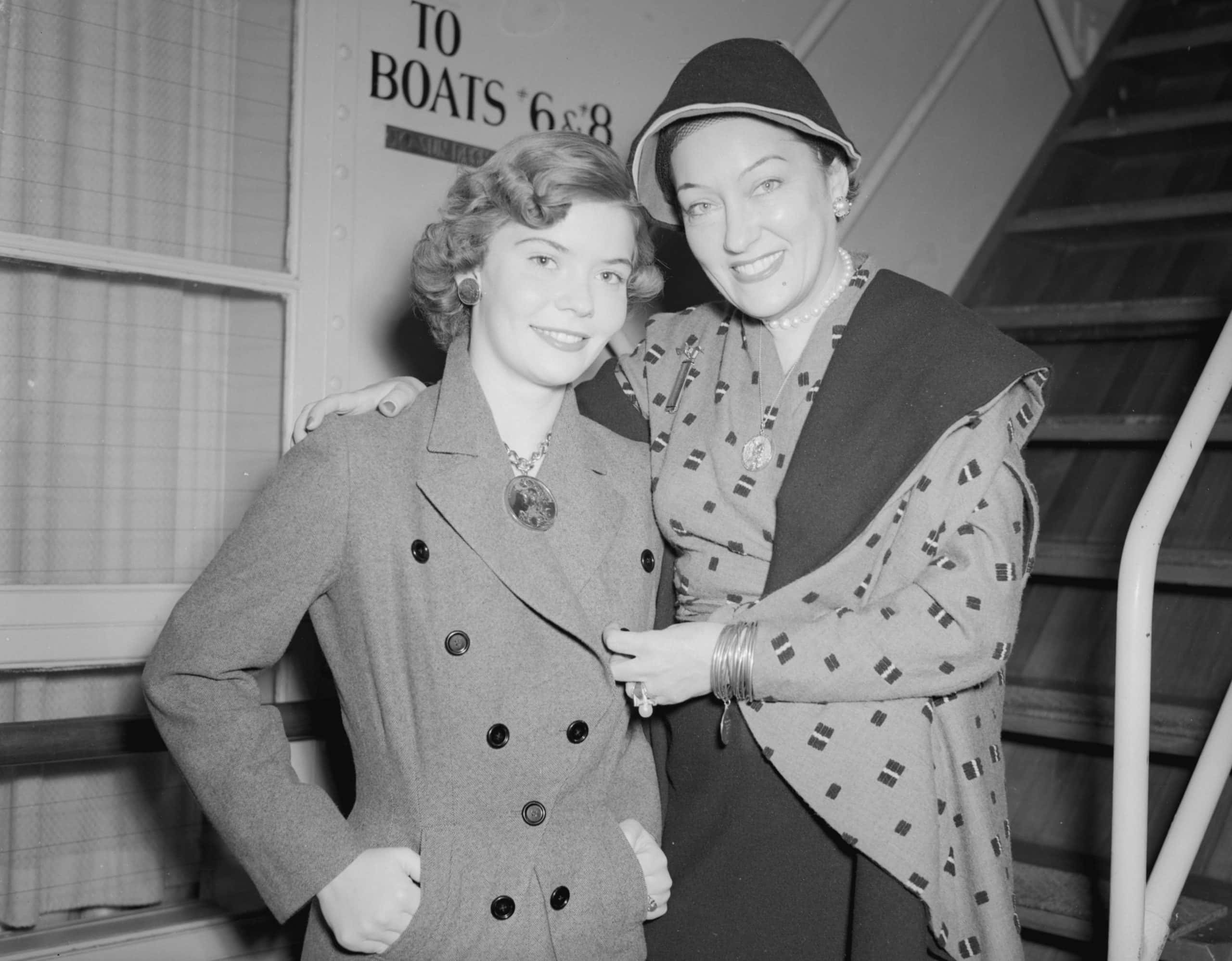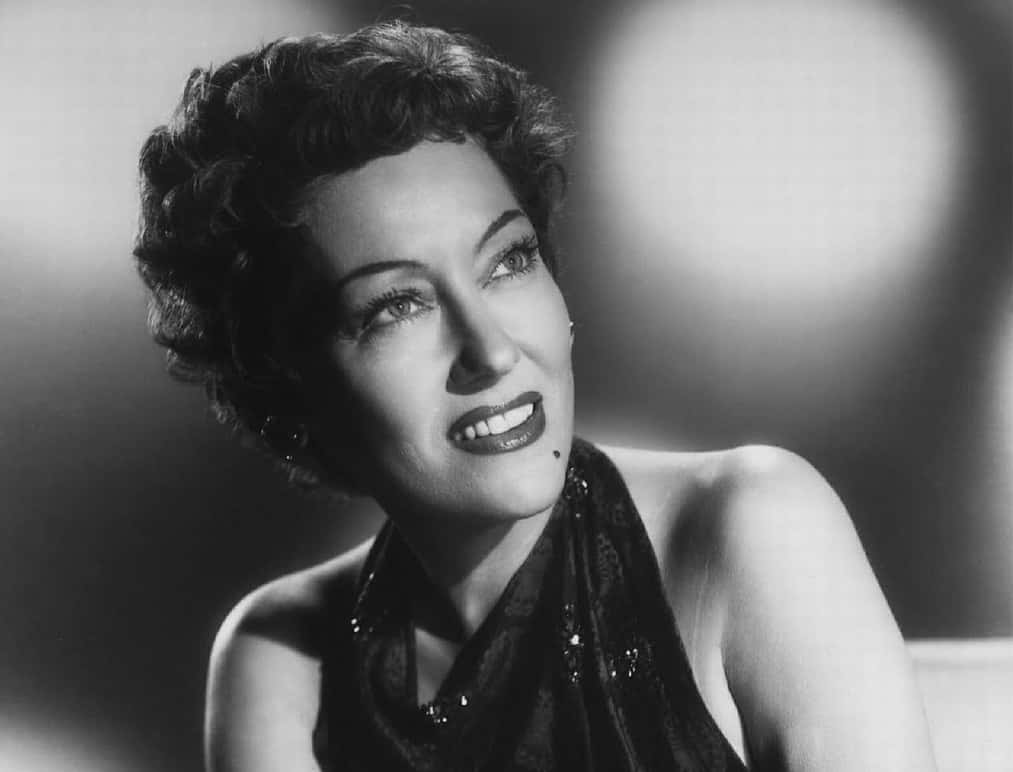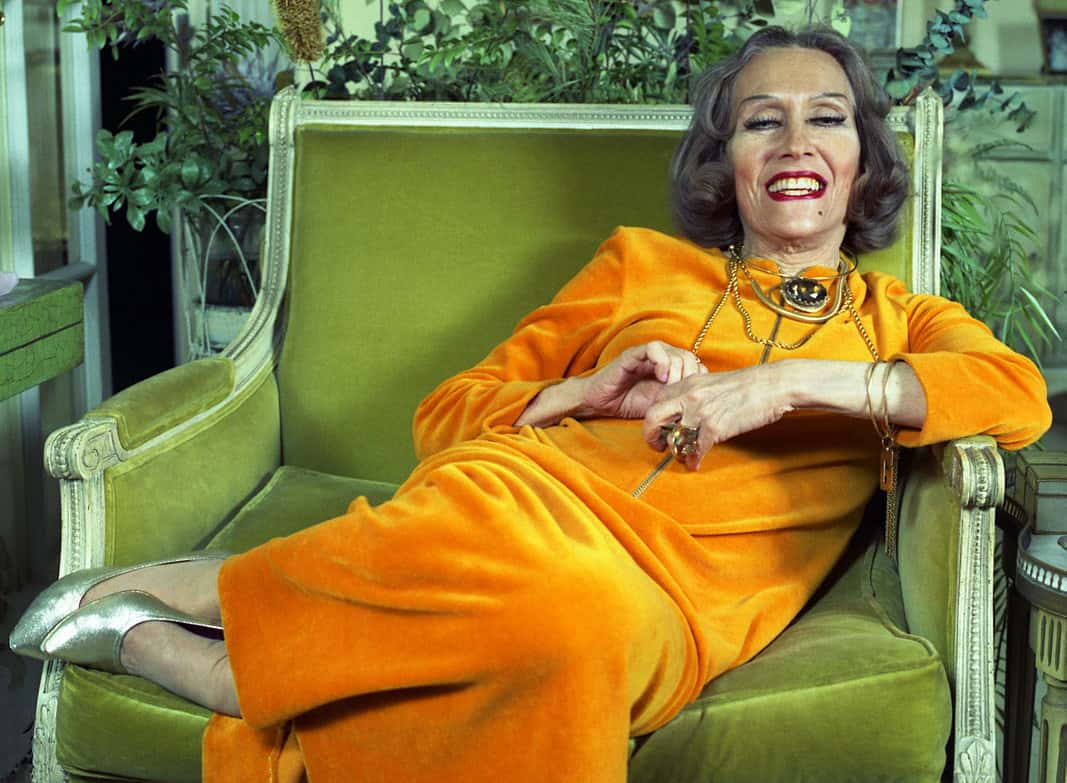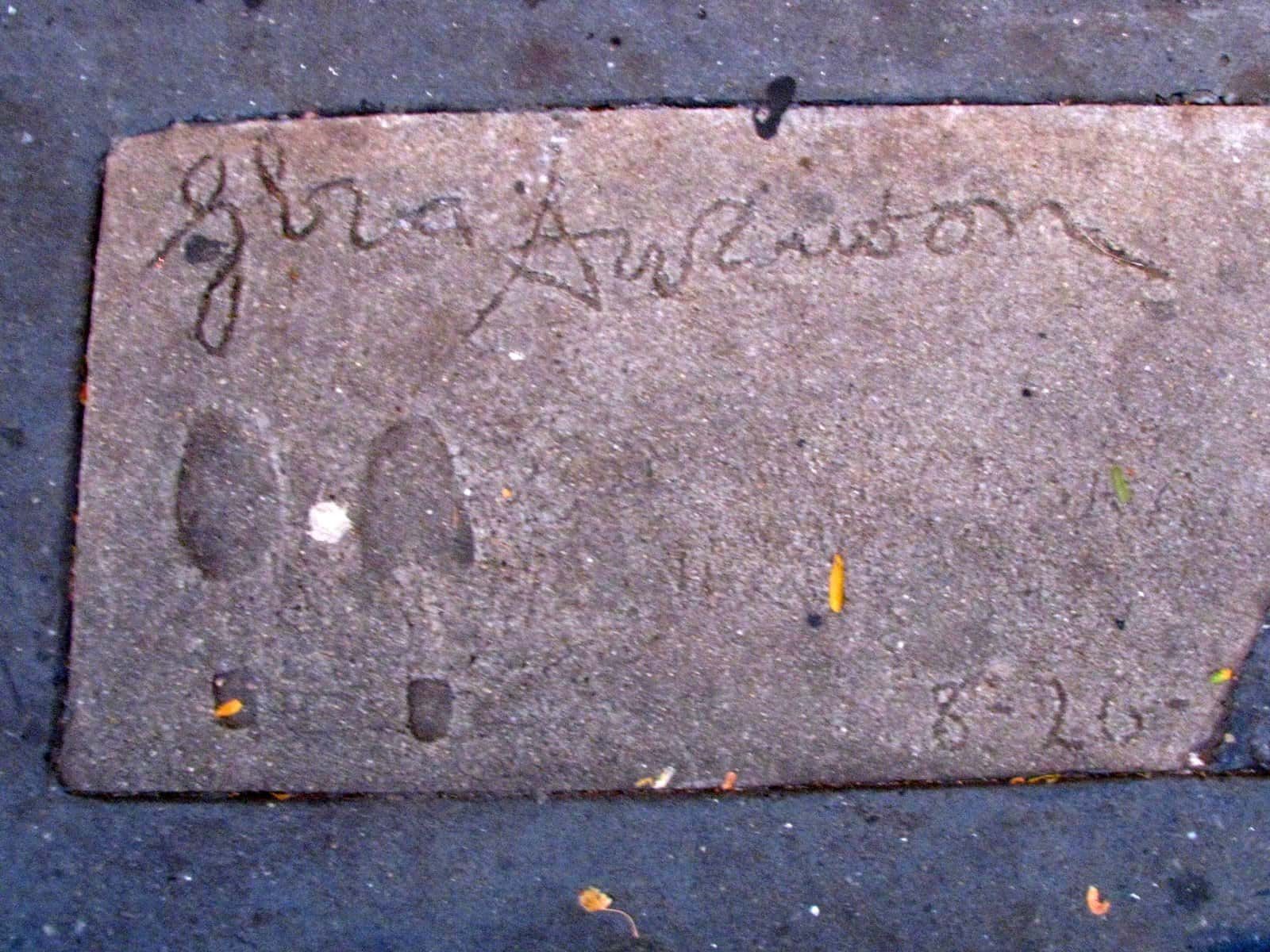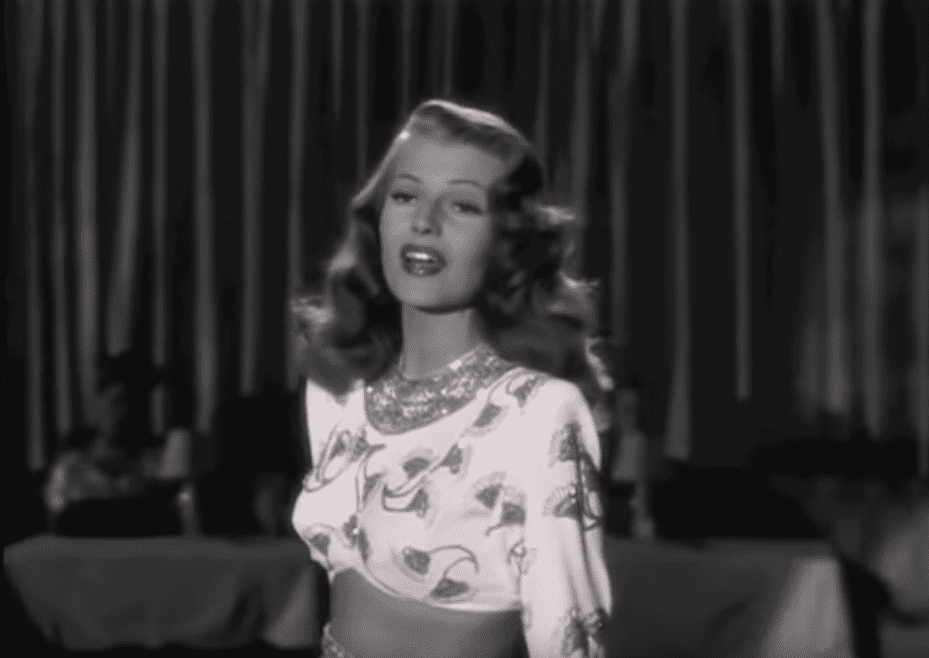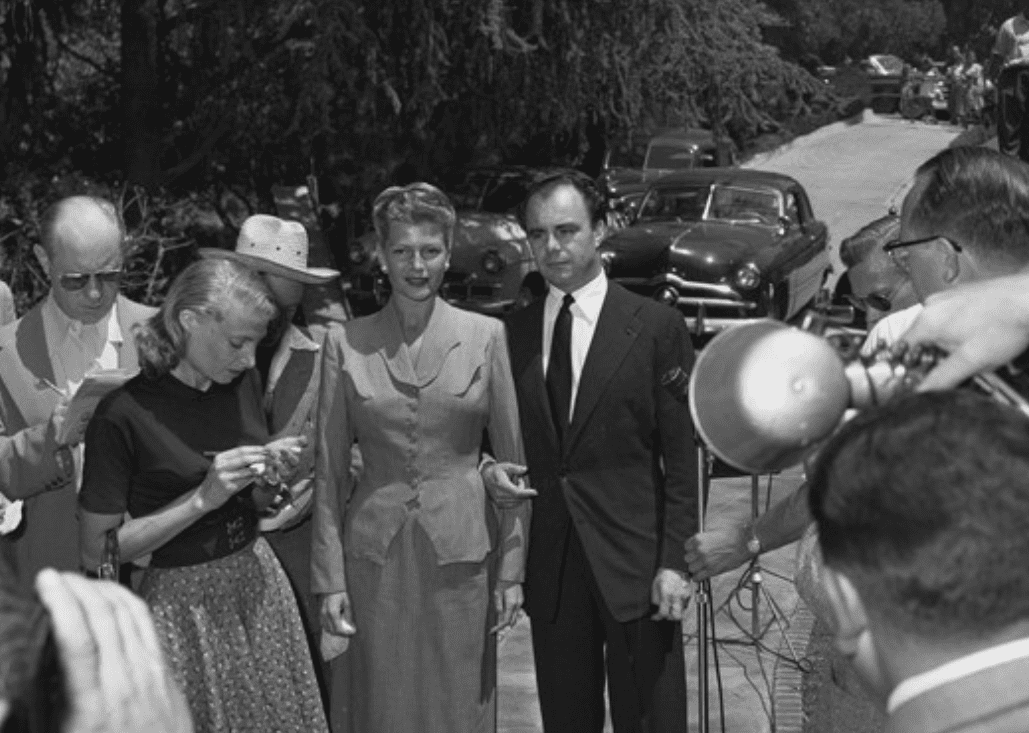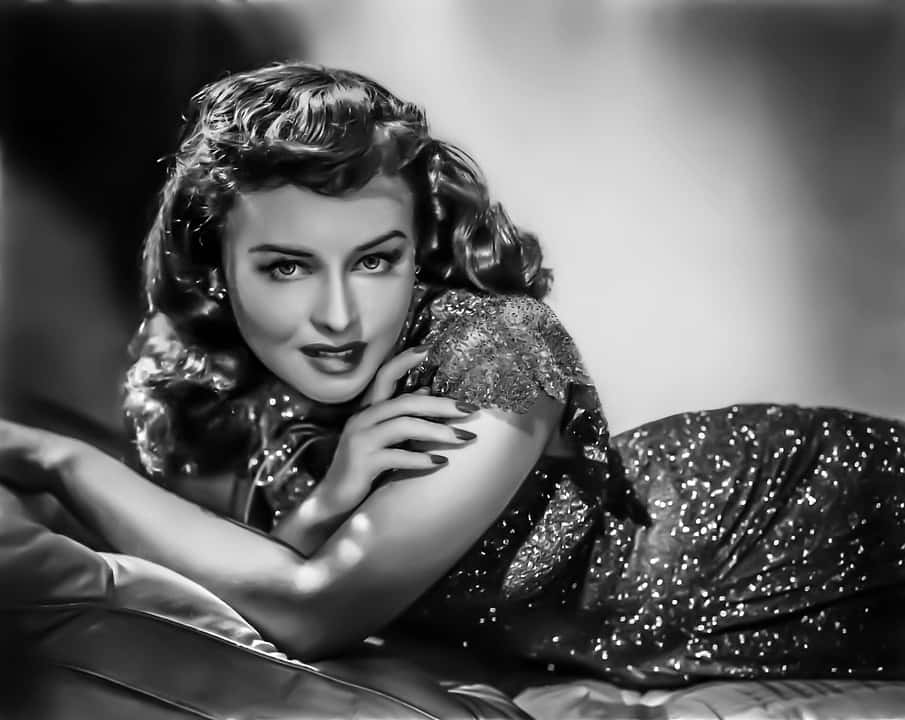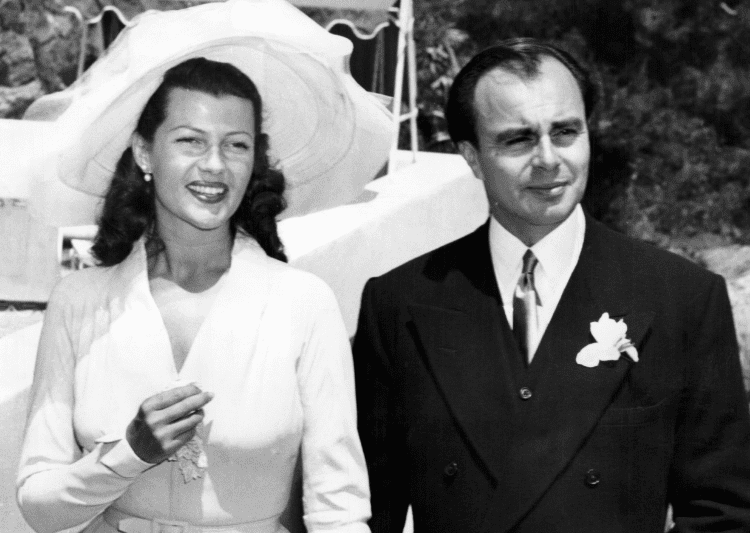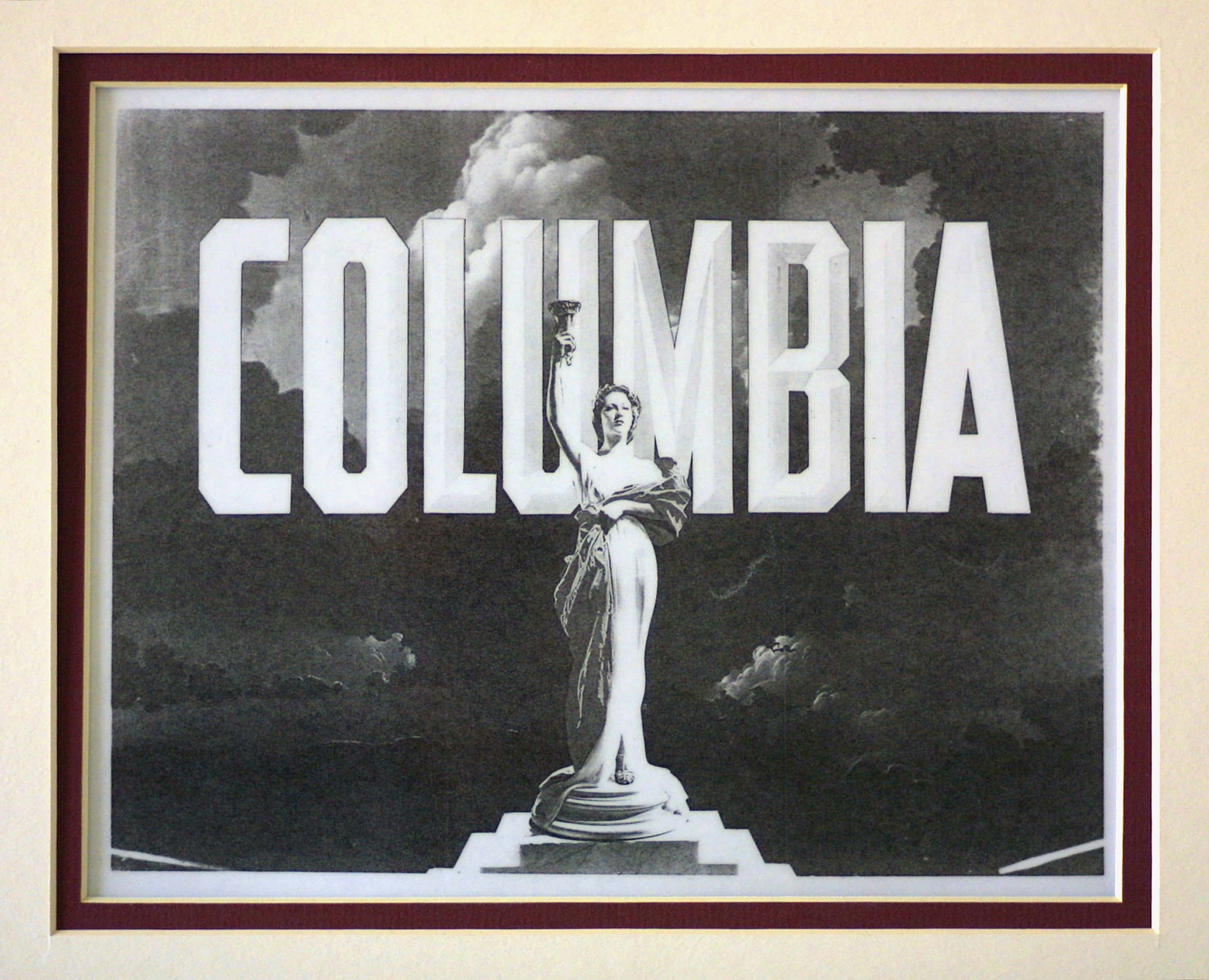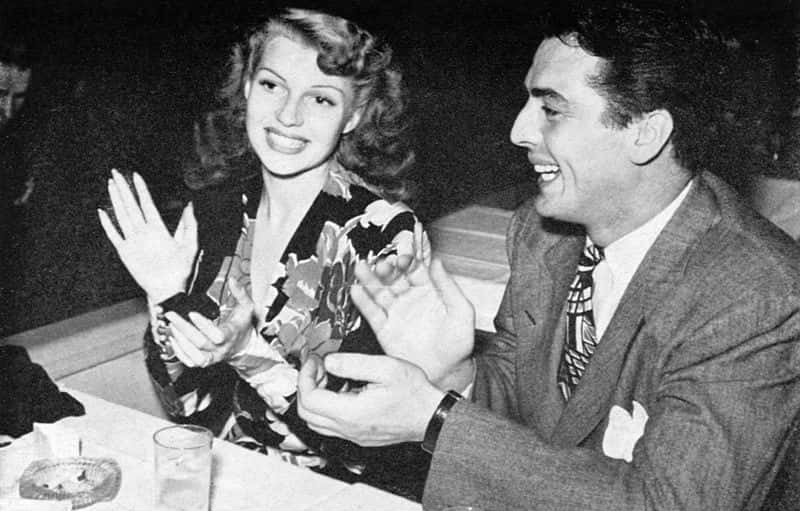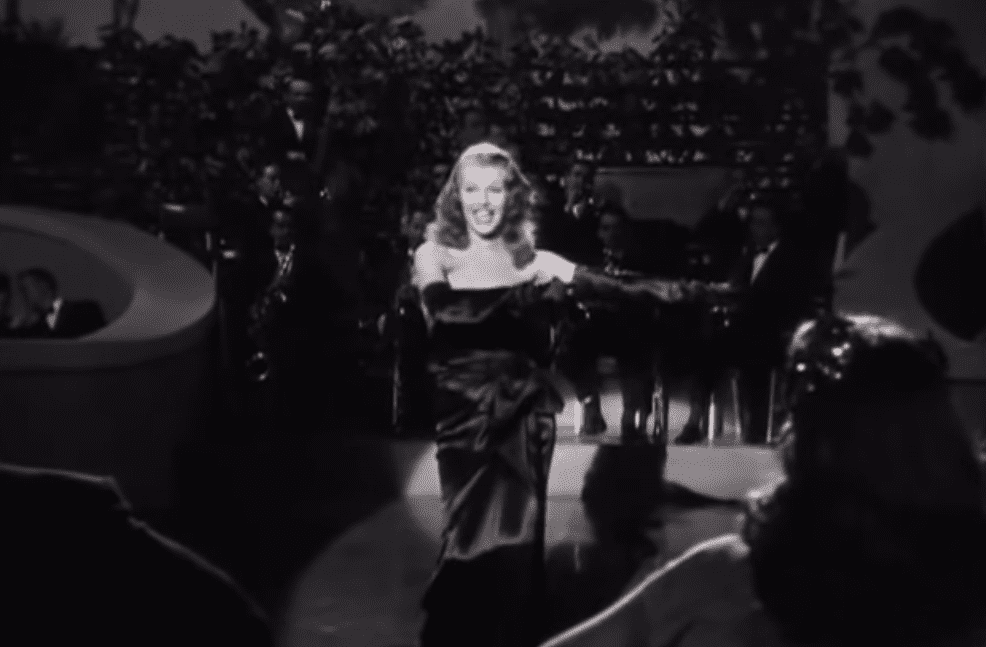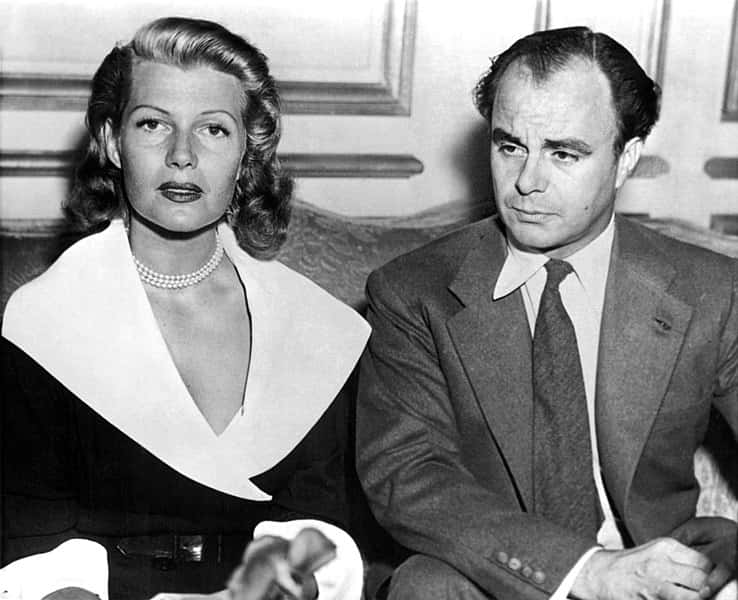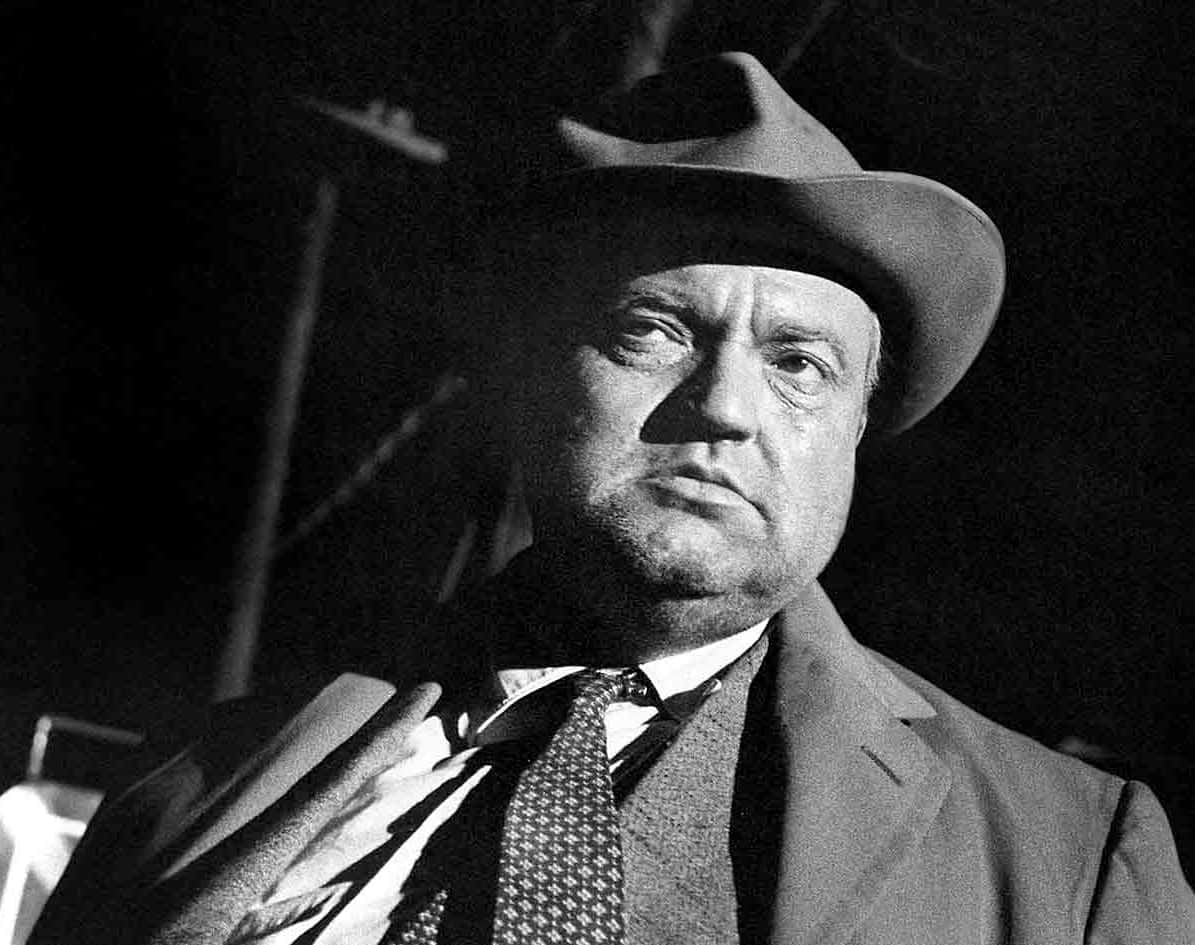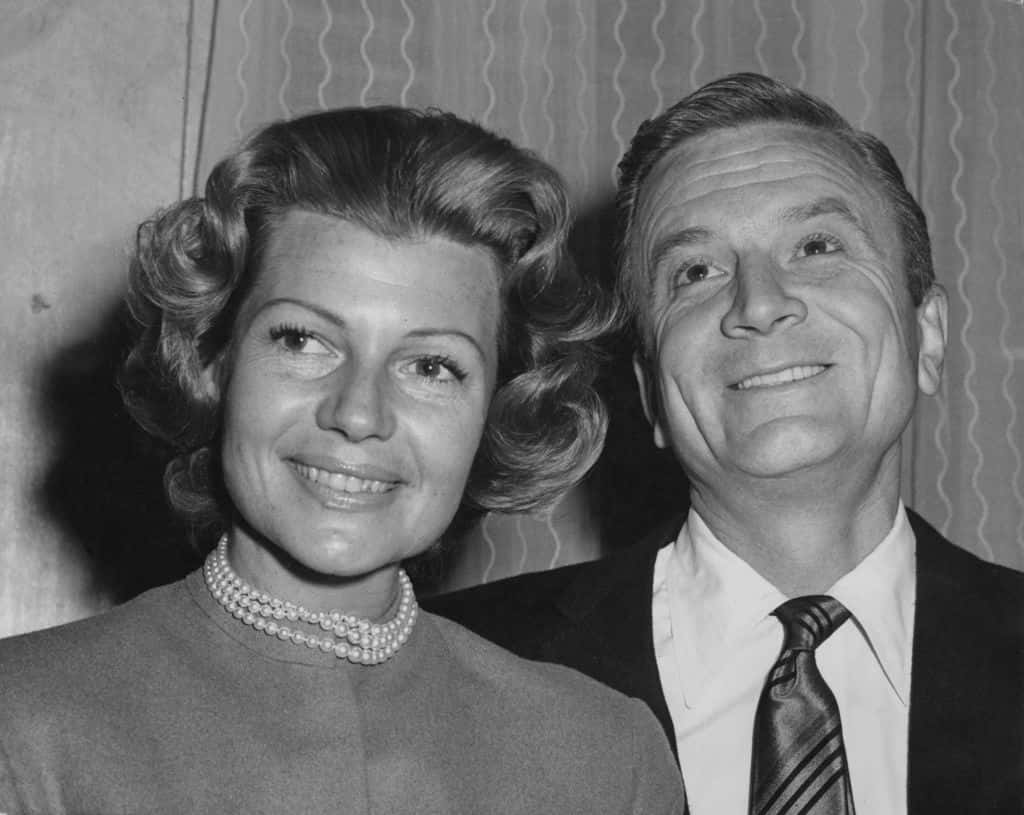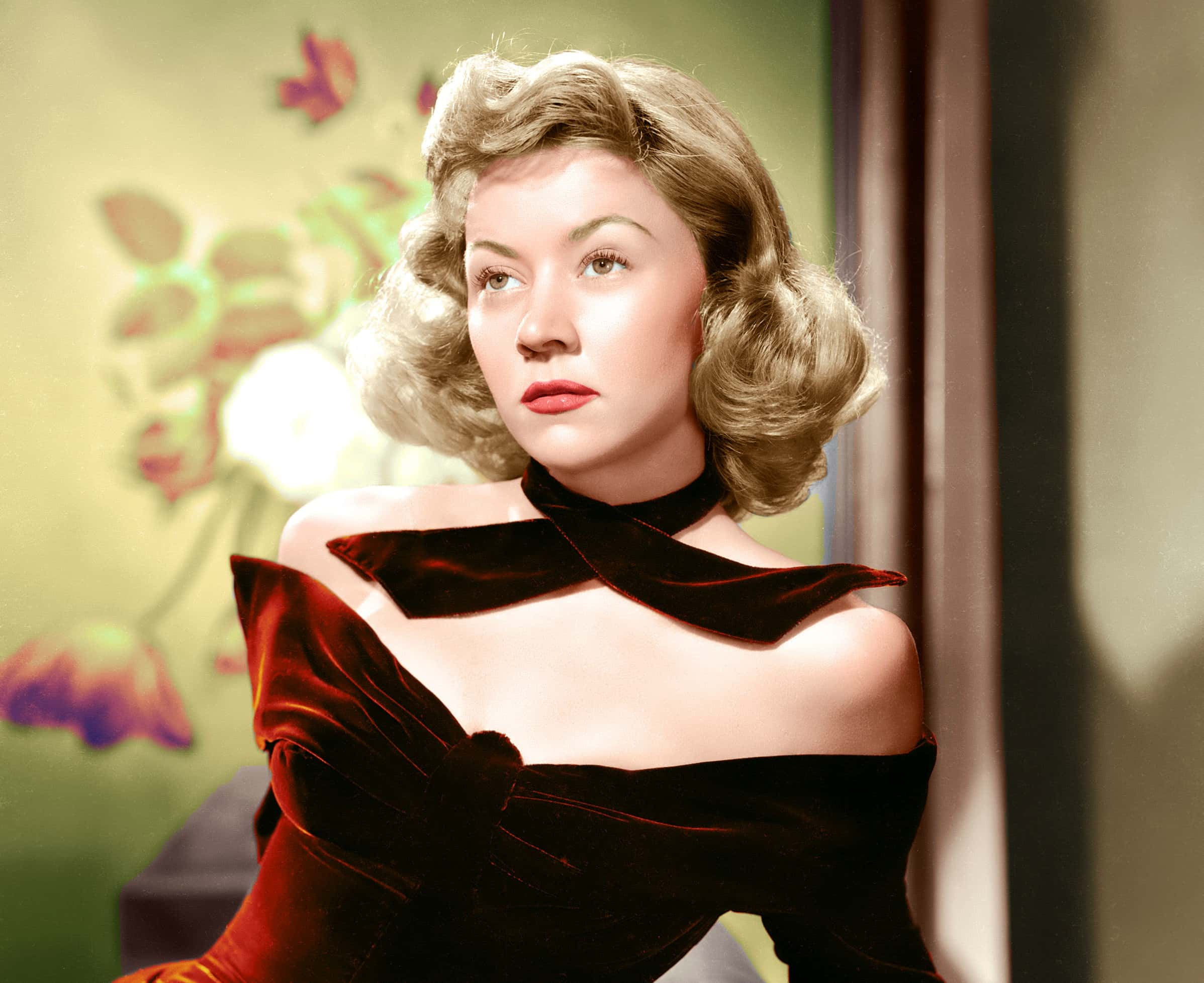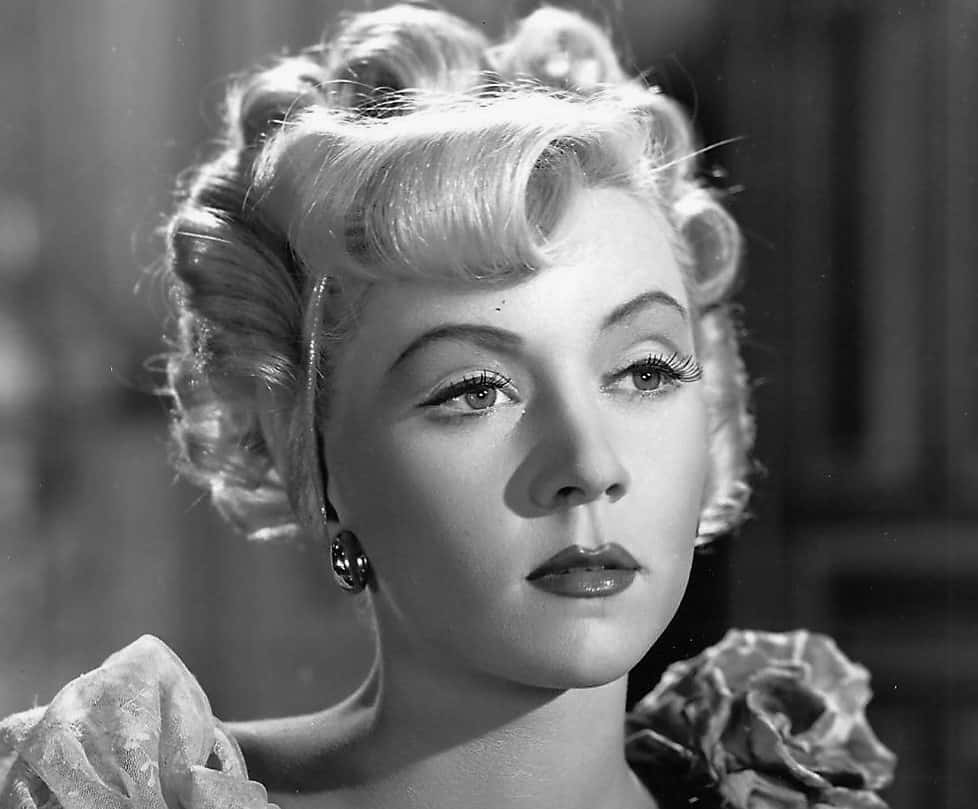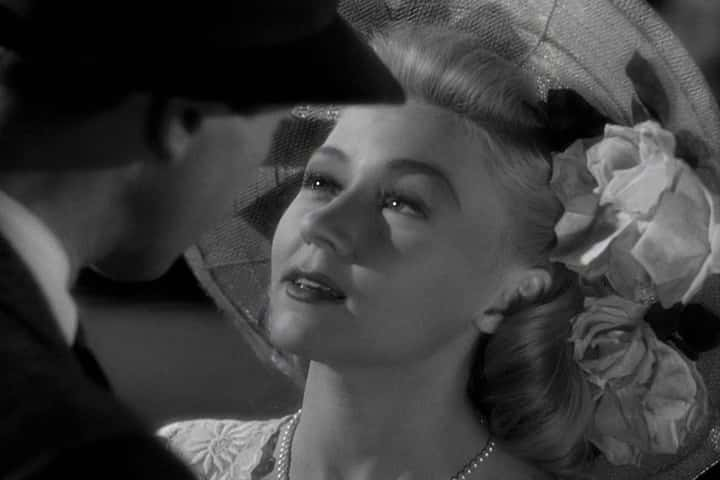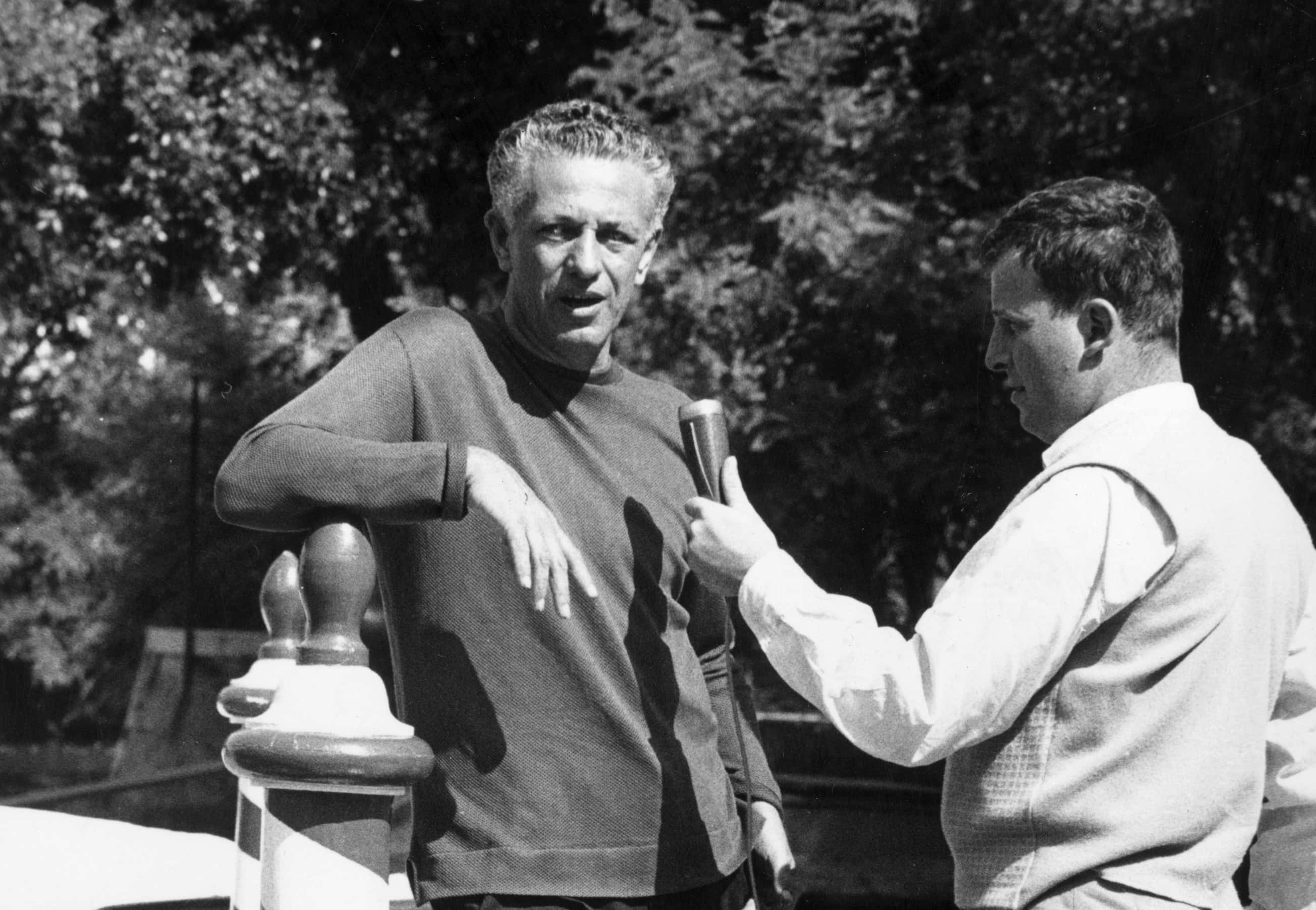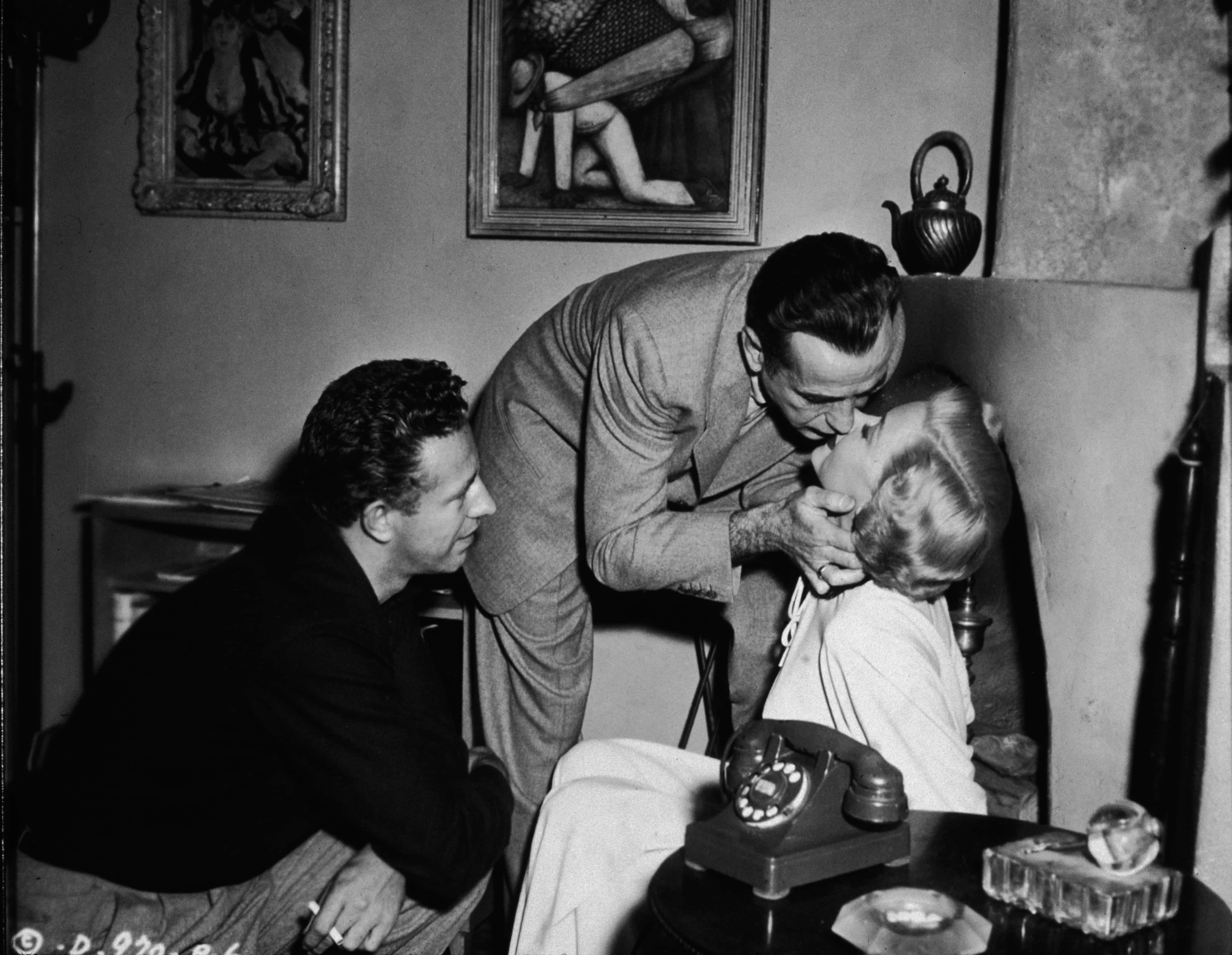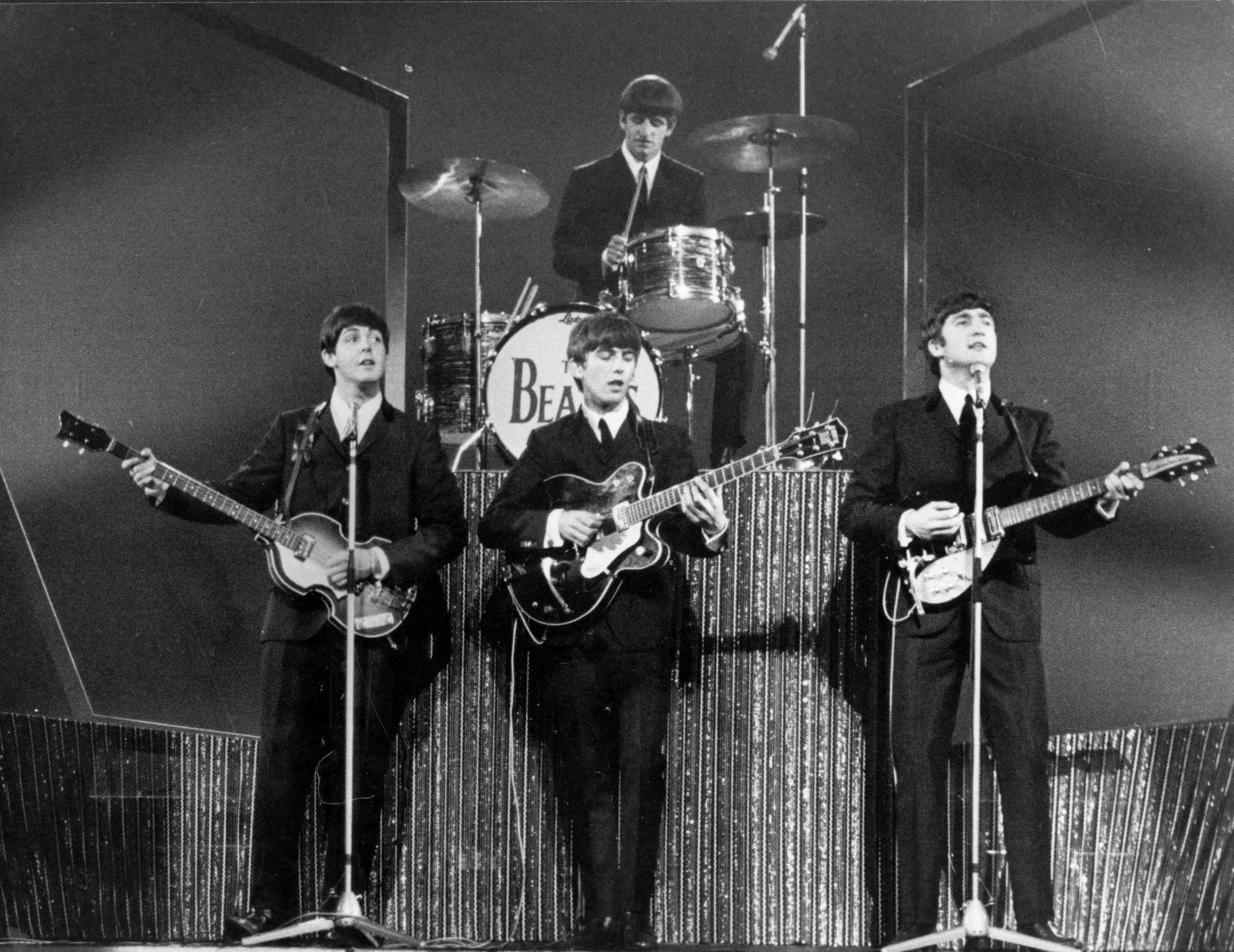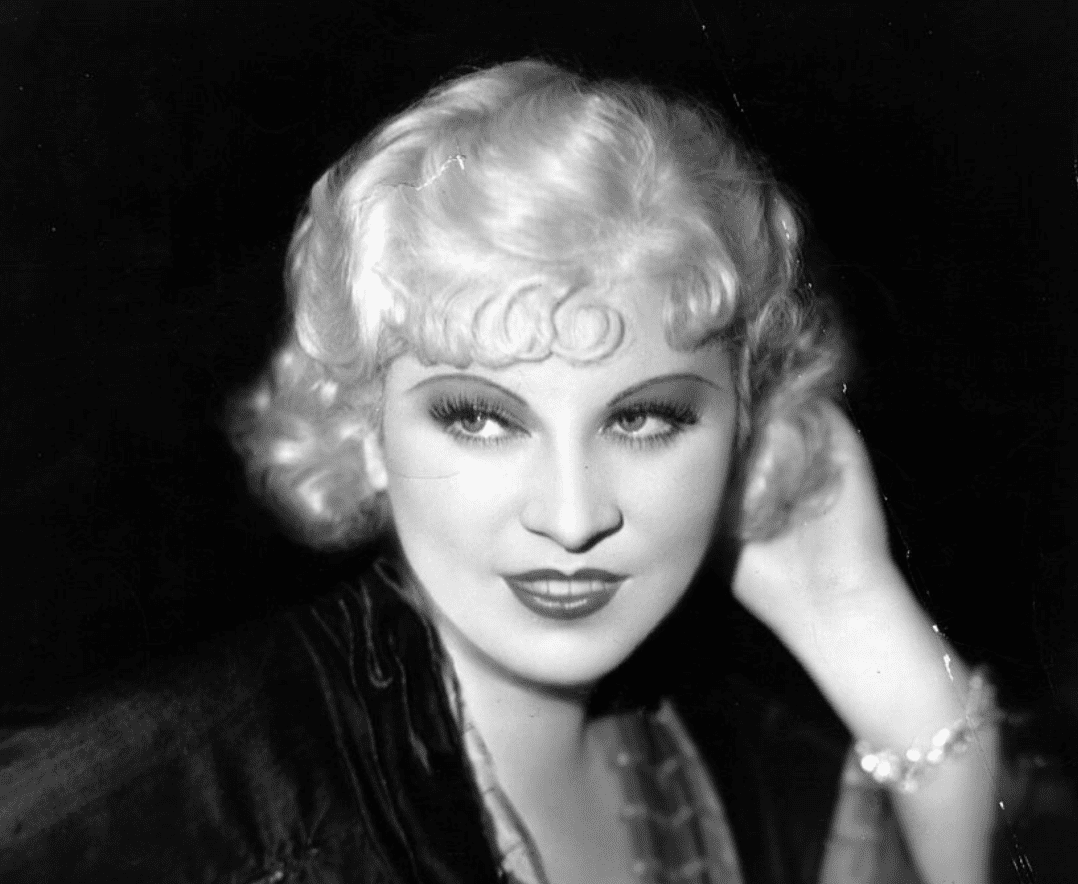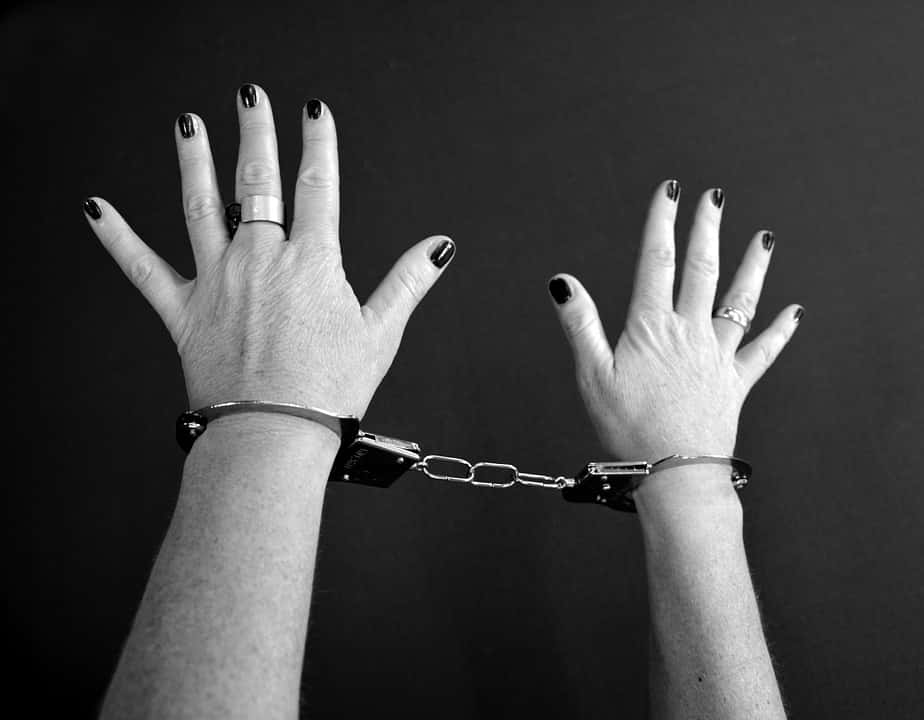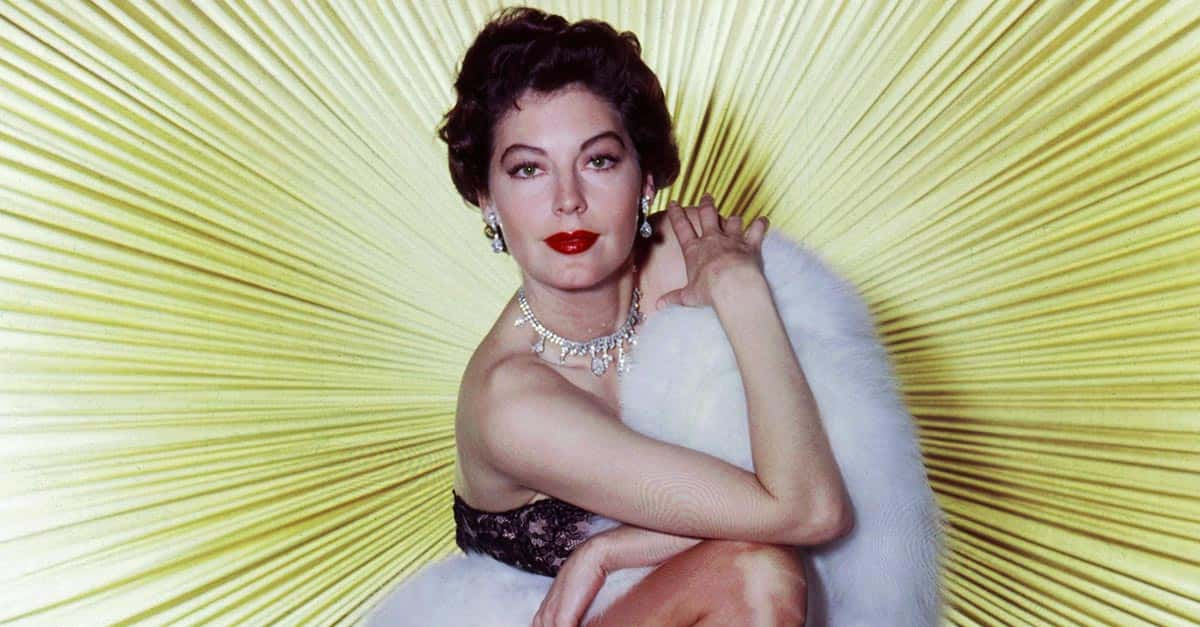A crook. A cradle-robber. A liar concealing a ruinous secret—and more. These women were so scandalous, Hollywood tried desperately to erase them. Let's just say there's a reason they called them "femme fatales." Here are their whole, hidden histories.
Jean Harlow: The Platinum Blonde Tragedy
For a time in the 1930s, Jean Harlow was the biggest star in Hollywood. Her vampy good looks, easy glamour, and natural sensual appeal earned her the nickname “The Blonde Bombshell,” but underneath her polished façade was a tender soul too often hurt by studios and wracked with heartache—all the way until her devastating end.
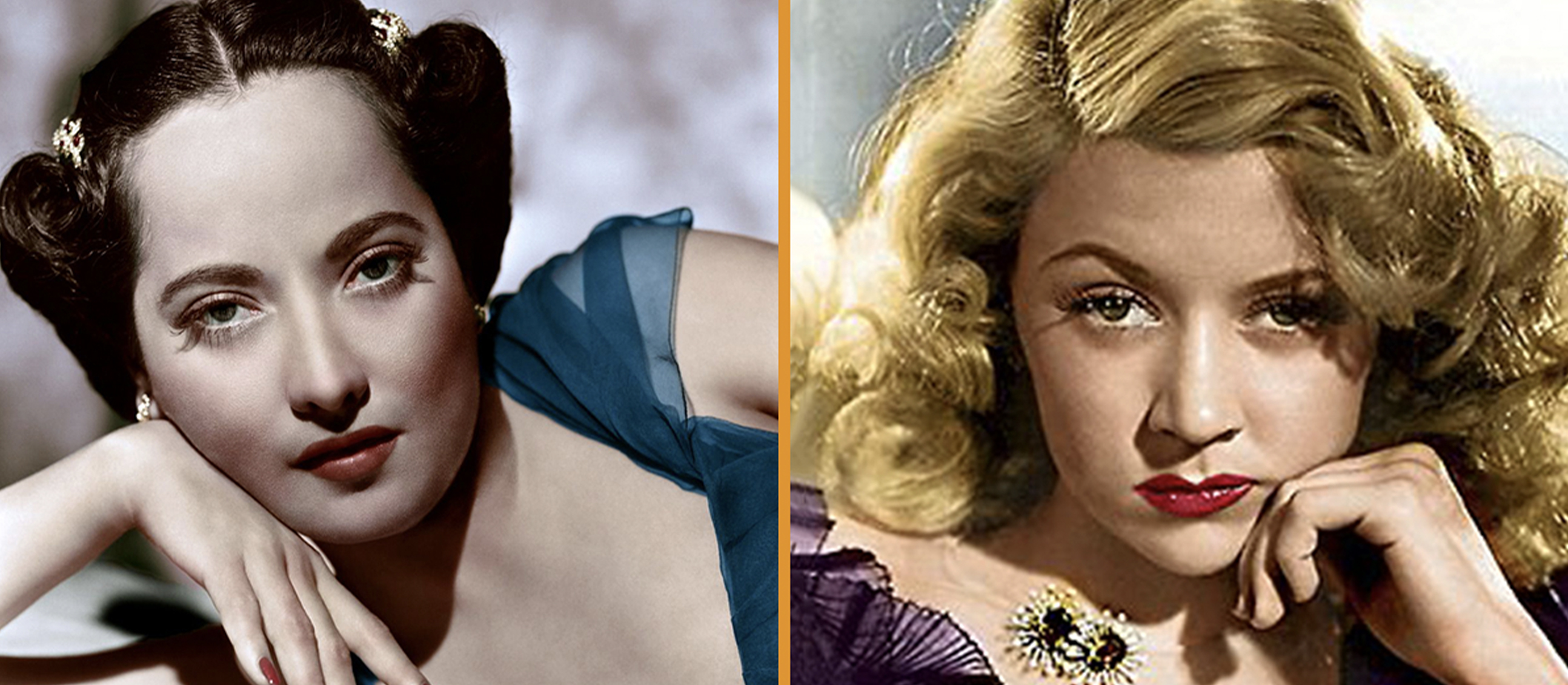
1. She Had an Adorable Nickname
Harlow was born Harlean Harlow Carpenter on March 3, 1911. Her nickname was “The Baby,” a name that she kept even in her silver screen days. People actually called her “The Baby” so often that she didn’t know her real name was “Harlean” until she was five years old.
2. She Was the Original Blonde Bombshell—With a Price
Jean Harlow was famous for her so-called “platinum blonde” hair—in fact, it was her stardom that helped first coin the shiny term. When he was promoting Harlow in one of his films, director Howard Hughes publicized her hair color as new-fangled “platinum,” quickly turning Harlow into the original Blonde Bombshell. However, her gold locks came with a dark side.
3. She Went to Extreme Lengths to Stay Beautiful
As a Hollywood starlet, Harlow swore up and down that her white-blonde hair was her natural color—but nothing could be further from the truth. She actually reportedly kept up the façade with weekly bleachings of ammonia, Clorox, and Lux soap flakes. The process did horrific damage to her naturally ash-blonde locks.
4. She Had a Very Foolish Marriage
Few people know that Jean Harlow was married before she ever became a star. When she was still a freshman at her prep school, fell head over heels in love with Chuck McGrew, a handsome 19-year-old from a wealthy family. The two lovebirds simply couldn’t wait, and married in 1927 after a scant year of dating. Sadly, they were doomed to a heartbreaking end.
5. She Hid a Little-Known Dark Side
Harlow’s marriage to McGrew was full of luxe living, midnight galas, and dry martinis. After McGrew got his inheritance, the couple moved to Beverly Hills and posted up in a mansion. While there, both Harlow and McGrew became notorious lushes, drinking their days away and growing increasingly unhappy with each other.
6. She Was a Teenage Divorcee
Despite all her efforts to keep her relationship together, McGrew and Harlow divorced in 1929. Still in her teenage years, Harlow now had one failed marriage under her belt. But her most devastating loves were still ahead of her.
7. She Endured a Huge Insult
In 1934, Harlow reportedly went head-to-head with the cutting British socialite Margot Asquith at a dinner party—and she received a brutal comeback. Apparently, the naïve Harlow kept pronouncing Asquith’s name as “Mar-GOT” rather than “Mar-GO.” Unable to bear it any more, Asquith snapped back, “No, no; the 't' is silent, as in 'Harlow'.” That’s right, she called poor unsuspecting Jean a “Harlot.”
8. She's the Inspiration Behind Catwoman
Jean Harlow partly inspired the iconic Batman character Catwoman. Creator Bob Kane once said that when he was an impressionable boy, Harlow “seemed to personify feminine pulchritude at its most sensuous." The other inspiration for the leather-clad anti-heroine was actually Harlow’s fellow screen siren Hedy Lamarr (but more on her later).

History's most fascinating stories and darkest secrets, delivered to your inbox daily.
9. Her Second Marriage Was Her Happiest—And Most Tragic
After their deep friendship developed into something much more, MGM executive Paul Bern and Jean Harlow married on July 2, 1932. Bern was one of the only people who truly believed in Harlow as a serious actress and selflessly wanted her to succeed. It was a loving marriage—but that didn't save them from an infamous, violent end.
10. Her Home Became a Gruesome Crime Scene
Just two months after the wedding, authorities found Bern lifeless in the couple’s home from a gunshot wound. When authorities first took in the scene, many speculated that Harlow had offed her new husband. The truth was actually much darker. In the short confession note that lay beside beside Bern, he wrote his devastating final words.
11. Her Husband's Last Words Are Infamous
Bern's words were incredibly mysterious, and have puzzled old Hollywood sleuths to this very day. "Dearest Dear,” the note read, “Unfortuately [sic] this is the only way to make good the frightful wrong I have done you and to wipe out my abject humiliation, I Love [sic] you. Paul You understand that last night was only a comedy.” Most interpretations of his words are scandalous.
12. Her Husband's Last Note May Have a Secret Meaning
People have speculated for years about what Bern meant by “frightful wrong” as well as the reasons for him taking his own life. After he passed on, rumors abounded that he was impotent or embarrassed about the size of his manhood. Other theories claimed that his family history of mental illness finally overtook him. There is, however, one final, disturbing possibility.
13. Her Husband's Demise Is Stranger Than Fiction
Though the authorities soon cleared Harlow of any involvement in Bern’s tragic end, many still suspect the suicide note was a fake and that someone had slain Bern. Indeed, many Hollywood insiders believe that Bern’s ex-lover Dorothy Millette took his life in a jealous rage, an allegation that one of Bern’s biographers backs up.
Tragically—and maybe tellingly—just days after the incident, Millette jumped off of a ferry and passed on. Nonetheless, Bern’s official cause of death remains a suicide. And Harlow’s heartache was far from over.
14. She Had a Horrific Illness
In 1937, Harlow's health took a terrifying turn. She had been mildly ill for months, but while filming Saratoga, the star began to complain of nausea, bloating, and abdominal pain. It got so bad that she had to lean on her co-star and friend Clark Gable between takes. When they found out the awful truth, it was too late.
15. Her Final Days Were Filled With Tragedy
Harlow took time off work to recover from what doctors now diagnosed as an inflamed gallbladder, but when Clark Gable visited her, he was heartbroken to find her severely bloated with, astonishingly, urine on her breath. Soon after that, medical professionals confirmed the beautiful girl was in the final stages of kidney failure.
16. She Kept Working Even When She Was Dying
Harlow worked for months throughout her illness, tirelessly trying to please her exploitative studio heads while becoming weaker and weaker. She was so determined to curry their favor that she even attended the Oscars ceremony in 1936 while incredibly ill. She was apparently so sick that fellow actress Carole Lombard had to help her reapply her makeup in the powder room.
17. Her End Was a National Tragedy
On June 6, 1937, Harlow was taken to the hospital. That night, she slipped into a coma. By the next morning, she was dead. She was only 26 years old, and mourned by all of Hollywood. As one MGM writer later wrote of Harlow’s utterly senseless end: “The day Baby died...there wasn't one sound in the commissary for three hours.”
Merle Oberon: The Dark Angel
Heartbreak. Struggle. Love affairs. And a dark secret that she tried to hide until the day she died. In her time on Earth, starlet Merle Oberon lived a thousand lives. Her devastating beauty propelled her to stardom, but the scandalous circumstances of her birth haunted her throughout her life. It was only after she passed on that her truth was finally exposed.
1. Her Birth Is Shrouded in Mystery
Merle Oberon's affairs and relationships might have set Hollywood a titter during her adult life, but the starlet was quite literally born into scandal as well. While Oberon's birth certificate lists Arthur Terrence O'Brien Thompson and Charlotte Selby as her parents, in reality, the truth was so much stranger and darker.
2. Her Ancestry Was Scandalous
Merle Oberon was born Estelle Merle O’Brien Thompson in 1911 in Bombay, British India—what we know today as Mumbai, India. Oberon's father, Arthur Thompson, was a British mechanical engineer who worked for Indian Railways. Oberon's mother, Charlotte Selby, was from Ceylon and was of mixed ancestry, including some Maori roots.
3. Her Birth Certificate Was a Huge Lie
Oberon’s birth certificate hid a twisted secret. Charlotte Selby, the woman listed as her mother, was actually her grandmother. Charlotte’s 12-year-old daughter Constance was Oberon’s real mother, and the starlet's real father is unknown to this day. Oberon was raised to believe that she was just Constance’s sister.
4. She Was an Overnight Success
After appearing in a number of British films, Merle Oberon became Hollywood royalty nearly overnight thanks to a contract with legendary producer Samuel Goldwyn. She was just 24 when she appeared in the hit film The Dark Angel. Not only did Dark Angel launch Oberon's career, it also sky-rocketed her into cinema history.
5. She Suffered Immense Heartache As a Child
Young Merle was just three years old when the man she thought was her father, Arthur Thompson, met his end during WWI. He perished on the Western Front at the Battle of the Somme—but he didn’t die in combat. Instead, pneumonia took his life in 1914.
6. Her Childhood Was Never Stable
Thompson’s tragic end left Charlotte, Constance, and Merle alone and impoverished in Bombay—until 1917, when it finally looked like their lives were turning around. They moved to Calcutta where Oberon received a scholarship to attend one of the finest private schools in the city. It should’ve been a step toward a better life, but it was the beginning of a nightmare.
7. Kids Were Incredibly Cruel to Her
Oberon was relentlessly bullied at La Martiniere Calcutta School for Girls. They targeted her home life—she had no father anymore, and her single mother was poor and a woman of color. Kids always seem to know what will cut the deepest.
8. She Had a Regal Nickname
As a girl and into her teen years, Oberon went by the nickname “Queenie.” She got it at birth, since her arrival on this planet coincided with Queen Mary’s and King George V’s 1911 visit to India.
9. Her First Love Betrayed Her
When Oberon was just 18 years old, she met a former actor named Colonel Ben Finney at a local restaurant and began dating him—but he would soon deal her a savage betrayal. When Finney went to visit Oberon’s home and meet her mother for the first time, he broke up with her. The reason? Oberon’s mother was a woman of color.
10. She Risked It All for Fame
Despite this heinous rejection, Oberon stayed in contact with Finney. Turns out that this was definitely a good move for the aspiring actress. Finney knew the Irish director Rex Ingram, who was working out of a French film studio at the time. Finney suggested that Oberon go to France to meet the director and jumpstart her film career. It was a gamble, but it paid off in a big way.
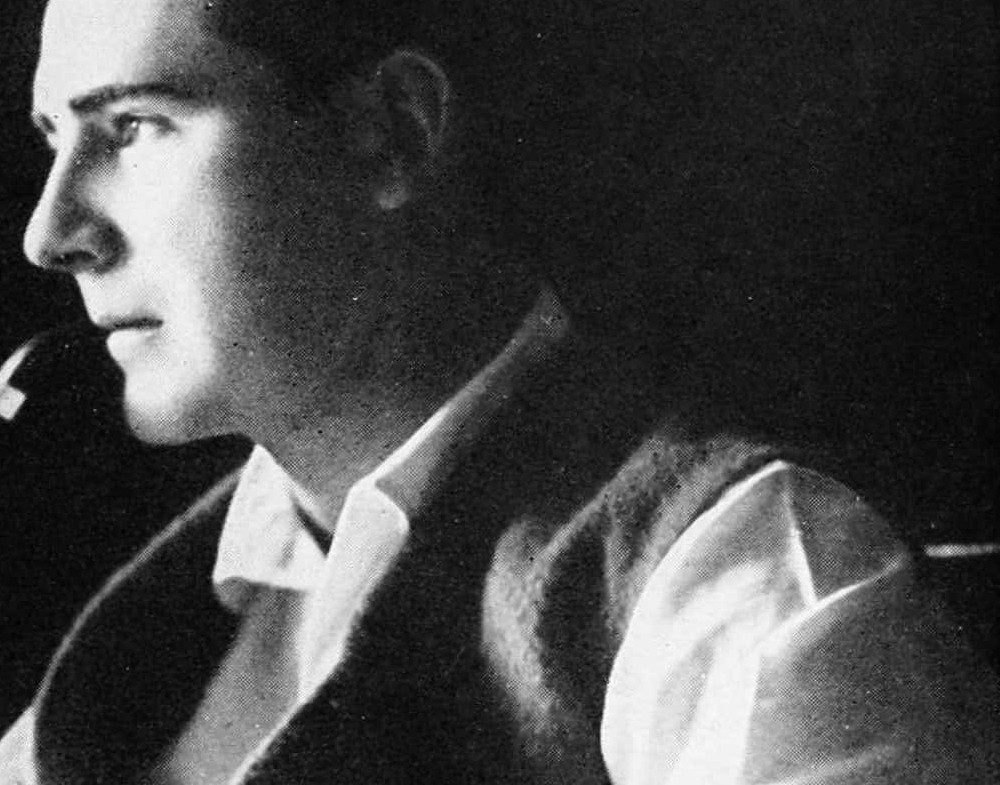 undefined11. Her First Roles in Hollywood Were Disappointments
undefined11. Her First Roles in Hollywood Were Disappointments
Oberon and her mother packed their bags and headed to France. They expected to immediately meet Ingram, only for him to avoid them. Thankfully, he came around, hiring Oberon as an extra in a party scene for the film The Three Passions. However, it was hardly the overnight success of a young actress' dreams. Between 1928 and 1932, all Oberon's parts in films were uncredited.
12. She Lied About Her Success
Later in life, Oberon looked back on this time and remarked that she only began acting because she couldn’t “dance or sing or write or paint." In her own opinion, Oberon only had one thing to rely on: her extraordinarily beautiful face. Considering that she had moved to France specifically to meet a producer, this might have been an embellishment on her part.
13. She Starred in the Biggest Films of the Day
When Oberon met director and producer Alexander Korda, he gave her the world. Not only did the pair fall in love, but he cast her as Anne Boleyn in his 1932 film The Private Life of Henry VIII. Oberon co-starred with Hollywood heavyweights like Charles Laughton in the role of Henry VIII and Elsa Lanchester—the Bride of Frankenstein herself—as Anne of Cleves.
14. She Mixed Business With Pleasure
Oberon maintained a working and (on-and-off) romantic relationship with Hollywood big wig Alexander Korda for years. While she had a contract with Korda, her success made her an in-demand property. In a strategic move, Korda sold some of the “shares” of her name to Samuel Goldwyn, the legendary Hollywood studio executive.
15. She Got Nominated for an Oscar
It was Goldwyn who put Merle Oberon in the film The Dark Angel in 1935, about two male friends for vie for the heart of one woman. For this film, Oberon would get her sole Oscar nomination in the revered Best Actress category.
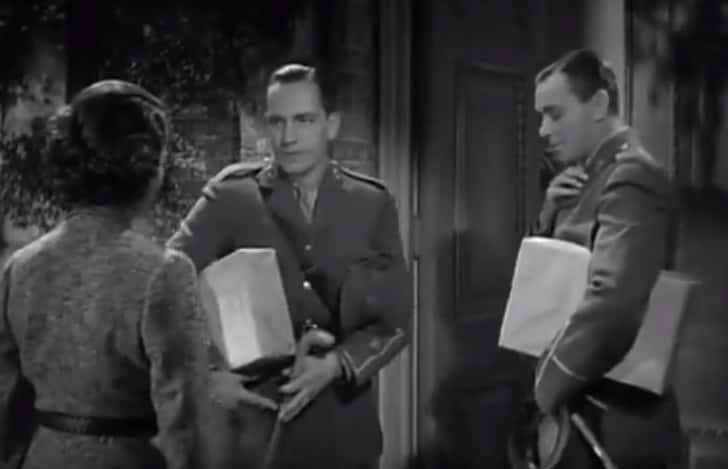 The Dark Angel, United Artists
The Dark Angel, United Artists
16. She Was Hopelessly in Love With an Awful Man
While in Hollywood, Oberon fell desperately in love with actor David Niven, with the two even becoming engaged. Overjoyed, Oberon announced that the pair were going to wed, but sadly, Niven would end up leaving her with a broken heart. After numerous affairs, Niven refused to change his ways and walk down the aisle. The couple parted.
17. She Played Some of the Most Iconic Women in History
Aside from her role as Anne Boleyn, Oberon portrayed a number of famous historical figures on film, including Empress Josephine, the woman who broke Napoleon's heart, and the writer and cross-dressing playwright George Sand.
18. She Went Through Everyone's Worst Nightmare
Oberon was supposed to work with both Korda and Charles Laughton again in 1937’s I, Claudius, where she’d appear as Claudius’s wife Messalina, but the project was abruptly abandoned for an incredibly dark reason. After a terrible car accident, Oberon was far too injured, and some would say disfigured, to film anything.
19. She Bonded With Her Husband Through Trauma
While I, Claudius may have been canceled, Oberon and film exec Alexander Korda weren't. The couple finally cemented their on-and-off relationship by tying the knot in 1939.
20. She Tried Desperately to Fix Her Deformation
Who could Oberon turn to in this trying time? Her beloved husband, of course. Korda paid for his wife to go to New York City and receive first-rate cosmetic procedures that would help fix her damaged skin. They helped—and stage makeup was able to do the rest—but sadly, nothing could ever heal Oberon's scarred face completely.
21. She Repaid Her Husband's Loyalty With Betrayal
Oberon's own experiences with disfigurement were, in a strange way, part of what led her to find love. In 1941, while she was still married to Korda, Oberon struck up a relationship with young Richard Hillary, a RAF fighter pilot. During his valiant actions at the Battle of Britain, Hillary sustained terrible burns that disfigured his face and deformed his hands into claws. Tragically, he passed on at just 23 years old.
22. She Was Very Unfaithful
Oberon's affair with Hillary wasn’t her only infidelity. She also had an on-again off-again relationship with none other than John Wayne, classic Western star, between 1938 and 1947.
23. She Had a Rags-to-Riches Story
Before Grace Kelly ever became a princess, Oberon fulfilled an unbelievable rags-to-riches dream. In 1942, her husband Alexander Korda got himself knighted. This honor suddenly transformed Merle Oberon, Hollywood star, into “Lady Korda,” esteemed aristocrat—but not even a fancy title could tie a lady like Merle down.
24. Her Face Revolutionized Cinema
Who’s an actor’s best friend—other than their makeup artist? Whoever’s in charge of her lighting, of course. In 1944, cinematographer Lucien Ballard put together a small light that could be mounted on his camera specifically for Oberon. It provided an effect that washed away any blemishes or scars. Now known as a catch light, it was originally nicknamed the “Obie light” after, of course, Oberon.
25. Her Second Marriage Was as Doomed as Her First
Lucien Ballard sounds like a pretty devoted cinematographer, huh? Well, there may have been another reason for his intense involvement in inventing the famed Obie light. In 1945, Oberon divorced her longtime partner Korda and married her beloved cinematographer Lucien Ballard. Tragically, they were doomed to a sad end. The use of the light outlasted their relationship—they divorced in 1949.
26. She Mourned Her Mother in a Heartbreaking Way
In 1937, Oberon lost her “mother,” Charlotte Selby, who was actually her grandmother. By this time, Oberon was in on the dark secret of her parentage, but that doesn’t mean that she didn’t mourn the loss. In an utterly heartbreaking gesture, Oberon had portraits painted of Charlotte. She hung them in each of her homes.
27. She Lied Until She Couldn't Anymore
Due to how young her mother was when she was born, and her Indian heritage, Merle Oberon spent most of her life obscuring the circumstances of her birth. It was only later in her life that all her lies began to unravel.
28. She Tried to Hide the Truth From the Press
The story that Oberon generally told about her birth was that she was born and raised in Tasmania, Australia. If pressed for details, she would demur by claiming that her birth records had been destroyed. As the years wore on, more and more people began to question her cover story—including the press, and even some members of her own family.
29. She Started to Break From the Pressure
Oberon visited Australia in 1965, and despite all her Hollywood training, she didn’t exactly react in the most inconspicuous manner. When the press asked questions about her early life in Australia, Oberon would become nervous. Whether it was feigned or not, she became sick before her planned visit to Hobart, Tasmania, and flew back to Mexico immediately.
30. Her Lying Caused an International Incident
In 1978, Oberon actually did visit Hobart, and a ceremony was planned to honor their native daughter—and it couldn’t have been more of a disaster. First, the mayor found out that she wasn’t actually Australian, but it was too late to cancel the gala. He was ready to cover for her—but then Oberon’s bizarre behavior caused the whole thing to unravel.
31. She Made Excuses to Get out of Telling the Truth
When she got to the party, Oberon began to deny that she’d been born in Tasmania at all. Instead, she made up a convoluted story about spending some years on the island after her father fell ill. Once again, perhaps realizing that she was in a tailspin of deception, Oberon panicked, said that she was sick, and left. The press hounded her, but she refused to answer any more questions.
32. She Destroyed Her Beauty
While Oberon sustained serious injuries from the 1937 car crash, she was able to return to the screen the next year—but soon enough, her worst nightmare would come true. In 1940, she found herself scarred from a combined “cosmetic poisoning” and an allergic reaction to a prescription drug. For a woman who told the press that her face launched her career, it must have been devastating.
33. Her Family Kept Her Dark Secret
Oberon's mixed Indian background had long been a badly-kept secret in Hollywood, but in the final years of Oberon’s life, one of her family members worked to expose the truth about her parentage. After Oberon's birth, her biological mother, Constance, went on to marry and have four legitimate children. All were told that Oberon was their aunt, despite the fact that she was actually their half-sister. For one of the kids, that answer wasn't good enough.
34. She Had Skeletons in Her Closet
It was one of these half-siblings, Harry Selby, who found Oberon's real birth certificate in Bombay. It contained a jaw-dropping revelation: Oberon wasn't his aunt. She was his half-sister. After this discovery, Oberon dealt her own brother a heartbreaking betrayal. She refused to see him. He must have understood her wishes, because he didn’t discuss the truth of her parentage until 2002, when he participated in a documentary about Oberon.
Barbara La Marr: The Screen Siren
Gorgeous, talented, and wife to an indeterminate number of husbands, Barbara La Marr took "femme fatale" and turned it into a way of life. Combine the allure of Hollywood glamor, the boldness of an independent woman professional in the 1920s, and the drama of a sordid personal life rife with fiction and romance, and you’ve got Barbara La Marr.
1. She Was a Party Girl—And It Cost Her
As La Marr's film career rose, she threw herself into Hollywood night life. The already-wild actress adjusted to this change of pace with enthusiasm. She once claimed never to sleep more than two hours a night because she had “better things to do.” These bad habits, however, came back to haunt her in some of the worst ways possible.
2. She Once Collapsed Into a Coma
La Marr’s party life and sleep deprivation finally caught up to her. While filming The Girl from Montmartre, disaster struck. One day on set, La Marr suddenly collapsed and fell into a coma. Even worse, no one actually stopped the production; they just used a body double in long shots to complete the film. Hollywood really knows how to make a girl feel special.
9. The Studio Tried to Control Her
La Marr’s penchant for having a good time got out of hand fast. By the time she was filming Thy Name Is Woman, the production supervisor had to make regular visits to the set, just to make sure that La Marr’s notoriously heavy drinking wasn’t interfering with filming. In other words, a fully grown woman had a babysitter.
3. She Was Unlucky in Love
La Marr was a dazzling beauty who could entrance a man in mere minutes. Unfortunately for her, La Marr tended to attract...horrible options. After many failed attempts at wedlock (more on that later), La Marr was officially tired of romance. She was quoted as saying, “I am sick of men. The admiration of men. The so-called love of men.” Honestly, me too, sis.
4. She Got Kidnapped
La Marr and her half-sister, Violet, were very close. The duo would constantly pal around and go out on the town for adventures. But one fateful day, things took a disturbing turn. When La Marr was 16 years old, she and Violet took a three-day drive with a man named C.C. Boxley. They got all the way to Santa Barbara when La Marr realized the terrible truth.
5. She Became a Media Sensation
Quite simply, the crook Boxley had no intention of taking them back home ever again. Luckily, the authorities issued a warrant for Boxley's arrest, rescuing the young girls from captivity. Once they were back home safe, the press gobbled up the story of the two young women kidnapped by the sinister C. C. Boxley. So La Marr resorted to outright lies to keep their attention.
6. She Was a Huge Liar
A strategic showgirl from the start, La Marr quickly crafted fantastical details about herself to extend the media spotlight. But these weren't just any old whoppers. La Marr's lies were incredibly disturbing. The no-so-innocent 16-year-old not only claimed she was adopted, she even pretended that she was (somehow) a widow. Then, the case took another twist.
7. She Double-Crossed Her Own Sister
Boxley wasn’t the only one wanted by authorities—the courts also issued a warrant for the arrest of a shocking suspect: La Marr’s own sister Violet! But that's not even the most scandalous part. La Marr even testified against her sister. Though the case was eventually dropped, La Marr’s name continued to appear in sensational headlines over the next several years.
10. Her First Husband Was Hiding a Secret
La Marr’s first husband was a stone-cold liar. After marrying her as Max Lawrence, it turned out he was actually an ex-soldier named Lawrence Converse. Unfortunately for La Marr, that was just the beginning of his web of deception. It also turned out that Lawrence Converse already had a wife and children. Then things really started to heat up.
30. Her Honeymoon Was a Tragedy
The wedding bells didn't ring long for La Marr and her new husband "Max Lawrence." The very day after their nuptials, the authorities detained Lawrence on charges of bigamy. Fair. Except his bad luck wasn't even over: Just three days after that, Lawrence succumbed to a fatal blood clot. It was a horrifying time, but La Marr's next lover didn't get any better.
11. Her Second Marriage Ended in Disaster
La Marr likely thought she’d have better luck in the romance department when she married dancer Philip Ainsworth. I mean, what could go wrong? A lot, apparently. The good news is he didn’t immediately kick the bucket. The bad news is he was still apprehended, not for bigamy but for passing bad checks. And La Marr's love life wasn't even done yet.
12. Her Third Marriage Was a Mess
La Marr’s third marriage, also to a dancer, a man named Ben Deely, ended for scandalous reasons. He was twice her age, an alcoholic, and a gambling addict. You know you need to rethink your type when this guy sets the standard for a good husband. Of course, the marriage between La Marr and Deely inevitably ended in divorce. So, was La Marr's next husband any better? That answer is no.
13. Her Fourth Marriage Lasted—But at What Cost?
Before her divorce from Deely was even finalized, La Marr had already found her next husband. She and Jack Daugherty were married until the end of La Marr’s days…uh, technically. They did separate a year after marriage and pretty much hated each other by the end of it all, but the divorce was never finalized.
14. She Had a Secret Love Child
La Marr had only one child. Her son, Marvin Carville, was born on July 29, 1922, but his arrival wasn't even public knowledge. In a scandalous twist, especially for the 1920s, little Marvin's father’s identity was never publicly revealed. But that's not even the juiciest part. His identity as La Marr’s son only came to light after she passed on.
15. Her Insecurities Destroyed Her
Sleep deprivation, over-drinking, and exhaustion played a big role in La Marr's steady health decline. But one disastrous habit absolutely ruined her. In the last two years of her life, La Marr was plagued with insecurities about her already-thin frame. She went on several crash diets and was even rumored to have swallowed a tapeworm. All this was leading to a tragic end.
16. Her Last Days Were Heartbreaking
After years of unhealthy living, La Marr contracted a nasty case of tuberculosis. During her final battle with the illness, La Marr lost alarming amounts of weight. When the terrible disease finally ended her life, the doctors discovered that La Marr weighed less than 80 pounds. Though La Marr was gone, she was far from forgotten...
17. Her Funeral Was One for the Ages
La Marr’s funeral mimicked the way she lived with its grandeur and drama. In a crowd of 3,000 fans, no less than five women reportedly fainted. After La Marr’s body was removed from the church, people swarmed the chapel trying to get their hands on the floral arrangements. The entire thing was a mess, and La Marr probably wouldn't have had it any other way.
Hedy Lamarr: The Clever Cleopatra
Hedy Lamarr was the perfect combination of beauty and brains: By day, she was a glamorous movie star in some of the scandalous pictures of the day. By night, she was the mastermind of a scientific revolution. But for all her embarrassment of riches when it came to her looks and personality, this femme fatale still lived an utterly tragic and scandal-ridden life.
1. The Pope Banned Her First Movie
Lamarr became a sensation in 1933 with her turn in Ecstasy. The film caused an utter scandal: Ecstasy was the very first non-adult material to depict not just an intimate bedroom scene, but a female climax. But that's not what made it infamous. The scandal intensified when reporters discovered that Lamarr was only 17 when the movie was filmed.
Ecstasy was banned in the United States, and even the Pope denounced it. But that wasn't the last scandal surrounding the film.
2. Her First Husband Controlled Her in Disturbing Ways
In 1933, Lamarr married the wealthy Friedrich Mandl when she was only 19. Soon after the wedding, it took an utterly disturbing turn. Mandl was an incredibly jealous man, and after they married he traveled around Europe looking for copies of Ecstasy and destroying them. He refused to let anyone see his young wife like that. Is it any surprise the marriage ended in disaster?
 Getty Images
Getty Images
3. She Had to Escape Her First Marriage
Eventually, Mandl’s jealous, controlling behavior became too much for young Lamarr. When enough was enough, she took desperate measures. Lamarr claims that she disguised herself as a maid and escaped to Paris, where she finally got a divorce from her awful first husband. However, there's an even better version of the story...
4. She Fled Her Husband in Spectacular Fashion
Other sources insist that Lamarr did something that's maybe even more impressive to get away from Mandl. The story goes that Lamarr wore all of her expensive jewels to a dinner event, and then ran off into the night.
5. She Was Breathtakingly Beautiful
Lamarr’s first American film was 1938’s Algiers, where the young actress starred opposite Charles Boyer. American audiences thought of Lamarr as a completely fresh face—and what a face it was. According to some reports, when Lamarr first appeared onscreen, audiences actually gasped at her jaw-dropping beauty. Too bad that beauty got her into such trouble.
6. She Revealed Secrets About Her Lovers
Lamarr dated notorious producer, director, and eccentric Howard Hughes, but there was a lot of trouble in paradise. Hughes did a bunch of strange things, including collecting his own urine. Maybe unsurprisingly, Lamarr called him "the worst lover she ever had." But everyone loves a man who collects his own urine!
7. She Turned Into a Recluse
Late in life, Lamarr's film career sadly dried up and she became reclusive. The reason why was absolutely devastating. Lamarr was ashamed: She was once the world's most gorgeous woman, but after some botched plastic surgeries, she became disfigured and disliked being seen. Now, about those disastrous plastic surgeries...
8. She Was Always Inventing
Even when Lamarr was trying to correct her botched beauty surgeries, she needed to innovate. Her plastic surgeons described how Lamarr would come to them with ingenious ideas for lifting, cutting, and pulling skin so that she would appear more youthful. Apparently, surgeons still use some of her ideas to this day.
9. She Helped Develop a Modern Technology
Lamarr isn't just famous for her beauty. She has an even more impressive claim to fame. She was always interested in science and technology, and ended up helping develop a system for the Navy that prevented signal jamming. The even bigger result? This technology ended up producing Wi-Fi as we know it today. Now that's a legacy.
Gloria Swanson: Queen of the Movies
As the preferred starlet of famed director Cecil B. DeMille, Gloria Swanson was the undeniable Queen of the Silent Era. Yet for all of the glamorous star’s striking looks and acting chops, her life was full of more drama and tragedy than the films she starred in. Get ready for your close-up with this bewitching empress of early Hollywood.
1. She Was a Spoiled Child
Gloria Swanson (not to be confused with Gloria Grahame, who we'll get to) entered the world on March 27, 1899, in Chicago, Illinois. She was the only child of her two parents Joseph Theodore Swanson and Adelaide Swanson Only child and an Aries? That’s a troublesome combo in the making. Don’t believe in that kind of thing? Well, just you wait and see about that....
2. One Movie Made Her Legacy
After disappearing from the screen for most of the 30s and 40s, Swanson returned to Hollywood in an unforgettable way. She starred in iconic film Sunset Boulevard as Norma Desmond, a past-her-prime silent film star determined to make a comeback. It is easily ranked among the best films ever made—on countless critic’s lists top lists, the Library of Congress deemed it culturally significant and the National Film Registry preserved it for future generations.
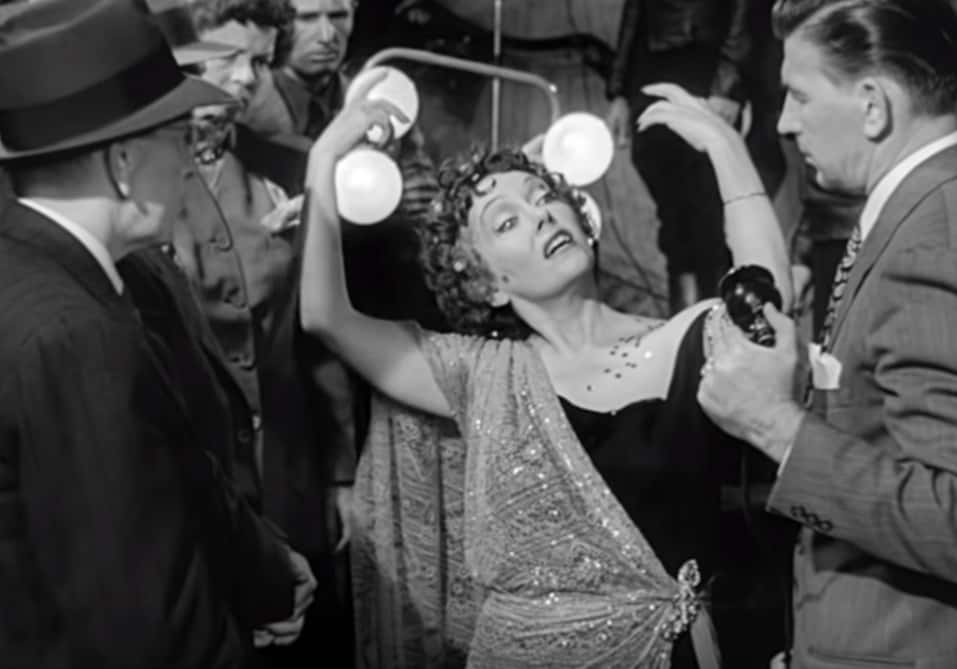 Sunset Blvd. (1950), Paramount Pictures
Sunset Blvd. (1950), Paramount Pictures
3. Her Film Lines Have Gone Down in History
When she played the unforgettable Norma Desmond, Gloria Swanson had the chance to drop some of the most iconic movie quotes in cinema history. Among them, “I am big! It’s the pictures that got small,” “We didn’t need dialogue, we had faces!” and perhaps the most famous line of all, “Alright, Mr. DeMille, I’m ready for my closeup.”
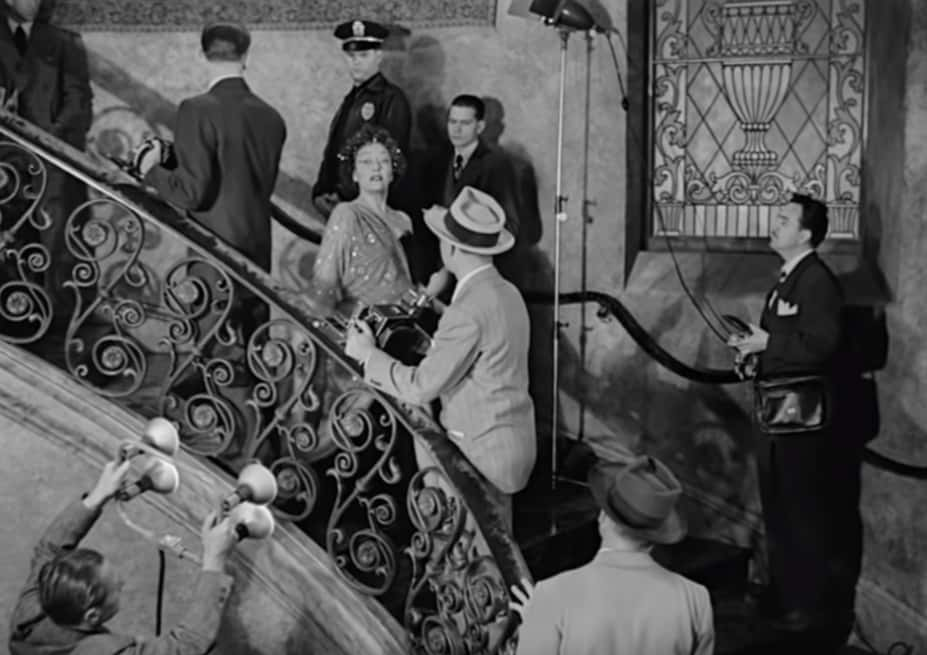 Sunset Blvd. (1950), Paramount Pictures
Sunset Blvd. (1950), Paramount Pictures
4. She Gave Her Husband an Ultimatum—And It Backfired
After a string of failed marriages ruined by extramarital affairs, Swanson was determined to keep one of her relationships on the straight and narrow—but sadly, this time she was faced with a problem even she couldn’t solve. Swanson’s fifth husband George William Daley was an alcoholic, and after she and her daughter found him passed out inebriated, they left him some pamphlets for Alcoholics Anonymous.
His reaction was utterly devastating: He walked out on them the next day after a year together.
5. She Put Herself in Danger on Set
One scene in DeMille’s 1919 film Male and Female required Swanson, whose character is shipwrecked with a small group on a deserted island, to act alongside real lions. At first, DeMille had wanted to cut the scene entirely, knowing how dangerous it could be, but Swanson talked him into keeping it and even demanded that she do the scene herself.
However, before filming started, DeMille took some unusual precautions.
6. Her Director Asked Her Extremely Inappropriate Questions
DeMille enlisted two trainers to keep a close watch on the lions on set, and Swanson’s father was close by in case anything went wrong. But first, DeMille had to ask Swanson an important—and inappropriate—question. He asked her if she was on her period, as the big cats would be able to smell it. She said no, and they were allowed to begin filming.
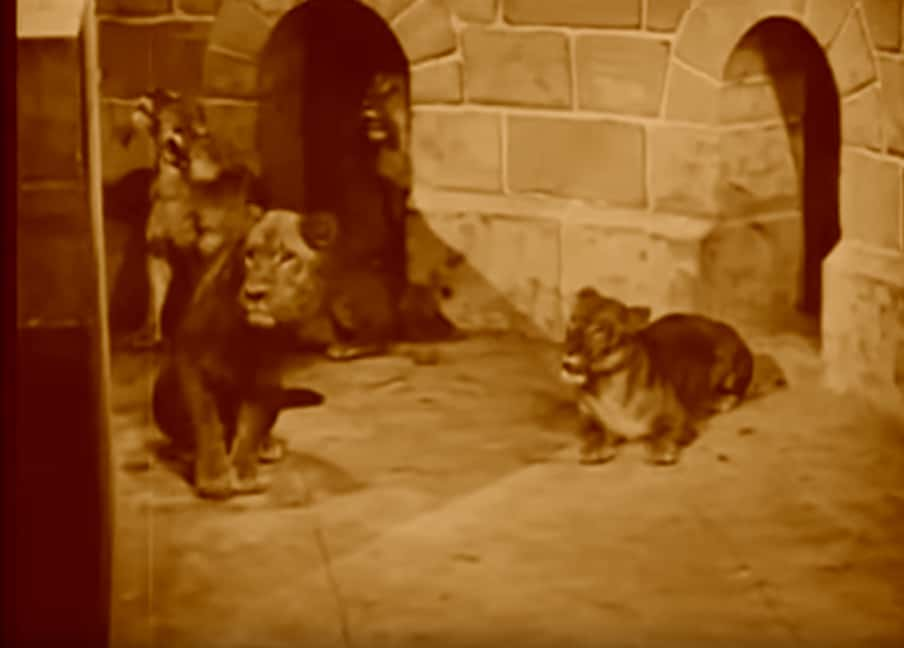 Male and Female (1919), Paramount Pictures
Male and Female (1919), Paramount Pictures
7. She Hid a Dark Secret
During the early part of her career, Swanson was hiding a scandalous secret. When she was just 17, Swanson married fellow actor Wallace Beery—but according to Swanson, her own new husband violated her. To make matters even worse, he even hurt her on their wedding night. But that wasn't even the worst part.
8. Her First Marriage Was Doomed
Swanson became pregnant shortly after marrying her first husband Wallace Beery. It should’ve been a happy time for the young couple, but there was one problem. Beery didn’t want to have children with his wife. Swanson later revealed that Beery went to chilling lengths to avoid having a family. She said that he made her drink a mystery liquid that ended up terminating the pregnancy. Thankfully, the couple would separate and divorce by 1918.
9. Her Second Marriage Only Seemed Perfect
Swanson’s next marriage was to man-about-town Herbert K. Somborn. Not only was he president of a film company, he was also the owner of Hollywood hotspot and landmark the Brown Derby restaurant. For Swanson, who was still an up-and-coming star on the verge of fame at that point, it was a match made in heaven—but it wouldn’t be for long.
10. Her Divorce Made Hollywood Headlines
The six-year marriage between Swanson and Somborn produced a daughter, Gloria Swanson Somborn—but it also produced an utterly scandalous divorce case that rocked Hollywood to its core.
11. Her Ex Accused Her of Scandalous Acts
During their divorce proceedings, Somborn accused Swanson of adultery—but that wasn’t the worst part. Somborn claimed that not only had Swanson cheated on him, she had done so with 13 different men, many of them famous. They included her frequent collaborator Cecil B. DeMille, the "Latin Lover" Rudolph Valentino, and director and producer Marshall Neilan.
Rudolph Valentino
12. The Studios Forced Her to Sign a Sinister Contract
The salacious details of Swanson’s divorce caused an absolute media frenzy, and Paramount Studios, who held her contract at the time, had to act. They added a morality clause to the star's contract. These types of clauses basically stated that the person had to behave in a way that followed general moral standards, or else. If Swanson misbehaved, she could be let go from Paramount.
In the 20s, especially following the Fatty Arbuckle scandal, clauses like this became more and more common.
13. She Fell in Love With a Nobleman
After her divorce, Swanson threw herself into her work. It was probably a pretty good way to keep out of trouble—at least at first. While filming Madame Sans-Gêne in France, Swanson hired a translator to help her cope in the new country, and it didn’t take long for the two to fall in love. But this translator wasn’t just any regular guy—he was Henri, Marquis de la Falaise, a French nobleman.
14. She Became a Marquise
The impulsive pair of Henri, Marquis de la Falaise, and Swanson wed while they were still in France, which meant that when Swanson returned stateside, she came back as a noblewoman—the Marquise. This step up the social hierarchy only served to add another layer of glamor to an already glamorous life. But that wasn’t the only thing she brought back to the US…
15. She Had to Make a Horrific Choice
When she came back to the United States, Swanson found out that she was pregnant, but there was one problem—her due date was just seven months after her wedding, meaning that the baby had been conceived out of wedlock, and Swanson had a morality clause on her contract. So she made a heartbreaking decision. Swanson terminated the pregnancy.
16. She Had an Affair With a Kennedy
It was Old Hollywood, and nobody escaped without some sort of scandal—but Swanson’s secret affairs went beyond the usual cinema scandals. For three years in the 1920s, Swanson carried on a poorly-concealed affair with the politician and businessman Joseph P. Kennedy, father to future president John F. Kennedy. Both Swanson and Kennedy were married to other people at the time.
17. She Had a Double Breakup
After her lengthy extra-marital affair, Swanson finally divorced Henri, Marquis de la Falaise—although it didn’t mean happily ever after for her and her paramour. She and Kennedy broke up as well. After a lot of poor financial advice from Kennedy, she was in bad shape—but when it came to romance, not even a double breakup could slow Swanson down.
18. She Was a Bigamist
While Swanson initiated her divorce from the Marquis in 1930, she was so impatient to move on that she neglected to wait for the paperwork to be finalized before marrying athlete the Michael Farmer in August 1931. This meant that their marriage was null, so they had to wed again in November 1931—at which point she was already four months pregnant.
19. Her Fourth Marriage Ended Bitterly
Swanson gave birth to her first child, Michelle Bridget Farmer, in 1932—but it would be far from happily ever after for Swanson’s little family. She and Farmer divorced in 1934, when their daughter was still just a toddler—all because Swanson was hiding a dark secret.
20. She Always Went Back to Bad Habits
Swanson had begun another extramarital affair while still married to Farmer—this time, with British actor Herbert Marshall. This time, she couldn’t keep the affair from the tabloids. After her divorce from Farmer, she kept seeing Marshall.
21. She Only Loved One Man
Swanson’s affair with Marshall went on for three years, until she made a heartbreaking realization. She had been under his spell, but he still hadn’t left his wife for her—and she began to understand that he never would. Years later, Swanson still wasn't quite over their failed romance. As she later put it, "I was never so convincingly and thoroughly loved as I was by Herbert Marshall."
22. Filming Sunset Boulevard Made Her Cry
The infamous last scene of Sunset Boulevard featured Norma Desmond descending her home’s grand staircase to meet a crowd of tabloid photographers—who, in her delusion, she believes to be fans. In order to make sure she didn’t trip, she did the scene barefoot. Her performance was an absolute tour de force, and when it was done, Swanson burst into tears.
It was so clearly an instant masterpiece that director Billy Wilder threw a party for Swanson on the spot.
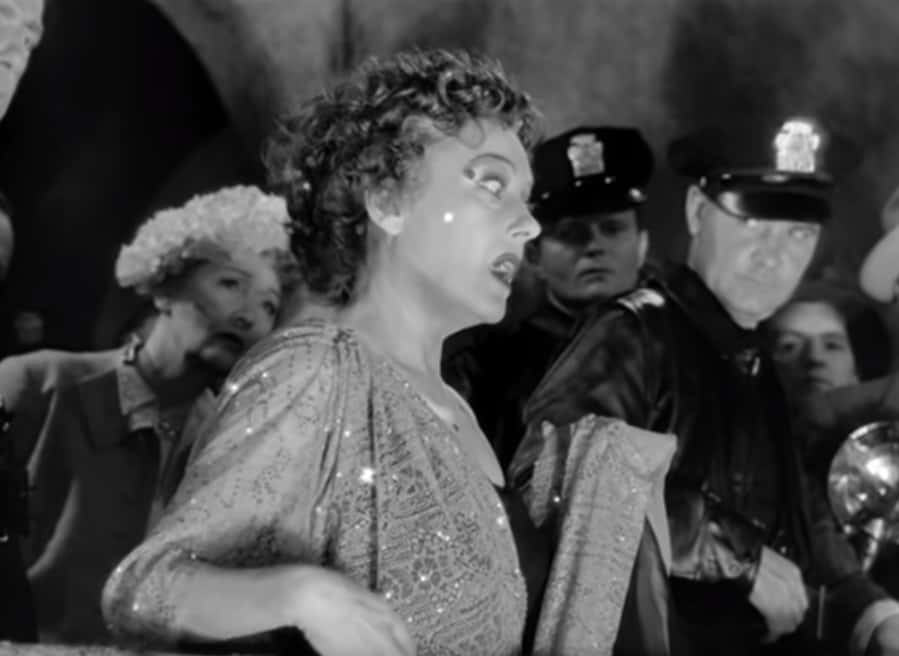 Sunset Blvd. (1950), Paramount Pictures
Sunset Blvd. (1950), Paramount Pictures
23. She Despised Her Later Career
Sadly, the success of Sunset Boulevard had a heartbreaking dark side for Swanson. Many films that followed tried to bank off of the popularity of Sunset Boulevard and tried to cast Swanson. She appeared in one such film, Three For Bedroom “C.” After that, she refused to play a “parody of a parody.” While Swanson had already essentially withdrawn from Hollywood prior to 1950, she basically retired from film after that.
24. She Finally Got Her Happy Ending
When Swanson took a break from Hollywood, she also took a break from back-to-back marriages. Between her fifth and sixth marriages, Swanson was single for 30 years—but she made the final one last. Swanson met author William Dufty in 1965. By 1967 they were serious, but perhaps because of her checkered romantic history, she was cautious.
They waited until 1976 to marry, and stayed together until Swanson's last breath.
25. Her Husband Gave Her a Heartbreaking Tribute
Around the time of her 84th birthday, Swanson took a holiday on the Portuguese Riviera. On April 4, 1973, just after returning home to New York, she passed on from an unspecified heart condition. Dufty showed his devotion with a heartbreaking gesture. While Swanson and Dufty had been world travelers, Dufty returned to his home state after Swanson passed on and never remarried.
Rita Hayworth: The Goddess of Love
Rita Hayworth was one of Hollywood’s biggest, most beautiful stars of the 1940s—they called her the “Goddess of Love”—but in real life, Hayworth suffered in love. Her stardom was manufactured by the Hollywood studio system of the time, and she was the first Hollywood star to marry into a royal family—but it was hardly a fairy tale.
1. She Has a Little-Known Ancestry
Hayworth’s real name was Margarita Carmen Cansino. Born in Brooklyn, New York, in 1918, her mother was American, and her father Eduardo was Spanish, emigrating to the US in 1913 before having a family. As we'll see, unfortunately, Hayworth's Spanish ancestry would cause her a world of pain when she tried to make it in Hollywood.
2. She Started Working From a Heartbreakingly Young Age
Hayworth’s parents were both professional dancers. She started dancing young, and her father made her practice, practically every waking moment, at home. When Hayworth was only eight, she appeared with her father in a black-and-white movie called La Fiesta. She smiles in the performance, but young Hayworth's life was far from picture-perfect.
3. Her Father Was an Absolute Monster
Hayworth left school at just 12 years old when her father reinvented her as his dance partner. He dressed her and made her up to look much older, and they started performing together. But her father did far worse things that that. He also beat her, beginning when she was just 10 years old. This had lasting and devastating consequences.
4. The Studios Forced Her to Change
When she was an aspiring star, Hayworth's father hired Edward Judson to help make her famous. It obviously worked, but it came at a heartbreakingly high price. Under Judson's orders, the young starlet started to dress more provocatively, changed her black hair to red, and even changed her name to Rita Hayworth. But that wasn't all.
5. She Took Drastic Measures for Beauty
Hayworth even changed her hairline—through torturous rounds of electrolysis—to reshape her face. After enduring this, Hayworth landed a seven-year contract with Columbia Pictures.
6. She Endured Years of Assault
Harry Cohn, who ran Columbia Pictures, was the brilliant executive partly responsible for shaping Hayworth's stardom. Behind the scenes, however, Cohn was utterly monstrous. He aggressively pursued Hayworth as a conquest, bugged her dressing room, issued her fines for nonsensical reasons, and even forced her to punch a time clock on set. Yet Hayworth's troubles with men were just beginning.
7. She Loved All the Wrong Men
After all the pain Judson brought her, you'd expect Hayworth would never want to see him again. Instead, she fell in a twisted kind of love. Hayworth eloped with Judson even though he was a whopping 22 years older than her. But that's not the worst part. Judson frequently pressured Hayworth into becoming intimate with studio executives to "advance" her career.
8. She Bravely Left Her Husband
When Hayworth was 23 years old, she starred in the movie, Blood and Sand. The film was successful, crowning Hayworth as a new, young starlet. Gaining a degree of confidence and maturity, Hayworth decided to walk out on Edward Judson. His reaction was utterly disturbing. He threatened to disfigure her face if she left him. She went anyway.
9. Her Most Famous Role Ruined Her Love Life
Hayworth had become a movie star prior to the release of Gilda—but it was in that movie that her reputation as a femme fatale really took off. To this day, Gilda is known for making Hayworth a cultural icon. But it also had a huge downside. Men idolized Hayworth, but never really knew her. As she later famously said, "Every man I knew went to bed with Gilda and woke up with me."
10. Her First Husband Took a Cruel Revenge
After Hayworth left her cruel first husband Edward Judson, he came up with a chilling plan for revenge. He demanded her whole assets before he would grant her wish for a divorce. As Orson Welles said later in Hayworth’s defense, “Rita didn’t just have her father to contend with, she also had that first husband.” Speaking of Welles...
11. Only Orson Welles Knew Her Dark Truth
When Welles caught a glimpse of a famous pin-up picture of Rita in Life magazine, he fell for the ravishing redhead immediately. They married in 1943, but their love affair ended for a tragic reason. Welles realized that Hayworth wasn’t the "Love Goddess" she portrayed in films. Instead, she was an insecure, scarred woman who would never heal from her awful past. And, as it turns out, she kept making the same mistakes.
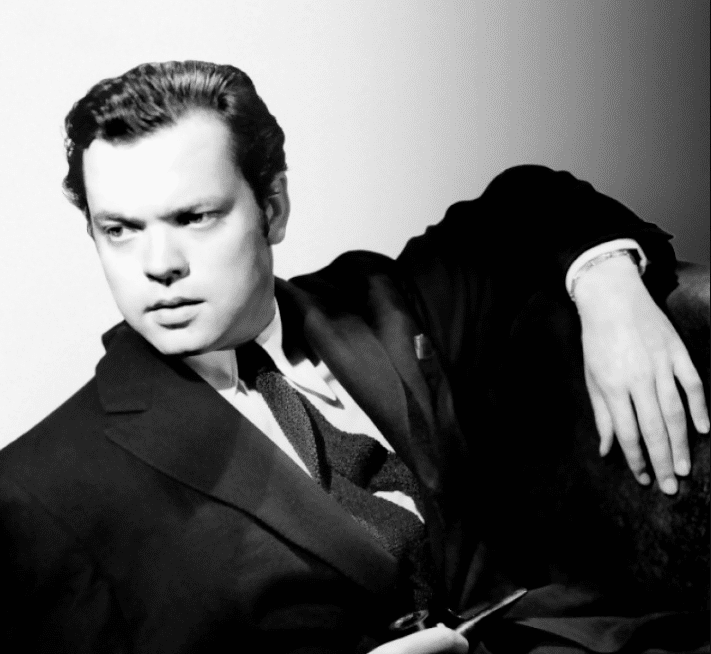 Wikimedia Commons, RKO Radio Pictures
Wikimedia Commons, RKO Radio Pictures
12. She Married a Prince
Hayworth’s third marriage brought her the closest to a fairy tale. Prince Aly Khan was a fabulously rich womanizer, adventurer, and uh, prince, whose family owned a pricey stable of racehorses. Khan had a private movie theatre in his palatial residence on the Riviera, and his favorite film, in 1948, was Gilda...starring Rita Hayworth.
After watching the film numerous times, Khan was hooked. There was just one problem. he was still married to his first wife. Now, you know what they say about a relationship ending how it starts...
13. She Didn't Get a Fairy-Tale Ending
Hayworth and Khan's marriage barely lasted until 1953. Although Khan professed to be deeply in love, his actions were much darker. He was never faithful, and may even have had an affair with Hayworth's rival, actress Joan Fontaine. On top of this, Hayworth's temper tantrums with Khan were epic and earth-shattering.
14. She Had Horrific Maternal Instincts
Hayworth gave birth to two daughters, one with Orson Welles, and the other with Khan. After becoming a mother, Hayworth realized a dark truth. She wasn't cut out for the maternal life, and often left her children alone while she went off gallivanting with lovers. One day after depositing her kids with an inattentive babysitter, a neighbor even saw a horrific sight: Hayworth's children playing in the trash.
15. It Wasn't Her Fault She Was a Bad Mother
After watching in horror as Hayworth's kids entertained themselves in the dumpster, the neighbor called the authorities. Though they didn't charge the actress, the episode devastated her. As Hayworth biographer Barbara Leaming noted, Hayworth wasn’t an intentionally bad mom. It was her own dark childhood that rendered her unable to properly parent her kids.
16. She Tried and Failed Get Orson Welles Back
Hayworth always said that Orson Welles was her greatest love. Right before her 1949 wedding to Prince Aly Khan, Hayworth cried out to Welles, begging him to see her. Welles arrived at her hotel to a startling sight. He found Hayworth’s room lit with candles and his ex-wife in a sensual negligee. She pleaded with him to remarry her.
Welles had to calm her down, sadly convincing her that it would never work. Welles apparently remained haunted by the tragedy of Hayworth’s life for as long as he lived. Her sad end probably didn't change his mind.
17. Her Love Life Disturbed Her Co-Stars
For a brief time, Hayworth was married to a film producer named James Hill, but Hill's behavior was so disturbing it's impossible to forget. He was screaming so loudly at Hayworth during a dinner party that actor Charlton Heston got up and left. In his autobiography, Heston wrote that he always regretted walking away from Hayworth in her time of need.
18. She Used Dark Coping Mechanisms
Both Orson Welles and Hayworth's daughter commented publicly on her alcoholism. They felt utterly helpless as they watched Hayworth slowly destroy herself. Sadly, things would only get worse. In 1974, Hayworth’s two brothers passed on within a week of each other. Her inconsolable sadness fuelled more devastating drinking. But as we'll see, even more tragedy was ahead...
19. The Sad Truth Didn’t Set Her Free
The end of Rita Hayworth's life was just as tragic as her beginning. She got increasingly temperamental and dependent on drinking, until a doctor revealed the truth in 1980. After what her daughter claims were "two decades of [torment]," medics diagnosed Hayworth with Alzheimer's disease. It had been wreaking havoc on her brain and body. She eventually passed on in 1987.
Gloria Grahame: The Insecure Ingenue
Actress Gloria Grahame shot to stardom and eternal fame after appearing in the Christmas classic It’s a Wonderful Life. Yet if her name isn’t as well known today, maybe that’s because this ingénue’s life never got a happy holiday ending—far from it. From her heights as a femme fatale to her lows as a cradle-robber, it was one wild ride.
1. She Hid a Secret in Her Mouth
Grahame was infamously insecure about her upper lip, and thought it was too small and thin to be beautiful. To compensate, she would stuff cotton in her mouth to give it a plump appearance—but this had disturbing consequences. Multiple co-stars got a nasty surprise when the wadding fell out of her during some particularly steamy kissing scenes.
2. She's in a Christmas Classic
In 1946, Grahame got a featured role in Frank Capra’s film It’s a Wonderful Life. She played the cheeky Violet Bick, the flirty woman who is ultimately saved from a life of shame at the end of the film. It was a promising start, but Grahame's tragic life and personal scandals quickly sent her down an utterly ruinous path.
3. Her Insecurities Had Grave Consequences
The actress was an early fan of plastic surgery. She started with smaller procedures around her lips but soon moved on to larger and more obvious changes. As her niece put it, she "carved herself up, trying to make herself into an image of beauty she felt should exist but didn't.” These insecurities eventually caught up with her, big time.
4. Her Plastic Surgery Destroyed Her Looks
By 1955, Grahame’s insecurities caught up with her. After she starred in the musical Oklahoma!, audiences complained that her femme fatale good-looks didn’t match up with the country bumpkin she was playing—but there was something even worse. By this time, her obsession with plastic surgery was so bad that a procedure had paralyzed her lip, affecting her performance.
5. Her First and Second Marriage Were Steeped in Scandal
Grahame’s most high-profile—and most notorious—marriage was to film director Nicholas Ray, who directed the actress in an acclaimed performance in In a Lonely Place. Never one to over-think things, Grahame married Ray just one day after finalizing her divorce from her first husband, the actor Stanley Clements. That was just the beginning of their drama.
6. She Got Her Roles Through Nepotism
Initially, the producers of the film In a Lonely Place were looking at Lauren Bacall or Ginger Rogers to play the lead femme fatale role, but Nicholas Ray insisted that they cast his wife Grahame—despite the fact that their marriage was in very troubled waters at the time. Spoiler: This all went horrifically.
7. Her Husband Made Her Sign a Disturbing Contract
If Grahame and Ray’s marriage was on the rocks by the time they started In a Lonely Place, it was completely falling apart by the end. Ray was reportedly controlling with Grahame on set, and even forced her to sign a disturbing Hollywood contract. In it, she had to agree that "my husband shall be entitled to direct, control, advise, instruct and even command my actions during the hours from 9 AM to 6 PM, every day except Sunday.”
She then further acknowledged in writing that “in every conceivable situation his will and judgment shall be considered superior to mine and shall prevail." Soon, the cracks in their marriage started to show...
8. She Tried to Hide Her Dysfunctional Marriage
To absolutely nobody’s surprise, Ray and Grahame separated while In a Lonely Place was still in production, though they tried to keep it hush-hush. Terrified that one or both of them would get the boot, Ray started sleeping in a dressing room under the guise of working on the script, while Grahame played along and acted like nothing was wrong. But as we'll see, it was all about to implode.
9. She Liked 'Em Young
For all the dramatics while filming In a Lonely Place, the reason for Gloria Grahame and her husband Nicholas Ray’s final, official divorce is even darker. Though the pair briefly reconciled afterward, it all permanently unraveled when Ray made a whopping, deal-breaker of a discovery. He came home and found Grahame in bed with his 13-year-old son, Anthony.
Yeah, I wasn’t kidding about the “deal-breaker” part. And it didn't end there...
10. She Married Her Teenaged Fling
Somehow this freaky Mrs. Robinson situation gets a whole lot weirder. In 1958, eight years after they were caught red-handed, Grahame and Anthony Ray got back in touch. Two years later, the lovebirds married in a wedding ceremony in Tijuana, Mexico—a well-known destination for highly respectable, pre-planned unions.
 Getty Images
Getty Images
Mae West: The Firebrand
Long before the likes of Rihanna, Michelle Pfeiffer, and even Marilyn Monroe, Mae West was an iconic female stage and film star in Old Hollywood. Of course, that’s where you might be tempted to leave it at that, but West proved to be far more than just a pretty bad girl with an alluring and undeniable bedroom appeal.
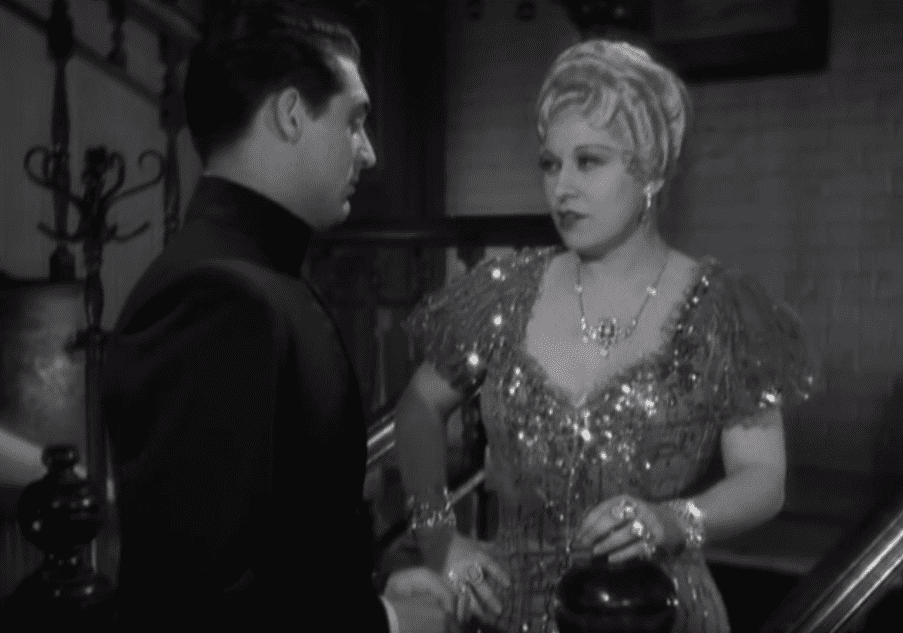 She Done Him Wrong, Paramount Pictures
She Done Him Wrong, Paramount Pictures
2. She Was Much Older Than Most Actresses
Surprisingly, West didn’t get into the movies until she was nearly 40 years old. Hollywood only knocked on her door after she’d conquered the world of theater with her highly successful—and highly controversial—plays.
3. She Owned Exotic Pets
True to her Hollywood diva roots, West owned an exotic pet: a chimpanzee named Coffee.
4. She Loved Enemas
Hollywood stars have some strange habits, but West's regime was likely the most bizarre. To prepare for film roles, she often used enemas. She would reportedly take them in the morning, and she claimed that they improved her physical health. In true West fashion, she also commented that enemas resulted in her “smelling sweet at both ends.”
5. The Beatles Loved Her
West's iconic mug appears on the cover of The Beatles' Sgt. Pepper’s Lonely Hearts Club Band. Hilariously, she was initially uninterested in the gig, and the iconic band had to beg her for the cameo. In fact, when they first asked, she had a legendary response. "What would I be doing in a lonely hearts club?” Excuse us while we find a mic to drop!
6. She's the Inspiration Behind the Classic Coke Bottle
Allegedly, West’s figure inspired the Coca-Cola bottle. Whether that’s true or not, the public certainly saw a connection. Because of the actress and bottle’s similar curves, they nicknamed Coke bottles “Mae West” bottles.
7. She Infuriated the Studios in the Best Way
The 1930s' Production Code had huge restrictions and censorships, and they challenged West’s writing at nearly every turn. So West came up with brilliant plan. Unleashing her inner rebel, West would purposefully write in lines that she knew would provoke the censors. It didn’t matter if these lines didn't make it—sticking it to the man was thanks enough for her!
8. She Starred in an Infamous Production
One of the most shocking acts in West’s career was also her first starring role on Broadway. In 1926, West wrote, directed, produced, and starred in a play titled Sex. As if the title wasn’t shocking enough for the 1920s, the content also led to conservative critics denouncing the piece and religious groups voicing complaints. But the best was yet to come...
9. She Got Herself Detained
West's controversial play came to an abrupt halt when authorities launched a raid in the winter of 1927. Stunningly, they even detained West, charging her with obscenity and “corrupting the morals of youth.” She was sentenced to either pay a fine or serve ten days in the clinker. Ever the one to buck the trend, West proudly declared that she would go to prison for her art. But her reason for this was ingenious.
10. She Made Prison Work for Her
West’s decision to go to prison wasn’t just about standing for her art. She was also fully aware of the publicity that would come with this decision. Her efforts were duly rewarded, and she had a ball playing it up. During her time behind bars, West claimed she wore her silk panties every day rather than the standard jumpsuit.

